Coyote magazine - Authors
Advisory Council on Youth (CCJ)
The Advisory Council on Youth (CCJ) is the non-governmental partner in the co-management structure which establishes the standards and work priorities of the Council of Europe’s youth sector and makes recommendations for future priorities, programmes and budgets. It is made up of 30 representatives from youth NGOs and networks in Europe and its main task is to advise the Committee of Ministers on all questions relating to youth.
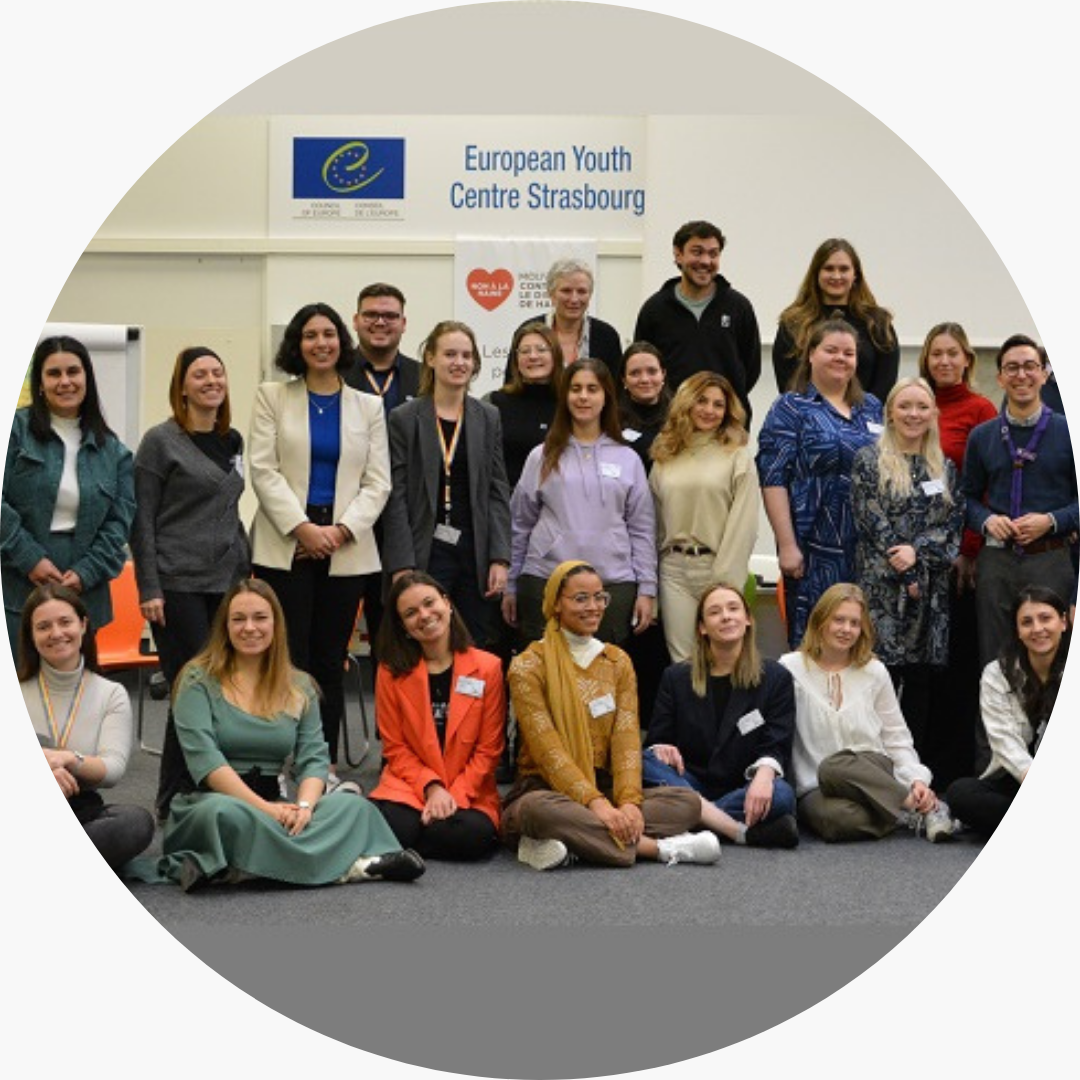
Article:
Youth participation at the Council of Europe: current challenges, key activities, and future strategies, Issue 37
Bas Auer
Bas Auer was part of the leadership team of the training course on Euro-Mediterranean Cooperation for youth organisations, which was run at the European Youth Centre in Strasbourg at the beginning of 2000. He currently lives and works in Egypt, where he is engaged in activities to develop and strengthen community youth development work. Next to his work as co-ordinator of programs supporting small & informal businesses in Egypt, Bas is a freelance writer and trainer on issues of youth development. Before working in Egypt, he worked as Secretary General of YDC (Youth for Development and Cooperation), a network of youth organisations that aims to strengthen the role of young people in North-South cooperation.
Articles:
Bruno Antonio
Bruno António holds degrees in Marine Biology and Social Education from the University of the Algarve, Portugal. With 19 years of experience in international youth work, he has served as an expert and consultant for institutions like the European Commission and the North-South Centre of the Council of Europe. He was previously Secretary General of Youth for Exchange and Understanding and is currently the coordinator of DYPALL Network, a European platform supporting youth policy and participation across 30 countries.
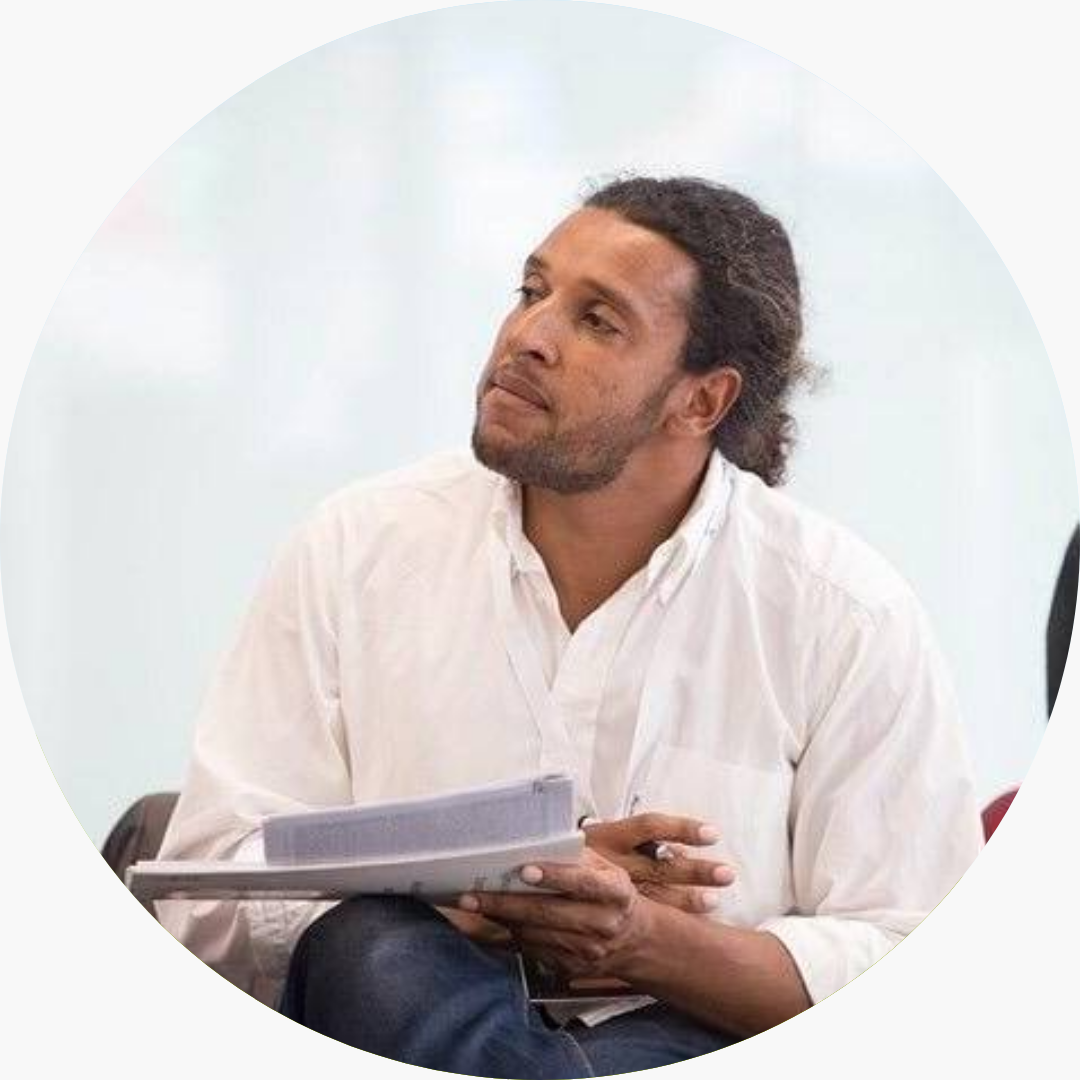
Article:
A call for systemic change: increasing the quality of democracies through youth participation. Issue 37
David Aynsley
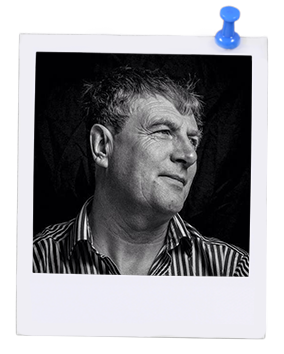 David is a retired police officer who specialised in community policing and was the police Youth Issues Manager for Cornwall which is a European region in the UK.
David is a retired police officer who specialised in community policing and was the police Youth Issues Manager for Cornwall which is a European region in the UK.
Whilst in the police he founded the TR14ers Community Dance Charity Limited and continues to give young people access to their social rights as a director of the TR14ers and in his work at the Eden Project in Cornwall, supporting young people to find their way into education, training and work.
In his spare time David cycles, keeps a shoal of tropical fish and enjoys gardening.
Articles:
Taking chances – dancing dances. Issue 29
Luís Amorim
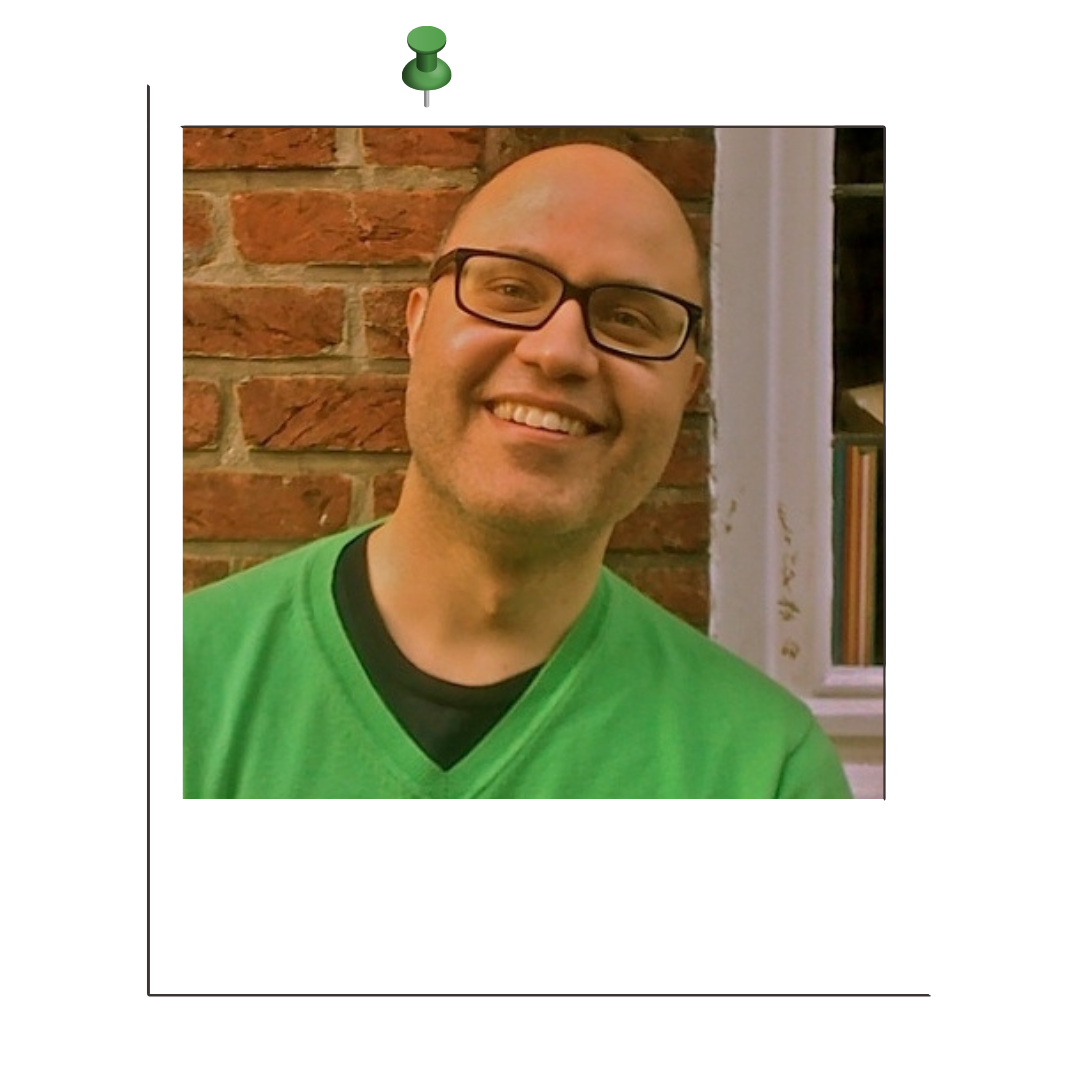 Luís is the father of a 16 year-old daughter, through adoption. Together with his husband, Luís has been discovering the joys and the challenges of parenting since their daughter was 2 months old. He is Portuguese, of mixed Angolan origin. He currently works for the Council of the EU in Brussels, where he heads the Spanish-language Translation Unit. In the past, he worked for AFS/Intercultura Portugal and for the European Youth Forum.
Luís is the father of a 16 year-old daughter, through adoption. Together with his husband, Luís has been discovering the joys and the challenges of parenting since their daughter was 2 months old. He is Portuguese, of mixed Angolan origin. He currently works for the Council of the EU in Brussels, where he heads the Spanish-language Translation Unit. In the past, he worked for AFS/Intercultura Portugal and for the European Youth Forum.
Articles:
Alice Bergholtz
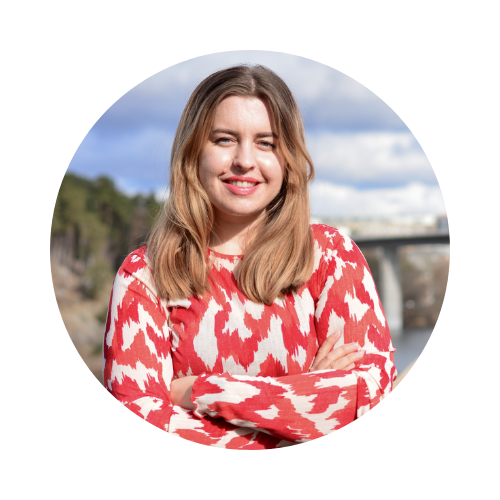
Alice is a researcher in media- and communications studies studying political participation and advocacy of young people in institutional politics. She specialises in inclusive conditions for participation of underrepresented groups, having worked on rights of persons with disabilities, young refugees, and the LGBTQ+ community. Alice has previously been the vice-chairperson of the Advisory Council on Youth of the Council of Europe and currently works at the Youth Policy Division of the Council of Europe.
Articles:
Democracy Here | Democracy Now – Youth taking action to revitalise democracy Issue 34
What is the youth perspective? Issue 37
Cristina Bacalso
Cristina is an independent research consultant who specialises in public policies for adolescent and youth development, youth participation, and the human rights of young people. With more than 15 years of experience in research, policy, and advocacy, she has worked with organisations such as UNICEF, UNICEF Innocenti, UNDP, the Council of Europe, the European Commission and Youth Policy Labs, where she was the research co-ordinator. She was the project lead for Youth Policy Fact Sheets, profiling 193 countries and the current state of youth policies, and the project and research lead for "Age Matters!", a multi-year, multi-country study on minimum age legislation. "Age Matters!" was selected as one of the top 10 projects for the Best of UNICEF Research Award 2019. She is also a member of the Pool of European Youth Researchers Advisory Group.
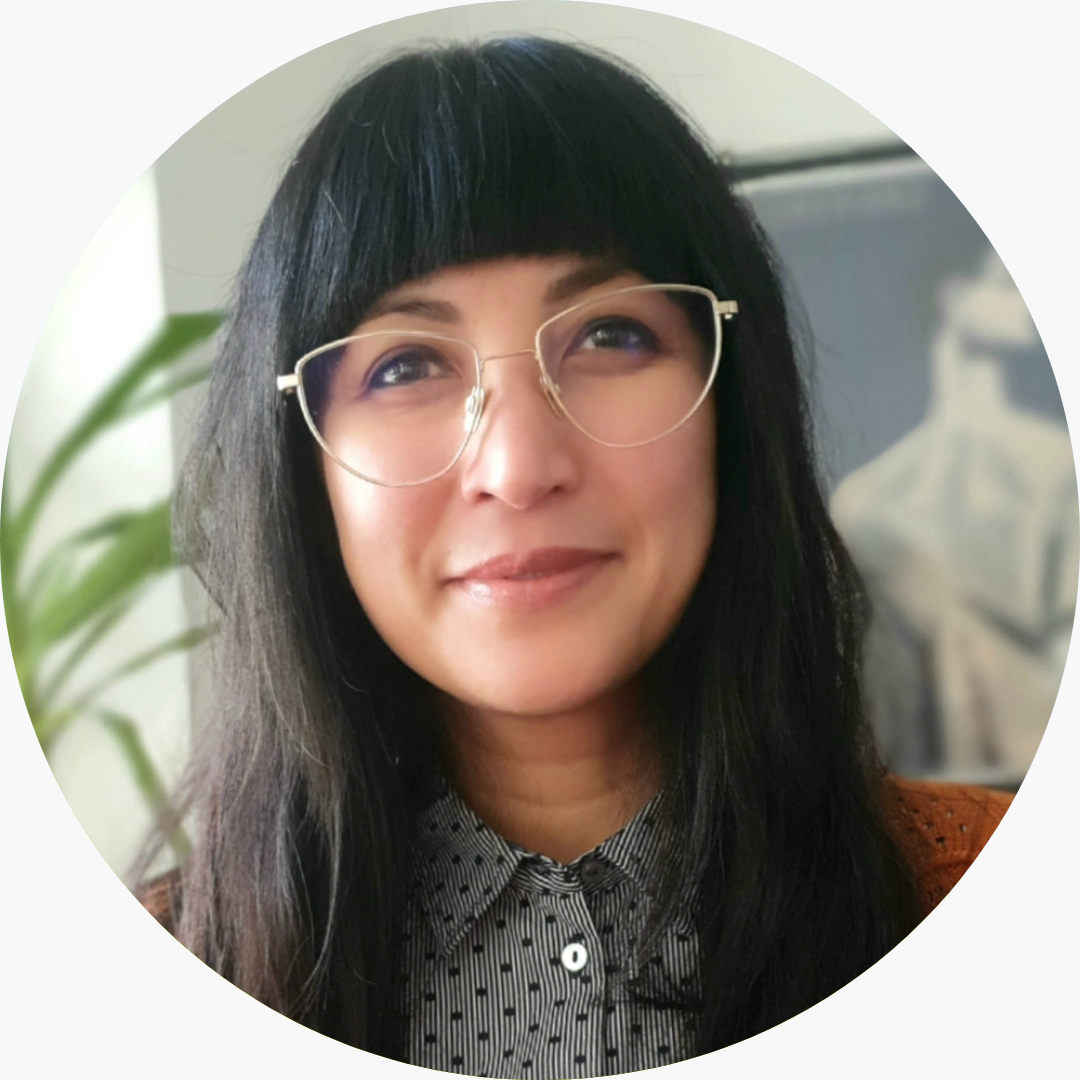
Article:
No youth participation on a dead planet: an interview with youth climate activist Anuna De Wever. Issue 37
Daniel Briggs
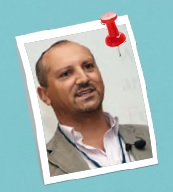 Daniel Briggs is Professor of Criminology at the Universidad Europea in Madrid, Spain and a poet.
Daniel Briggs is Professor of Criminology at the Universidad Europea in Madrid, Spain and a poet.
Articles:
Conveyor belt poem. Issue 24
Elif Bayat
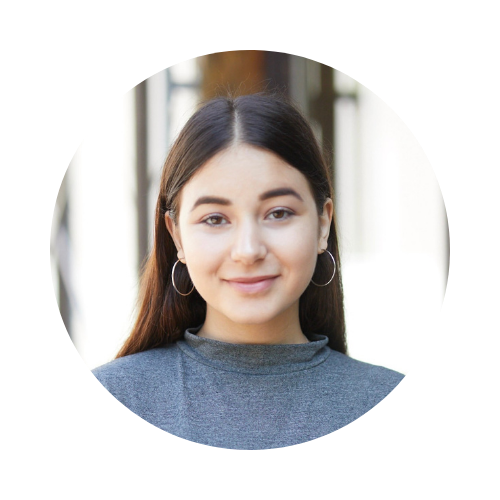 Elif Bayat is 24 years old, studied Sociology and Political Science in Frankfurt, Paris and Istanbul and will start her master's degree soon. She has been a volunteer in various youth organizations for over eight years, focusing on intersectionality, interfaith exchange, educational and climate justice. Elif has taken on representative roles in local, national, and international organizations, including WWF and Green Youth. As the German Youth Delegate to the G20 Summit in India, Elif is leading the negotiations on climate and disaster risk reduction.
Elif Bayat is 24 years old, studied Sociology and Political Science in Frankfurt, Paris and Istanbul and will start her master's degree soon. She has been a volunteer in various youth organizations for over eight years, focusing on intersectionality, interfaith exchange, educational and climate justice. Elif has taken on representative roles in local, national, and international organizations, including WWF and Green Youth. As the German Youth Delegate to the G20 Summit in India, Elif is leading the negotiations on climate and disaster risk reduction.
Articles:
Goran Buldioski
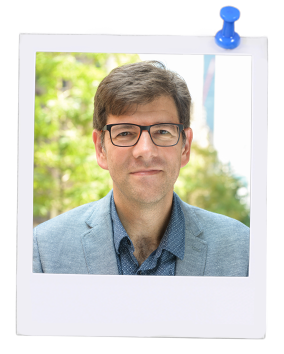 Goran Buldioski is co-director of the Open Society Initiative for Europe and director of OSF's hub-office in Berlin. He oversees grant making portfolios of over $35M and manages over 40 staff members based in Berlin, Barcelona and London. Throughout most of his career, he focused on the democratic transition in Eastern Europe, the development of policy research on social and political affairs, and the role of civil society in Europe. He has also extensive experience in grant making, not-for-profit management, youth mobilizing, intercultural learning and human rights education. His articles are published in Foreign Policy, Politico, EurAktiv, EU Observer and E!Sharp Magazine among others. He is a member of the European Council of Foreign Relations (ECFR).
Goran Buldioski is co-director of the Open Society Initiative for Europe and director of OSF's hub-office in Berlin. He oversees grant making portfolios of over $35M and manages over 40 staff members based in Berlin, Barcelona and London. Throughout most of his career, he focused on the democratic transition in Eastern Europe, the development of policy research on social and political affairs, and the role of civil society in Europe. He has also extensive experience in grant making, not-for-profit management, youth mobilizing, intercultural learning and human rights education. His articles are published in Foreign Policy, Politico, EurAktiv, EU Observer and E!Sharp Magazine among others. He is a member of the European Council of Foreign Relations (ECFR).
Articles:
Lorena Barić
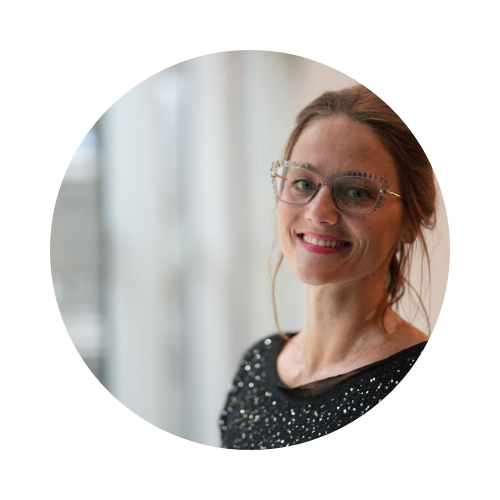
Lorena is a dedicated youth information worker and project manager with a decade of experience, she has actively contributed to the youth sector. In her diverse roles, including her recent position as President of Eurodesk, a European network of youth information centres, she is committed and focused on fostering empowerment, promoting inclusivity, and advancing meaningful youth participation. Previously, she coordinated and managed European youth programmes in the Croatian national agency.
Articles:
Edito Issue 33
Young people taking action in times of conflict Issue 33
The European Year of Youth 2022 Issue 34
Young people's voice Issue 34
European Youth Events on a local level Issue 34
A closer look at the European Youth Capital initiative Issue 34
Marta Brzezińska-Hubert
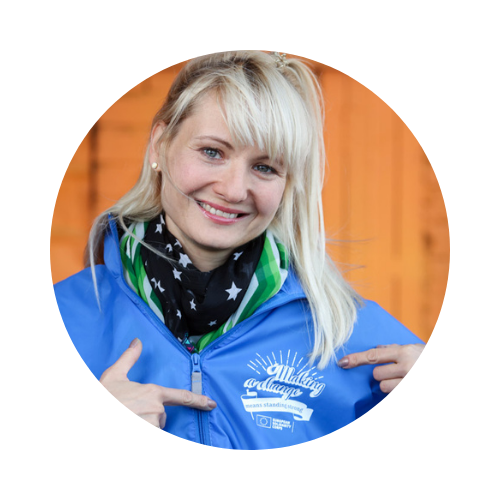 Marta Brzezińska-Hubert is a trainer and facilitator based in Warsaw. Since 2005 she has been a member of Polish and European trainers pools in the field of intercultural and non-formal education, learning mobility, volunteering, entrepreneurship of young people. Passionate for her work and #exploration #diversity #sustainability #innovation #selfdirected #competence #development #wellbeing #nvc #batucada #poetry.
Marta Brzezińska-Hubert is a trainer and facilitator based in Warsaw. Since 2005 she has been a member of Polish and European trainers pools in the field of intercultural and non-formal education, learning mobility, volunteering, entrepreneurship of young people. Passionate for her work and #exploration #diversity #sustainability #innovation #selfdirected #competence #development #wellbeing #nvc #batucada #poetry.
Articles:
Quality in practice: paths enhancing youth learning mobility Issue 36
Mette Bram
Mette Bram teaches group dynamics at the Common Communications Courses at Copenhagen University and communication and psychology at the Youth Pedagogue College/Denmark. She has been working as a freelance trainer and self- employed consultant since 1993, and is mainly occupied with training courses, lecturing and design of organisational development projects, locally as well as internationally. She is the director of Training Consult, a network of trainers in Europe. Fields of expertise include training of trainers in participant-centred training approaches and experiential learning, counselling, difficult interviews, mediation and conflict management, leadership, and personal and organisational management including Total Quality Management, intercultural earning, supervision and reflective processes, team-building and group dynamics plus evaluation and gender related issues like assertiveness.
Articles:
Resistance in Non-formal Education (Issue 3)
Véronique Bertolle
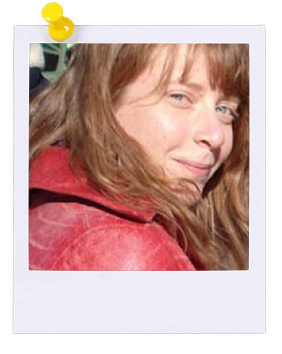 Véronique is currently working in the co-ordination office of Youth Express Network (Y-E-N) in Strasbourg, France as Secretary General.
Véronique is currently working in the co-ordination office of Youth Express Network (Y-E-N) in Strasbourg, France as Secretary General.
As a pure product of the youth centres where she spent most of her free time during childhood and adolescence, she moved to the other side of the glass and became a youth worker while pursuing studies in political sciences.
Her fields of expertise are: inclusion and participation of young people, non-formal and experiential learning.
Articles:
- Entering the Enter! Youth Week, Issue 29
- 12 Action Days of ENTER! Issue 29
Bojana Ćulum Ilić
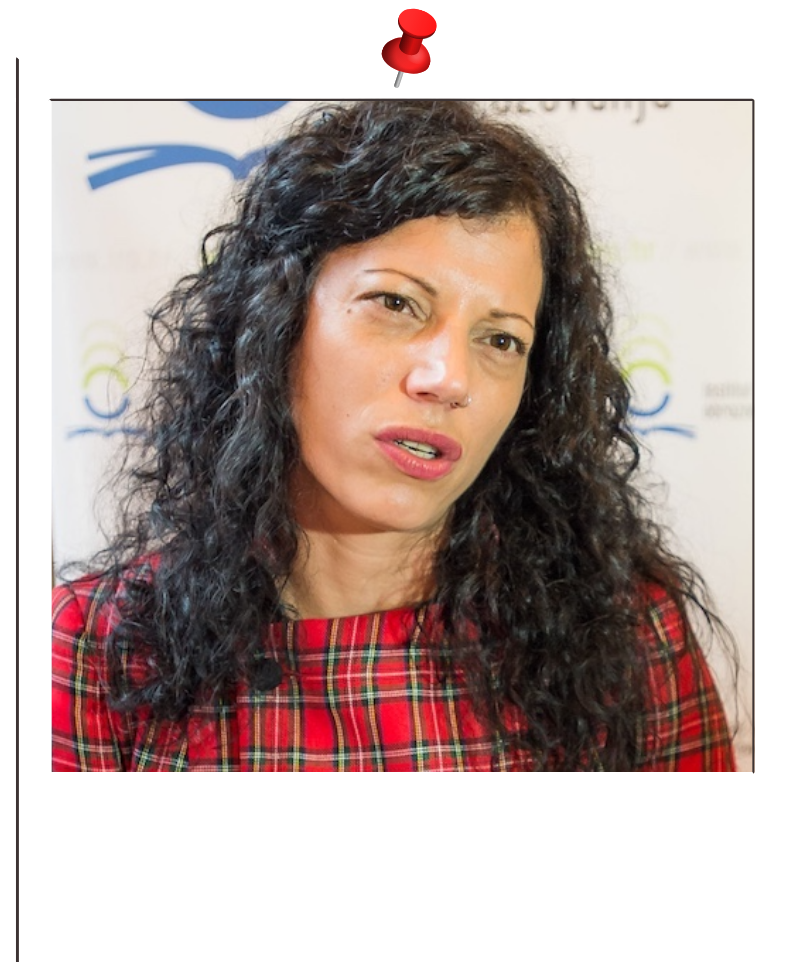 Bojana is associate professor of pedagogy at the University of Rijeka in Croatia. She has worked on youth issues in research, practice and policy throughout the past decade. She has served at the National Committee for Volunteering Development, and the National Council for Youth. She leads a lifelong learning programme, “Youth in Contemporary Society”, tailored for the European community of youth workers, at the University of Rijeka, first of its kind in the region.
Bojana is associate professor of pedagogy at the University of Rijeka in Croatia. She has worked on youth issues in research, practice and policy throughout the past decade. She has served at the National Committee for Volunteering Development, and the National Council for Youth. She leads a lifelong learning programme, “Youth in Contemporary Society”, tailored for the European community of youth workers, at the University of Rijeka, first of its kind in the region.
Article:
Synergising theory with research (Issue 31)
Natalia Chardymova
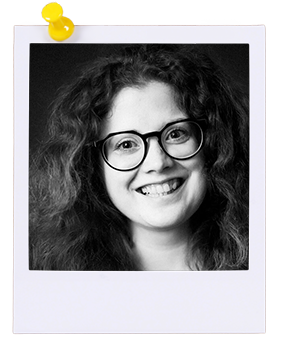 Natalia works as an educational advisor for the Youth Department of the Council of Europe. She has been involved in youth work and training for the last 10 years, and at the moment in her role supports the implementation of the Youth for Democracy programme of the Council of Europe’s Youth sector.
Natalia works as an educational advisor for the Youth Department of the Council of Europe. She has been involved in youth work and training for the last 10 years, and at the moment in her role supports the implementation of the Youth for Democracy programme of the Council of Europe’s Youth sector.
Articles:
- Training and education at the Youth Department of the Council of Europe, Issue 28 (with László Milutinovits)
- Do we leave enough space for experiential learning? Issue 28
Pascal Chaumette
Pascal Chaumette is a project advisor at the "Mission Locale-Espace Ressources Jeunes" in Roubaix, in northern France, which serves as a branch office for the Youth for Europe programmes. He is also the coordinator of a European network. This work gives him the possibility to put his convictions into practice on a daily basis. His considers this a chance that he attributes to his perserverance, but mainly it means that he puts his skills and competencies at the service of the local organisations.
Articles:
European training courses : A springboard for locally-based European projects (Issue 0)
Sulkhan Chargeishvili
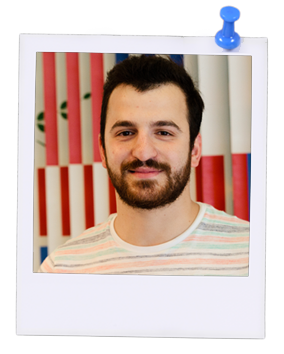 Sulkhan is a freelance trainer and youth worker, human rights believer, foodie and traveller, based in Tbilisi, Georgia.
Sulkhan is a freelance trainer and youth worker, human rights believer, foodie and traveller, based in Tbilisi, Georgia.
He became involved in youth work and human rights education in 2010 and believes that joy of empowering young people makes his job a piece of cake.
Articles:
EDC/HRE in Wonderland?! Issue 25
Power of empowerment: how ALL young people are revitalising democracies Issue 34
Yiannos Christoforou
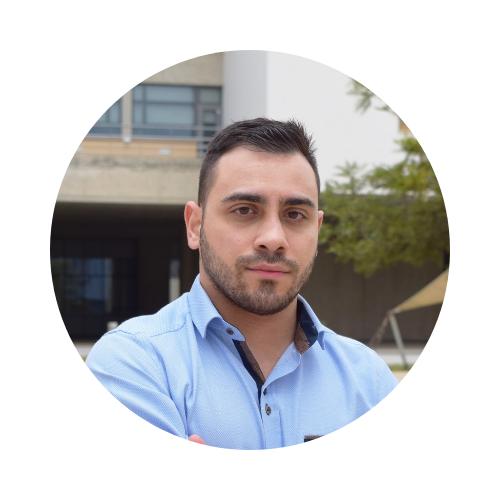 Yiannos Christoforou is a member of the pool of European Young Journalists 2023. He is from Cyprus and he is passionate about traveling and embracing diverse cultures. He believes that the European Union stands as humanity's finest achievement, uniting us in a shared home. He have a deep appreciation for anything related to non-formal education, as he believes it's a means of fostering interactive and enjoyable experiences that bring people closer together and facilitates complicated issues such as the problem of conflicts.
Yiannos Christoforou is a member of the pool of European Young Journalists 2023. He is from Cyprus and he is passionate about traveling and embracing diverse cultures. He believes that the European Union stands as humanity's finest achievement, uniting us in a shared home. He have a deep appreciation for anything related to non-formal education, as he believes it's a means of fostering interactive and enjoyable experiences that bring people closer together and facilitates complicated issues such as the problem of conflicts.
Article:
The EU, young people and conflict
Dirk De Vilder
Dirk De Vilder works part-time as a project manager in a residential youth care centre in Leuven, Belgium. He is also a free-lance trainer, working a.o. for the European Youth Centres, Youth for Europe Agencies and Outward Bound School. Special interest in experiential learning in outdoor activities, social exclusion, teamwork, communication and leadership training and intercultural learning.
Articles:
Ewa Dziemidowicz
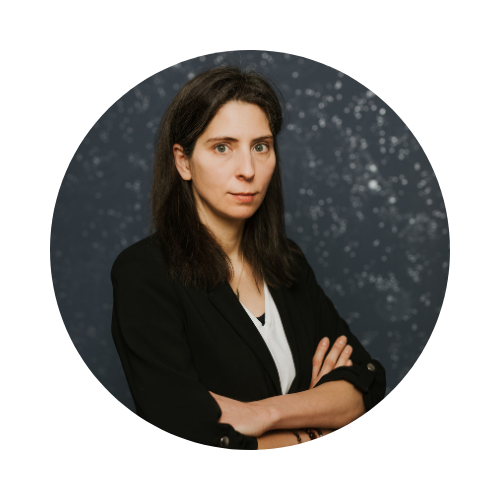 Ewa Dziemidowicz is a psychotherapist, coach and expert on children and youth online safety. She works at the Empowering Children Foundation in Poland. She conducts trainings and workshops in the scope of online safety, concerning, among others, cybersecurity, sexting, grooming and addiction to new technologies. She works with children, youth and parents in the Empowering Children Foundation councelling centre “Child online”.
Ewa Dziemidowicz is a psychotherapist, coach and expert on children and youth online safety. She works at the Empowering Children Foundation in Poland. She conducts trainings and workshops in the scope of online safety, concerning, among others, cybersecurity, sexting, grooming and addiction to new technologies. She works with children, youth and parents in the Empowering Children Foundation councelling centre “Child online”.
Artilce:
Talking about war with young people Issue 33
Lamin Darboe
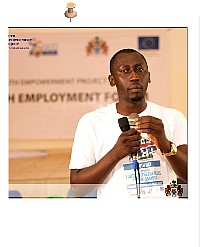 Lamin was the Executive Director of the Gambia National Youth Council, where he provided youth related policy advice to Government, and technical support to development projects. His external engagements were through UN, AU Youth Platforms, and Youth Networks. He is experienced in youth policy and community youth work. A member of the International Adenauer Network. Lamin is a Chevening Scholar and currently pursuing a master's degree in Migration and Global Development at University of Sussex, United Kingdom.
Lamin was the Executive Director of the Gambia National Youth Council, where he provided youth related policy advice to Government, and technical support to development projects. His external engagements were through UN, AU Youth Platforms, and Youth Networks. He is experienced in youth policy and community youth work. A member of the International Adenauer Network. Lamin is a Chevening Scholar and currently pursuing a master's degree in Migration and Global Development at University of Sussex, United Kingdom.
Articles:
Mary Drosopulos
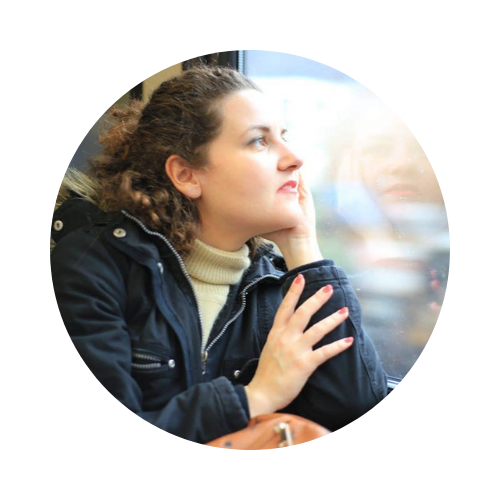 Dr Mary Drosopulos is an intercultural trainer and researcher, working especially with young people from conflict-affected settings. She has lived and worked in differents parts of Europe and the Middle East. Her grassroots experience, combined with ethnographic field research, has led to the publication of books and articles, focusing on youth in local communities. Between 2012-2013, she lived as a volunteer in the Euromed youth centre in Adrasan, one of the first organisations to receive the Council of Europe Quality Label. This is how she developed an interest in sustainability, cultural heritage and circular economy. She has been working with the Council of Europe for over a decade as an external consultant; she is now part of the Expert team evaluating centres holding the Quality Label and providing recommendations for further improvement.
Dr Mary Drosopulos is an intercultural trainer and researcher, working especially with young people from conflict-affected settings. She has lived and worked in differents parts of Europe and the Middle East. Her grassroots experience, combined with ethnographic field research, has led to the publication of books and articles, focusing on youth in local communities. Between 2012-2013, she lived as a volunteer in the Euromed youth centre in Adrasan, one of the first organisations to receive the Council of Europe Quality Label. This is how she developed an interest in sustainability, cultural heritage and circular economy. She has been working with the Council of Europe for over a decade as an external consultant; she is now part of the Expert team evaluating centres holding the Quality Label and providing recommendations for further improvement.
Articles:
The quest for sustainability in youth activities: The case of the Quality Label Youth Centres Issue 35
Nuno Da Silva
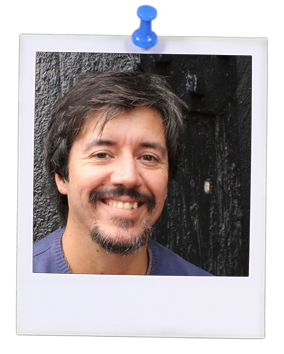 Nuno is an educational activist interested in innovation, systems change, paradigm shift and the magic of life. He was one of the trainers who delivered the European Citizenship In Youth Work Training Courses, a part of the National Agencies Network Trainings between 2007 and 2016. He is based in Faro, Portugal, from where he reaches out to the world working as a freelancer, involved in the emergence network and coordinating RECIFE – Network of Collaborative Initiatives for an Ecosystemic Future.
Nuno is an educational activist interested in innovation, systems change, paradigm shift and the magic of life. He was one of the trainers who delivered the European Citizenship In Youth Work Training Courses, a part of the National Agencies Network Trainings between 2007 and 2016. He is based in Faro, Portugal, from where he reaches out to the world working as a freelancer, involved in the emergence network and coordinating RECIFE – Network of Collaborative Initiatives for an Ecosystemic Future.
Valentin Dupouey
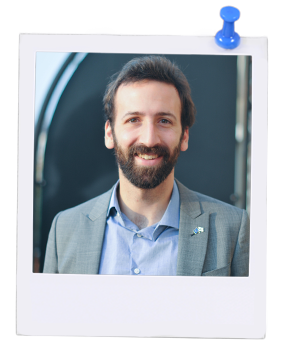 Valentin has worked in the youth, education and sport NGO sector for the last 10 years. Actively engaged in the European youth field as a member of the Erasmus Student Network, as Secretary General of JEF Europe he is also a member of the Advisory Council on Youth of the Council of Europe. Valentin is currently travelling the world for a year.
Valentin has worked in the youth, education and sport NGO sector for the last 10 years. Actively engaged in the European youth field as a member of the Erasmus Student Network, as Secretary General of JEF Europe he is also a member of the Advisory Council on Youth of the Council of Europe. Valentin is currently travelling the world for a year.
Articles:
What will be the next ladder of youth participation? Issue 27
Kurt Edler
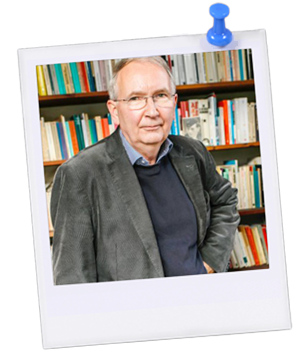 Kurt has been German EDC/HRE Co-ordinator since 2009, appointed by the Standing Committee of Ministers of Education (Berlin). He was a teacher in Hamburg from 1977 to 2004, then Head of the “Society” Department in the Hamburg Institute for Teacher Training (LI) until retirement in 2015. He has been a Green activist since 1981 and member of parliament in Hamburg. His special interests are: raising awareness of anti-democratic ideologies and tendencies, contribution of political background information and analysis to social networks, support of democratic development in schools and youth centres, counselling students’ representatives, school staff and political decision makers.
Kurt has been German EDC/HRE Co-ordinator since 2009, appointed by the Standing Committee of Ministers of Education (Berlin). He was a teacher in Hamburg from 1977 to 2004, then Head of the “Society” Department in the Hamburg Institute for Teacher Training (LI) until retirement in 2015. He has been a Green activist since 1981 and member of parliament in Hamburg. His special interests are: raising awareness of anti-democratic ideologies and tendencies, contribution of political background information and analysis to social networks, support of democratic development in schools and youth centres, counselling students’ representatives, school staff and political decision makers.
Articles:
Ulrika Eklund
Ulrika Eklund works as a free lance trainer and web designer. She has run projects for Youth for Europe in Sweden, in particular as a trainer in the Cocktail projects I and II. She has also been working in the National Council of Swedish Youth Organisations (LSU). Her interests and experiences are especially focused on gender issues, leadership training and organisational development.
Articles:
Gender Equality and Education - Gender Sensitive: Why Important? (Issue 2)
Audrey Frith
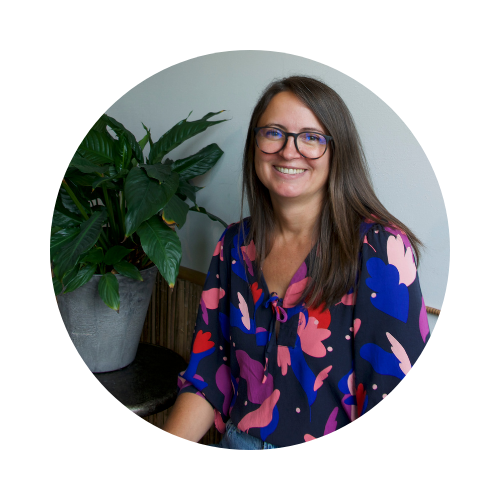 Since 2016, Audrey Frith has been the Director of Eurodesk, a European youth information network. For the last fifteen years, she has coordinated European organisations and acted as an expert in the field of education, training and youth. Audrey has a master’s degree in European project management from Sorbonne University in Paris, and a master’s degree in English language, literature, and civilisation from Paul Valéry University, Montpellier.
Since 2016, Audrey Frith has been the Director of Eurodesk, a European youth information network. For the last fifteen years, she has coordinated European organisations and acted as an expert in the field of education, training and youth. Audrey has a master’s degree in European project management from Sorbonne University in Paris, and a master’s degree in English language, literature, and civilisation from Paul Valéry University, Montpellier.
Article:
Youth participation in Eurodesk youth information services Issue 37
Maria Frerichs
Maria Frerichs is a trainer on intercultural learning for the international centre for youth and adult education in Berlin, Germany, Jagdschloss Glienicke - Internationale Begegnungsstatte fur Jugendliche und Erwachsene. Her major areas of work include intercultural learning, international team work, communication and leadership training and organisational development.
Articles:
Nynoshca Fecunda
Nynoshca Fecunda has been living in Holland for 13 years. She was born and grew up on the sunny Island of Curacao, Dutch Antilles (Caribbean Sea). For the past 11 years she has been activeky involved in intercultural youth work. She has also worked as a freelance trainer for the Council of Europe. She is self-employed and works in the field of consultancy, training and research focusing on the subjects of diversity (intercultural/gender) and skills management. Her workis based on scientific knowledge as well as personal experience in traveling to various European countries (with her daughter), as a black woman and mother, and working with different organisations, with different histories, organisational structures and traditions of dealing with people of different background and/or colour.
Articles:
Let your Heart Beat in their Community (Issue 1)
Asier Carrasco Gonzales
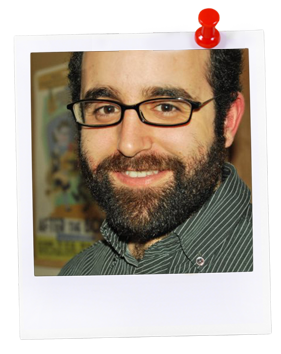 Asier is a youth worker, a freelance international youth work trainer and consultant living between Scotland, Spain and Denmark.
Asier is a youth worker, a freelance international youth work trainer and consultant living between Scotland, Spain and Denmark.
EDC/HRE in Wonderland?! (Issue 25)
Christian Francis James Gebhard
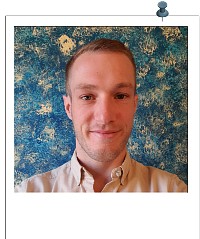 Christian is a passionate youth worker based in Luxembourg who wants to contribute to more equity in society by providing high-quality youth work. You will usually see him working on new ideas and projects with his team or engaged in conversations and activities with the visitors of the youth centre where he works. In his free time Christian loves beachvolleyball and cultural events and he’s a resident DJ in Luxembourg’s nightlife.
Christian is a passionate youth worker based in Luxembourg who wants to contribute to more equity in society by providing high-quality youth work. You will usually see him working on new ideas and projects with his team or engaged in conversations and activities with the visitors of the youth centre where he works. In his free time Christian loves beachvolleyball and cultural events and he’s a resident DJ in Luxembourg’s nightlife.
Articles:
Youth work changes people’s lives?! Issue 31
Dariusz Grzemny
Dariusz is a youth worker and a trainer/consultant in educational projects across Europe addressing violence, discrimination, hate speech, racism, peace and human rights. But most of all, he is a human rights educator.
Rooted in local youth groups, his international work experience includes the Amnesty International Secretariat in London, where he worked as a human rights education advisor. He also worked for in the Council of Europe as an educational advisor at the European Youth Centres in Strasbourg and Budapest. In 2016 and 2017, he was a part of the team responsible for the review of the implementation of the Council of Europe Charter on EDC/HRE and the evaluation of the Human Rights Education Youth Programme of the Youth Directorate of the Council of Europe. He is also the author of several educational materials on human rights education.
Dariusz currently works in Szansa, a local NGO is Glogow (Poland) advising and monitoring the work of the youth workers who work with the issues of violence, including gender-based violence.
Articles:
Just a minute… about EDC/HRE? Issue 25
Demetrio Gomez-Avilo
Demetrio Gomez-Avila works as a youth worker and trainer with young people, Roma and others, in difficult living-situations and neighbourhoods. He has been involved in serveral projects including drug abuse and intercultural work. Born in Mexico, he lives in Valencia, Spain.
Articles:
The patchwork of Roma culture : Exploring a world of diversity (Issue 0)
Iva Glibo
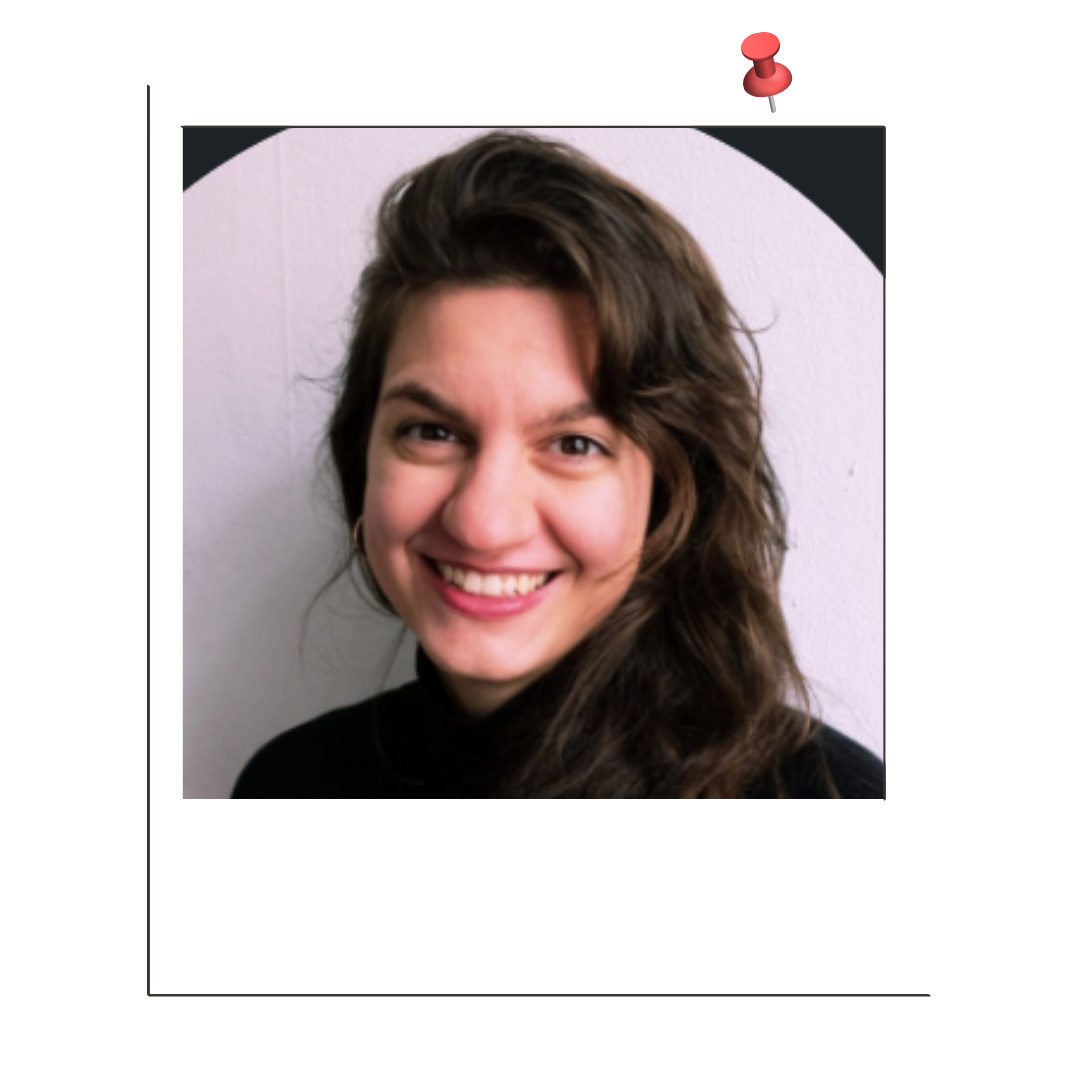 Iva is a former athlete, a former coach and now a sport scientist and a sport volunteer. In her day-to-day job at the Technical University of Munich, she researches the intersection of sustainable development and sport. Iva is a Committee Member at ENGSO Youth, the only youth-led sport organization dealing with grassroots sport in Europe. She lives and works in Munich.
Iva is a former athlete, a former coach and now a sport scientist and a sport volunteer. In her day-to-day job at the Technical University of Munich, she researches the intersection of sustainable development and sport. Iva is a Committee Member at ENGSO Youth, the only youth-led sport organization dealing with grassroots sport in Europe. She lives and works in Munich.
Articles:
How can sport help youth well-being? Issue 32
Jamie Gorman
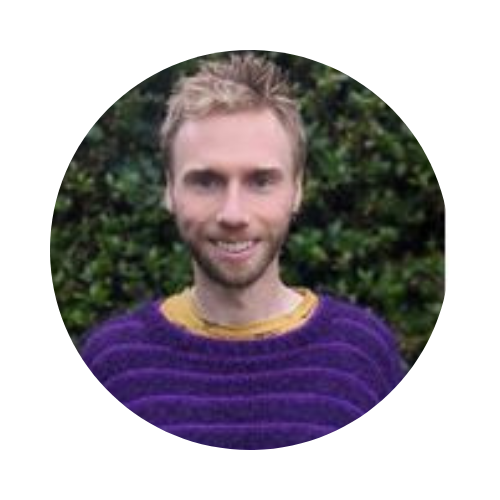 Dr Jamie Gorman is a community and youth worker, researcher and educator who is passionate about social pedagogy, young people's activism and climate justice.
Dr Jamie Gorman is a community and youth worker, researcher and educator who is passionate about social pedagogy, young people's activism and climate justice.
Articles:
Youth eco-activism in Europe: participating in creating another world Issue 36
Mara Georgescu
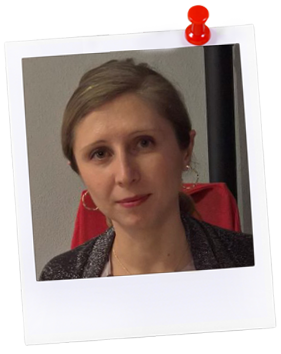 Mara works as youth work and policy officer at the EU – CoE youth partnership. She has worked in the field of youth in different capacities: as a local youth worker and human rights educator, as project officer and trainer in civil society organisations and in the Youth Department of the Council of Europe as educational advisor. Her main areas of interest are youth work, social inclusion, intercultural learning and dialogue, human rights education and participation.
Mara works as youth work and policy officer at the EU – CoE youth partnership. She has worked in the field of youth in different capacities: as a local youth worker and human rights educator, as project officer and trainer in civil society organisations and in the Youth Department of the Council of Europe as educational advisor. Her main areas of interest are youth work, social inclusion, intercultural learning and dialogue, human rights education and participation.
Articles:
- Snapshots at European level (Issue 25)
- Voice of Young People (Issue 25)
Pieter-Jan De Graeve
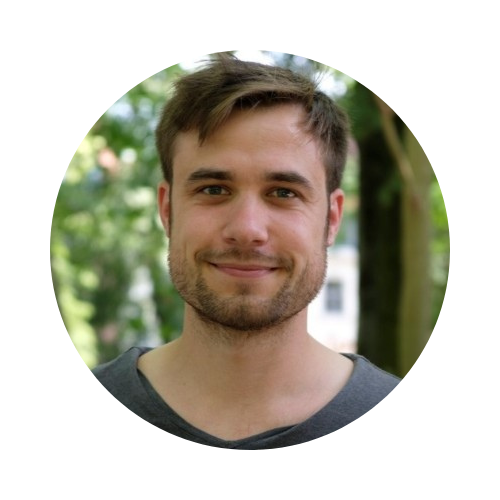 Pieter-Jan lives in Ghent and works in Brussels for SALTO Inclusion & Diversity Resource Centre. When not at work, there's a good chance you'll find him hiking somewhere, or listening to a record while reading a book at home.
Pieter-Jan lives in Ghent and works in Brussels for SALTO Inclusion & Diversity Resource Centre. When not at work, there's a good chance you'll find him hiking somewhere, or listening to a record while reading a book at home.
Articles:
Youth work for climate justice Issue 35
Rui Gomes
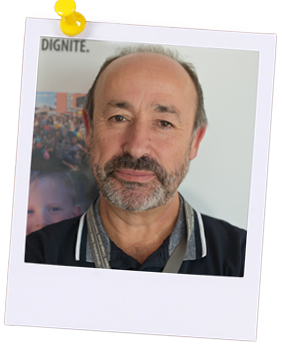 Rui coordinates the programme of education and training activities of the Youth Departments of the Council of Europe, including those held at the European Youth Centres of Budapest and Strasbourg. He has been active in human rights education since the launching of the Human Rights Education Youth Programme in 2000 with the specific purpose of including human rights education in the mainstream of youth policy and youth work. He has authored and co-authored various publications such as Compass – the manual for human rights education with young people.
Rui coordinates the programme of education and training activities of the Youth Departments of the Council of Europe, including those held at the European Youth Centres of Budapest and Strasbourg. He has been active in human rights education since the launching of the Human Rights Education Youth Programme in 2000 with the specific purpose of including human rights education in the mainstream of youth policy and youth work. He has authored and co-authored various publications such as Compass – the manual for human rights education with young people.
Why do we need EDC/HRE? (Issue 25)
Salvi Greco
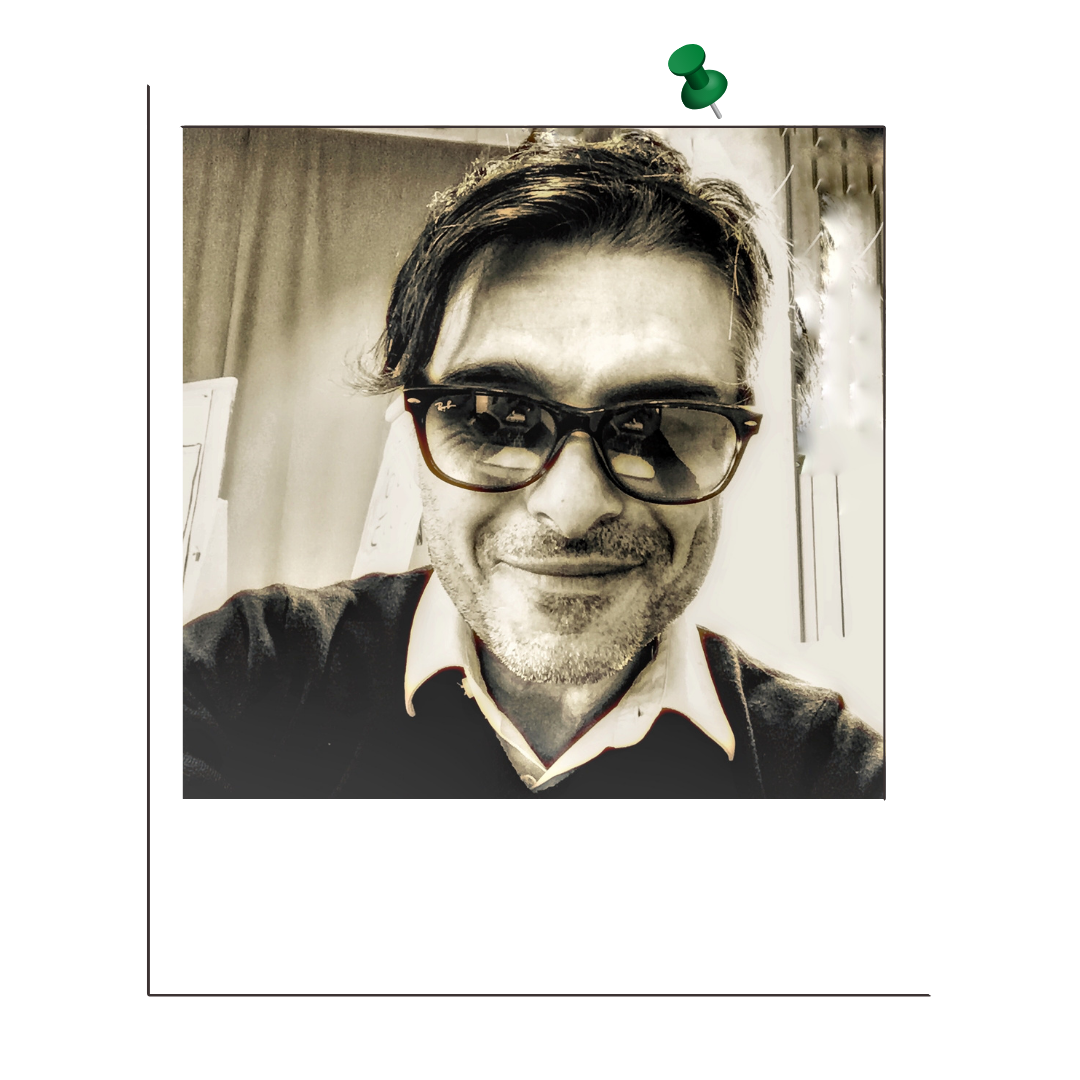 Salvi is a trainer and facilitator of learning processes who started doing stuff many years ago: in a kitchen, in a radio station, in a cultural youth organisation, networking with people and NGOs and institutions. Years of local and international projects, trainings, seminars, events, but all of this doesn’t count much. What counts and really matters is…what he will do in the here-and-now.
Salvi is a trainer and facilitator of learning processes who started doing stuff many years ago: in a kitchen, in a radio station, in a cultural youth organisation, networking with people and NGOs and institutions. Years of local and international projects, trainings, seminars, events, but all of this doesn’t count much. What counts and really matters is…what he will do in the here-and-now.
Articles:
Ajša Hadžibegović
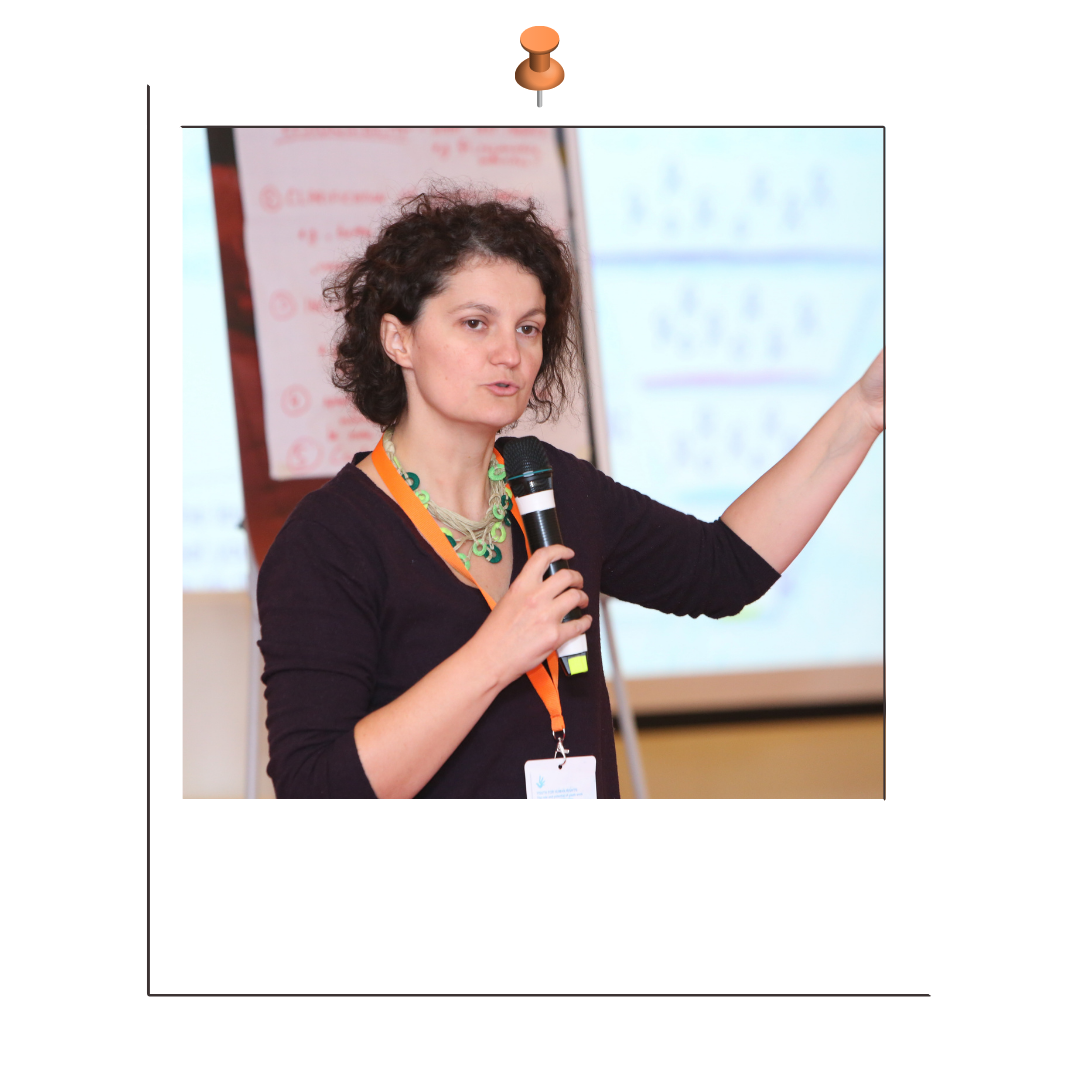 Youth work specialist at the intersection of policy, education and research distilling learning from educational practice, grassroots youth work and activism as a basis for making policies and programmes work better for the young people at which they are aimed. Designs youth work programmes, shapes youth policies, designs participatory processes and implements them in critical contexts to empower young people to be agents of change.
Youth work specialist at the intersection of policy, education and research distilling learning from educational practice, grassroots youth work and activism as a basis for making policies and programmes work better for the young people at which they are aimed. Designs youth work programmes, shapes youth policies, designs participatory processes and implements them in critical contexts to empower young people to be agents of change.
Article:
One contribution to courageous dreaming of youth work (Issue 31)
Bryony Hoskins
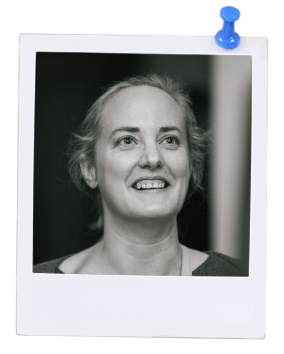 Bryony holds a chair in Comparative Social Science at the University of Roehampton, London. She is an internationally renowned expert on political socialisation (learning politics), specialising in political engagement across European countries. Her current research projects are on inequalities and political engagement, political socialisation, and volunteering.
Bryony holds a chair in Comparative Social Science at the University of Roehampton, London. She is an internationally renowned expert on political socialisation (learning politics), specialising in political engagement across European countries. Her current research projects are on inequalities and political engagement, political socialisation, and volunteering.
Bryony has considerable experience in policy-making as she previously worked at the Council of Europe (CoE) leading on youth research, at the European Commission (EC) in Belgium and then at the EC in Italy leading the development of indicators on Active Citizenship.
She is currently performing a consultancy for UNESCO on developing indicators for Target 4.7 of the Sustainable Development Goals and develops a survey on Citizenship for UNICEF for the MENA region. She has recently completed a consultancy for the CoE analysing questionnaires from the member states as part of 2016 review of the implementation of the CoE Charter.
Articles:
Meelika Hirmo
Meelika Hirmo is based in Estonia. She has about 15 years of experience in public relations, having coordinated various local, European and global civic society projects in the field of youth and democracy, environment, culture and active citizenship in general. She has previously worked as a co-ordinator at SALTO Participation & Information Resource Centre where she focused on topics such as strategic communication and media and information literacy. She also has background as a youth activist and has campaigned for the lowering of voting age in Estonia, etc. She currently works as communications lead at Citizen OS, a civic tech non-profit organisation aiming to help people engage in more inclusive decision making online and offline. At Citizen OS, they work to offer communities internationally online engagement and democracy training and an open-source free participation platform.
Articles:
Vegard Hølaas
Vegard Hølaas worked as National Expert in the European Commission for the two and a half years, until December 1999. He has now returned to the Ministry of Children and Family affairs in Norway, where he has been working on child and youth policy since 1989.
Articles:
Training of Youth Workers in the new Youth Programme of the European Commission (Issue 2)
Gilda Isernia
Gilda works for the Organising Bureau of European School Student Unions (OBESSU) as Interim Head of Staff and Policy Coordinator. She has a background in African Studies and Sociolinguistics. She is currently part of the Pool of European Youth Researchers (PEYR) of the Youth Partnership between the European Commission and the Council of Europe, where she is leading a research project on democracy and shrinking civic space for young people. Her main research areas and advocacy portfolios include: labour rights and student rights, global inequalities, democracy, participation and civic space.
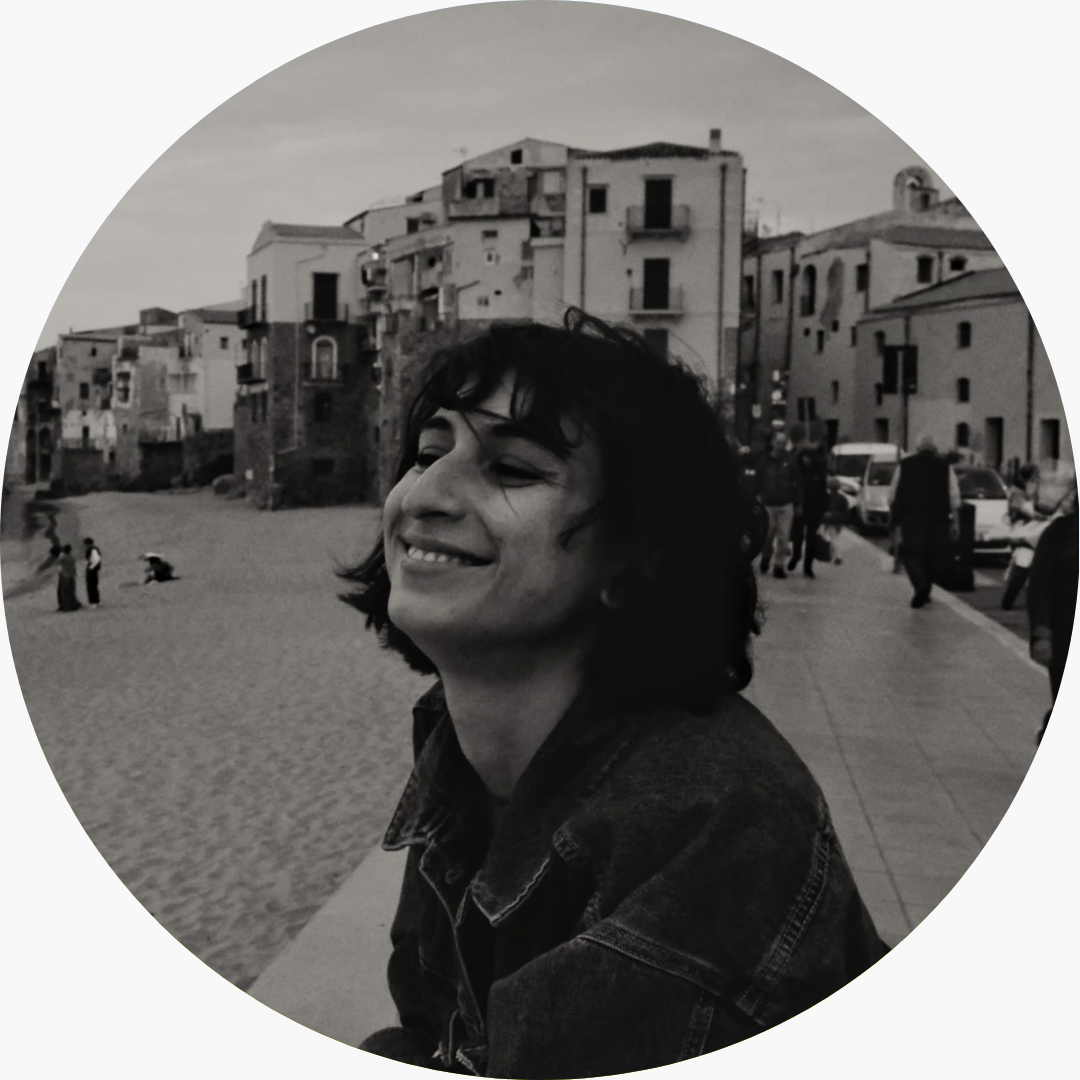
Article:
Citizenship education in the age of shrinking civic space: building a broader range of the possible. Issue 37
Jelena Ilić
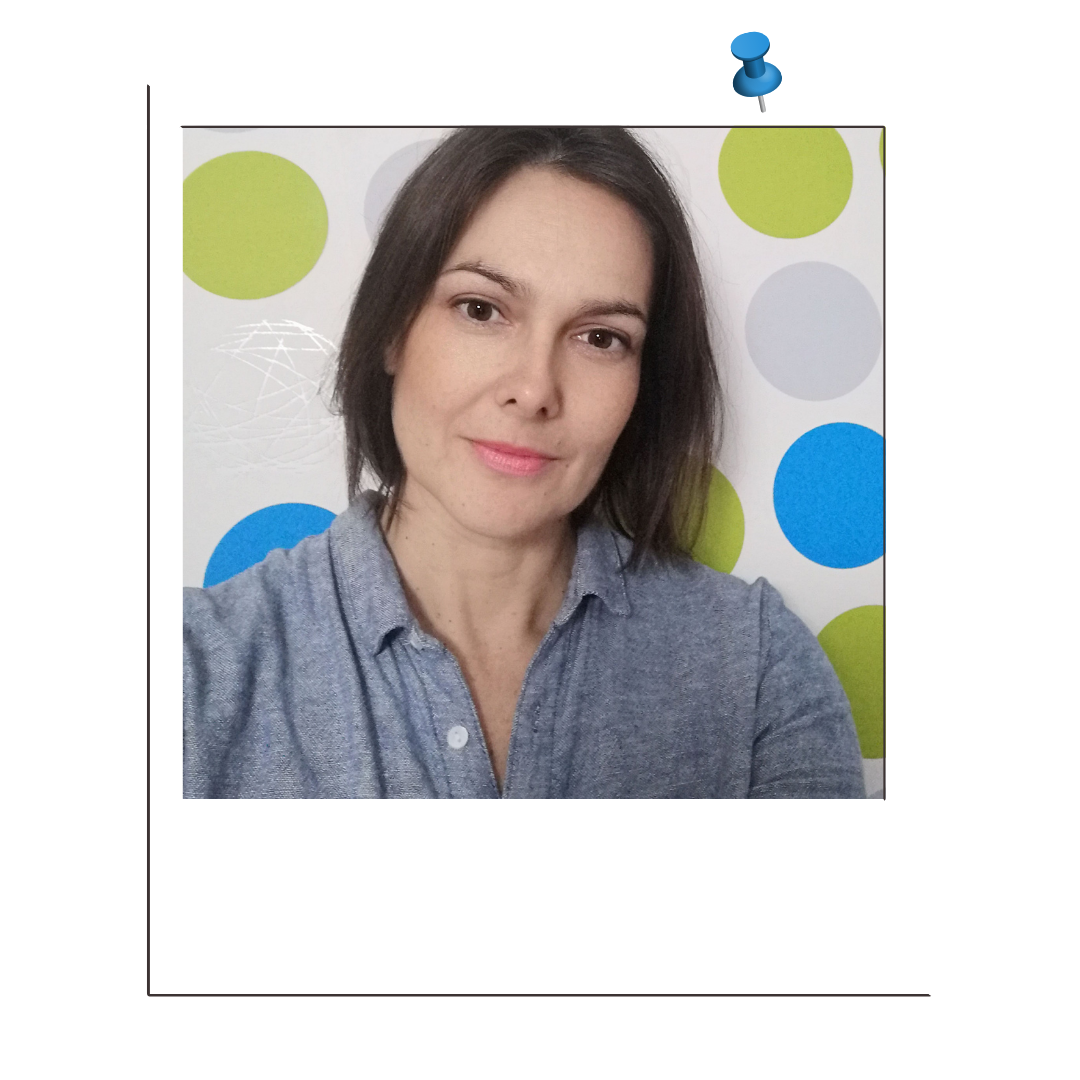 Jelena grown as a trainer in Serbian NGO ”Hajde da...” founded by 10 psychology students. The Group implemented psycho-social educational programs with and for vulnerable groups for years. She is active in SALTO SEE RC pool of trainers supporting volunteers and EVS/ESC organisations from the Balkan region. She also volunteers as trainer and coach to people with MS, actively hug trees, permanently believes in power of human contact and communities.
Jelena grown as a trainer in Serbian NGO ”Hajde da...” founded by 10 psychology students. The Group implemented psycho-social educational programs with and for vulnerable groups for years. She is active in SALTO SEE RC pool of trainers supporting volunteers and EVS/ESC organisations from the Balkan region. She also volunteers as trainer and coach to people with MS, actively hug trees, permanently believes in power of human contact and communities.
Articles:
Triin Ilves
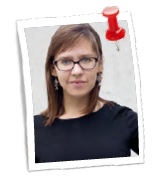 Triin Ilves is a journalist and project co-ordinator in European Youth Press’ Orange magazine. Seeking new opportunities and experiences, she joined the Coyote editorial team to discover the world of youth work.
Triin Ilves is a journalist and project co-ordinator in European Youth Press’ Orange magazine. Seeking new opportunities and experiences, she joined the Coyote editorial team to discover the world of youth work.
Articles:
- Overcoming the fear of the unknown. Issue 24
- Training plan for youth work - Inclu-Fit & Mobi-Dance. (with Marlies Poschl) Issue 24
Yuliya Ielfimova
 Yuliya is a youth worker and trainer working on the topics of human rights education, conflict transformation, peacebuilding, youth participation. She has been involved in peace work with young people since 2011. She was involved as a facilitator and a trainer in Youth Peace Camp project of the Youth Department of the Council of Europe. She is one of the authors of the programme “Trauman informed youth work” which has been implemented in Ukraine since 2022 by the Youth for democracy in Ukraine project.
Yuliya is a youth worker and trainer working on the topics of human rights education, conflict transformation, peacebuilding, youth participation. She has been involved in peace work with young people since 2011. She was involved as a facilitator and a trainer in Youth Peace Camp project of the Youth Department of the Council of Europe. She is one of the authors of the programme “Trauman informed youth work” which has been implemented in Ukraine since 2022 by the Youth for democracy in Ukraine project.
Articles:
Katariina Järve
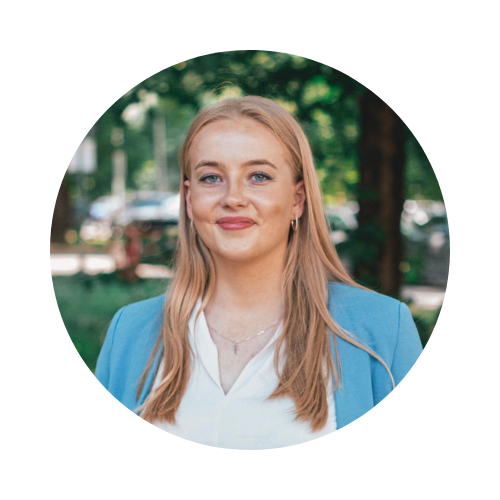 Katariina is a starting journalist from Estonia currently studying at University of Tartu. She was part of the Pool of European Young Journalists which is why she got the chance to participate at the Sustain-Mobility Conference of the European Platform on Learning Mobility in 2023. She is really passionate about equality, education and sustainability which is why she decided to write about youth climate councils. She has been active in youth field for years now, currently leading one of the biggest youth organisations in Estonia.
Katariina is a starting journalist from Estonia currently studying at University of Tartu. She was part of the Pool of European Young Journalists which is why she got the chance to participate at the Sustain-Mobility Conference of the European Platform on Learning Mobility in 2023. She is really passionate about equality, education and sustainability which is why she decided to write about youth climate councils. She has been active in youth field for years now, currently leading one of the biggest youth organisations in Estonia.
Articles:
How to involve young people with environmental issues at the European level Issue 35
Sylviane Jeanty
Sylviane Jeanty is Belgian and has a degree in physical education and physiotherapy. She works for Info-Handicap, a national information and meeting centre dealing with disability in the Grand-Duchy of Luxembourg. She is also a co-ordinator for all-inclusive tourism. In 1999, she ran a training course for the European Youth Forum on the subject of " How to organise a conference in an accessible way ".
Articles:
Anne Kivimae
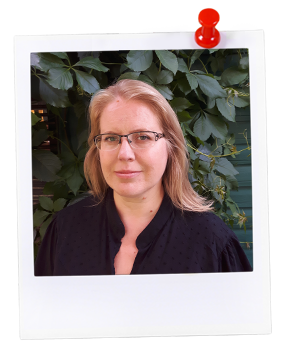 Anne is a manager for data projects in the Estonian Youth Work Centre and teaches youth work at the University of Tartu Narva College. She has worked for more than 14 years at the Ministry of Education and Research, including 11 years as a Director General for Youth Affairs. She has been involved in EU co-operation in the youth field and in co-operation on youth issues with the Council of Europe for many years. Previously, she has worked as a local level youth worker.
Anne is a manager for data projects in the Estonian Youth Work Centre and teaches youth work at the University of Tartu Narva College. She has worked for more than 14 years at the Ministry of Education and Research, including 11 years as a Director General for Youth Affairs. She has been involved in EU co-operation in the youth field and in co-operation on youth issues with the Council of Europe for many years. Previously, she has worked as a local level youth worker.
Articles:
Thinking data (Issue 26)
Erika Kármán
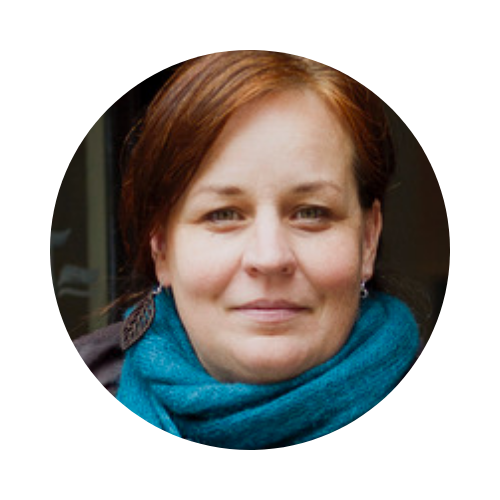 Erika is a youth worker with sustainability focus in her projects. She is passionate about raising awareness on environmental issues such as climate change, energy shortage and extinctions of pieces. She delivers training courses in this field and believes that nonformal education is key in achieving changes. She is based in Hungary and apart from being a freelance trainer, she also runs a community house in Etyek, where she hosts sustainably designed and implemented educational projects, such as training courses and retreats.
Erika is a youth worker with sustainability focus in her projects. She is passionate about raising awareness on environmental issues such as climate change, energy shortage and extinctions of pieces. She delivers training courses in this field and believes that nonformal education is key in achieving changes. She is based in Hungary and apart from being a freelance trainer, she also runs a community house in Etyek, where she hosts sustainably designed and implemented educational projects, such as training courses and retreats.
Articles:
Ecoliteracy: competencies of the present and the future Issue 35
Erzsebet Kovacs
Erzsébet Kovács lives in Budapest and works as a trainer and consultant in the fields of human resource development and the EU-accession process of Hungary. She has a background in adult education. She worked at different levels of Hungarian youth structures for several years, from local youth work up to the governmental youth department. Since 1992 she has been invited to be part of educational teams for long-term training courses and study sessions run by the European Youth Centres and European youth organisations. She has also been involved in in-service teacher training activities and training for trainers courses at European level. Her main interest is quality assurance of non-formal education.
Articles:
Participants said - More Attention Should be Goven to Gender Issues in All Kinds of Training – with Paul Kloosterman (Issue 3)
Ewa Krzaklewska
 Ewa Krzaklewska, PhD, is a sociologist and youth researcher, and associate professor at the Sociology Institute at the Jagiellonian University in Kraków, Poland. She continues to reflect on young people’s lives in Europe and topics such as youth transitions, learning mobility, participation in the Erasmus programme, youth work, migration and gender equality. She is a member of the EU-Council of Europe youth partnership Pool of European Youth Researchers. She was active in scouting and the Erasmus Student Network, both as participant and leader.
Ewa Krzaklewska, PhD, is a sociologist and youth researcher, and associate professor at the Sociology Institute at the Jagiellonian University in Kraków, Poland. She continues to reflect on young people’s lives in Europe and topics such as youth transitions, learning mobility, participation in the Erasmus programme, youth work, migration and gender equality. She is a member of the EU-Council of Europe youth partnership Pool of European Youth Researchers. She was active in scouting and the Erasmus Student Network, both as participant and leader.
Articles:
Throw the smartphones away?! Opinions of youth workers and young people on internet usage in youth work (Issue 26) - with Marzena Ples
Jacob Kornbeck
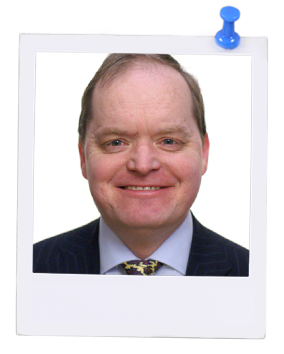 Jacob works at the European Commission, Youth Unit, where he is in charge of the Structured Dialogue with young people, relations with the European Youth Forum, EU presidencies and the Council of Europe, while also providing data protection advice related to the running of the Youth Unit’s databases with online registration tools (EVS, Solidarity Corps, Traineeship Office). Jacob has previously worked in the European Commission, Sport Unit, on data protection aspects of the anti-doping fight, and in the secretariat of the European Data Protection Supervisor (EDPS). In addition to various academic degrees, he holds a Certificate for Data Protection Officers and other Data Protection Professionals from the European Institute of Public Administration (EIPA) in Maastricht.
Jacob works at the European Commission, Youth Unit, where he is in charge of the Structured Dialogue with young people, relations with the European Youth Forum, EU presidencies and the Council of Europe, while also providing data protection advice related to the running of the Youth Unit’s databases with online registration tools (EVS, Solidarity Corps, Traineeship Office). Jacob has previously worked in the European Commission, Sport Unit, on data protection aspects of the anti-doping fight, and in the secretariat of the European Data Protection Supervisor (EDPS). In addition to various academic degrees, he holds a Certificate for Data Protection Officers and other Data Protection Professionals from the European Institute of Public Administration (EIPA) in Maastricht.
Articles:
Young Europeans and Digital Activism (issue 26)
Leo Kaserer
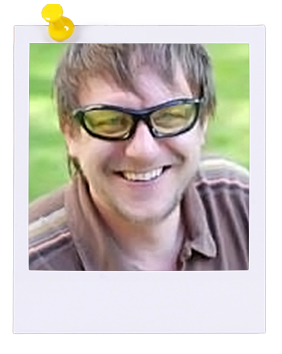 Leo Kaserer lives in Tirol/ Austria. He is an experienced social worker and lectures at the University of applied science in the department of social work in Innsbruck. Training and consultancy work brought him over the years to cooperate in almost all European countries and more than three other continents. He is the initiator of the Rückenwind strategy, which helps young people since 2006 with fewer opportunities to unfold their potential for a happier and healthier life. Recently he published the film “Last Fisherman” which tells about the fisherman Malcolm Baker and his unlikely friendship with Leo.
Leo Kaserer lives in Tirol/ Austria. He is an experienced social worker and lectures at the University of applied science in the department of social work in Innsbruck. Training and consultancy work brought him over the years to cooperate in almost all European countries and more than three other continents. He is the initiator of the Rückenwind strategy, which helps young people since 2006 with fewer opportunities to unfold their potential for a happier and healthier life. Recently he published the film “Last Fisherman” which tells about the fisherman Malcolm Baker and his unlikely friendship with Leo.
Articles:
A very personal testimonial. Issue 27
Linas Kukuraitis
Linas Kukuraitis (22 years old) is co-founder and project co-ordinator of the Pal. J. Matulaitis Social Centre in Vilnius, Lithuania. He first came in contact with youth work seven years ago when he joined a very active Catholic parish in Vilnius. Since then he has become deeply involved in the youth community organising projects, and is now responsible for children, youth activities and the training of young volunteers.
Articles:
Going Back to Awareness (Issue 3)
Manja Klemencic
Manja Klemencic comes from a little village in the vineyards region in the East of Slovenia. She graduated in International Management from the University of Maribor. As a student in the U.S., she got involved in competitive debatting, imported the concept to Slovenia and started a Slovenian high school and university debate programme. She became a trainer in formal debate for the Soros network and, in 1997, a member of the Governing Board of the International Karl Popper Debate Association. Since 1998 she has worked as Director of ESIB - The National Unions of Students in Europe. The highlights of 1999 for her were ESIB's projects in Kosovo. Manja has just moved from Vienna to Brussels, where ESIB has its secretariat since January 2000.
Articles:
Marko Kovacic
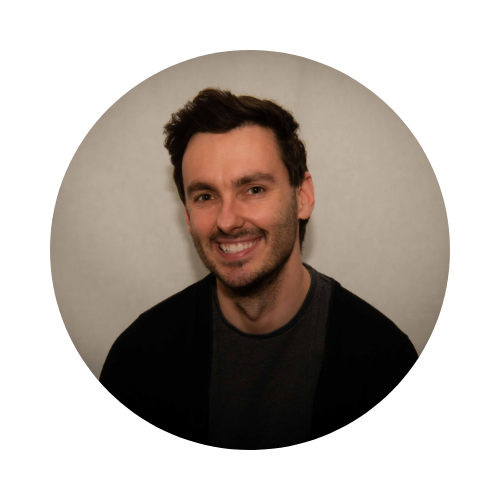 Marko Kovacic is a former youth worker turned academic. With a PhD in youth studies he teaches youth policy and youth work in different higher education institutions, studies consults different international organisations and participates in various youth policy processes at the European level.
Marko Kovacic is a former youth worker turned academic. With a PhD in youth studies he teaches youth policy and youth work in different higher education institutions, studies consults different international organisations and participates in various youth policy processes at the European level.
Articles:
Education and training of youth workers in the European context Issue 36
Michael Enzo Kultus
Enzo Kultus lives in Berlin and has been active in Europe as a trainer for 20 years, and for 10 years alsoas a director of 4 enterprises that provide computer training, material and software, Internet servers and home page design for organisations, institutions, small and middle-sized enterprises. For him, Internet is a working tool, which is essential to remain in touch with " the world ". Nevertheless, and even though technology is the centre of his life, he has remained an educationalist at heart.
Articles:
The Role of Internet in Youth Work (Issue 3)
Monika Kėžaitė - Jakniūnienė
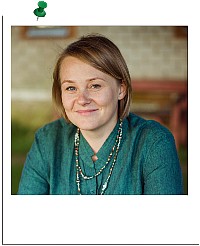 In 2000, she has started volunteering in youth organisation and was at the origins of implementation of European Voluntary Service in Lithuania. Since then - designing, implementing and facilitating various training projects with different target groups: volunteers, youth leaders, youth workers, organisations etc. Since 2004 - joined trainers' pool of SALTO-YOUTH Training and Cooperation Resource Center and have been developing and delivering several training concepts. She is also a co-author of several publications and articles.
In 2000, she has started volunteering in youth organisation and was at the origins of implementation of European Voluntary Service in Lithuania. Since then - designing, implementing and facilitating various training projects with different target groups: volunteers, youth leaders, youth workers, organisations etc. Since 2004 - joined trainers' pool of SALTO-YOUTH Training and Cooperation Resource Center and have been developing and delivering several training concepts. She is also a co-author of several publications and articles.
Articles:
Youth work innovation – deconstructed Issue 31
Dimensions of well-being Issue 32
Once upon a time... youth work met Covid Issue 32
Nerijus Kriauciunas
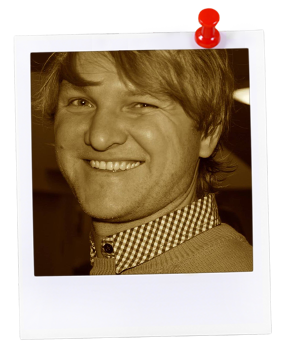 Nerijus Kriauciunas has been involved in youth work and youth work training since 2000. He works as an international trainer, online learning facilitator and developer of digital solutions tailored to the youth work and non-formal education sectors. He is mostly involved with developing, using and promoting the platform for Cities of Learning. He focuses on digital youth work developments, validation and recognition of learning using digital Open Badges, promoting international youth work and participation of young people.
Nerijus Kriauciunas has been involved in youth work and youth work training since 2000. He works as an international trainer, online learning facilitator and developer of digital solutions tailored to the youth work and non-formal education sectors. He is mostly involved with developing, using and promoting the platform for Cities of Learning. He focuses on digital youth work developments, validation and recognition of learning using digital Open Badges, promoting international youth work and participation of young people.
Articles:
Smart and digital youth work resources: where to find more (Issue 26)
Reet Kost
Reet Kost has worked as head of the Estonian Youth Fir Europe Agency since the establishment of the agency in Tallinn in 1997. Before that she worked as a youth commissioner dealing with training f youth workers and international project management for a regional government for six years. At present, Reet is also finishing her low studies at the university, and is proud of it.
Articles:
Crafting the Strategy (Issue 1)
Snežana Bačlija Knoch
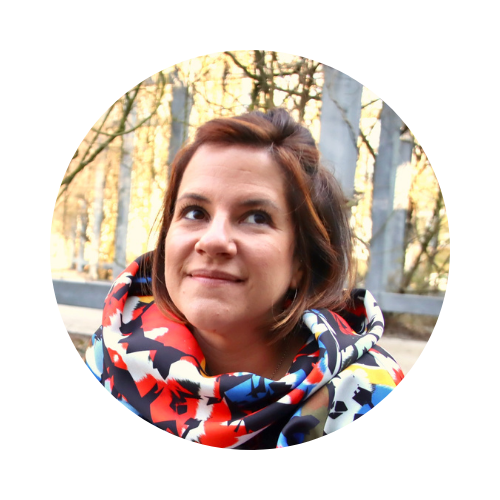 Snežana Bačlija Knoch is an educational consultant in the European youth work field and a facilitator of learning for almost two decades. Snežana’s passions are intercultural learning, value-based education and conflict transformation. She is based in Serbia and has been facilitating dialogue sessions and programmes for young people in the Balkans, Middle East and Caucasus. Snežana holds a master’s degree in international “Applied Conflict Transformation Studies Balkans and Middle East”.
Snežana Bačlija Knoch is an educational consultant in the European youth work field and a facilitator of learning for almost two decades. Snežana’s passions are intercultural learning, value-based education and conflict transformation. She is based in Serbia and has been facilitating dialogue sessions and programmes for young people in the Balkans, Middle East and Caucasus. Snežana holds a master’s degree in international “Applied Conflict Transformation Studies Balkans and Middle East”.
Articles:
Why is it so difficult to include “inclusion” in mobility talks and discussions? Issue 24
How inclusive is the (Erasmus ) Youth in Action programme? Issue 24
Sunčana Kusturin
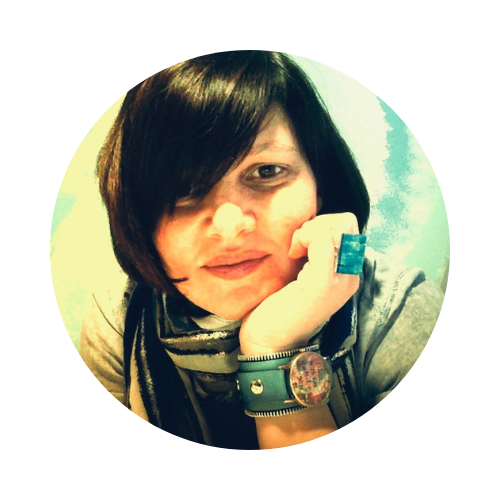
Sunčana Kusturin is a trainer in the youth field and also a social worker, a university specialist of supervision in psychosocial work and has a PhD in social work and social politics. For 17 years, she was working in an civil society organisation with children, young people, parents, teachers and other helping professionals. Her expertise lies within youth work, alternative care, non-formal education and well-being of helping professions. She is currently self-employed and lives in Zagreb, Croatia.
Articles:
Finding a second family (issue 33)
Søren Kristensen
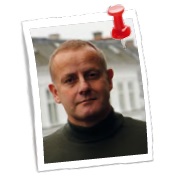 Soren Kristensen is from Denmark and has for many years been occupied with learning mobility, both at national and European levels. He is currently working as an independent research professional, based in Copenhagen.
Soren Kristensen is from Denmark and has for many years been occupied with learning mobility, both at national and European levels. He is currently working as an independent research professional, based in Copenhagen.
Articles:
Tomi Kiilakoski
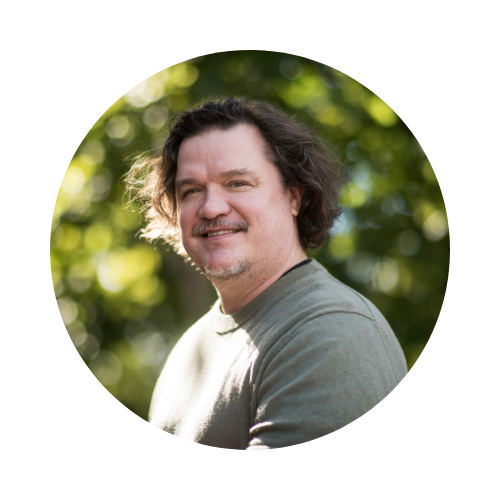 Tomi Kiilakoski PhD, is a leading senior researcher in the Finnish Youth Research Network and adjunct professor at Tampere University. He has studied youth participation, educational policy, climate activism, cultural philosophy and critical pedagogy. He actively engages in developing greener youth work.
Tomi Kiilakoski PhD, is a leading senior researcher in the Finnish Youth Research Network and adjunct professor at Tampere University. He has studied youth participation, educational policy, climate activism, cultural philosophy and critical pedagogy. He actively engages in developing greener youth work.
Articles:
Hope, sadness and the need for action Issue 35
Viktoria Karpatszki
Viktoria works as a project officer at the EU-Council of Europe youth partnership. She co-ordinates the Coyote magazine, and is involved in geographical co-operation activities of the EU-Council of Europe youth partnership in Eastern Europe and Caucasus, Western Balkans and South-East Europe, and South Mediterranean.
Articles:
Coyote Voxpop: What is Smart Youth Work? (Issue 26)
Yoruk Kurtaran
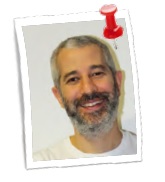 Yoruk Kurtaran is a researcher in İstanbul Bilgi University’s Youth Studies Unit.
Yoruk Kurtaran is a researcher in İstanbul Bilgi University’s Youth Studies Unit.
Articles:
Fact and figures from the youth mobility “scene” in Turkey. Issue 24
Anna Lavizzari
Anna is a researcher at the University Complutense of Madrid. Her research focuses on political participation and behaviour with a notable attention to social movements and protest politics among young people. She is particularly interested in gender approaches to political participation, how gender dynamics play a role in the way protests unfold and in the biographical trajectories of young activists. Beyond academia, she is also a member of the CoE Pool of European Youth Researchers.
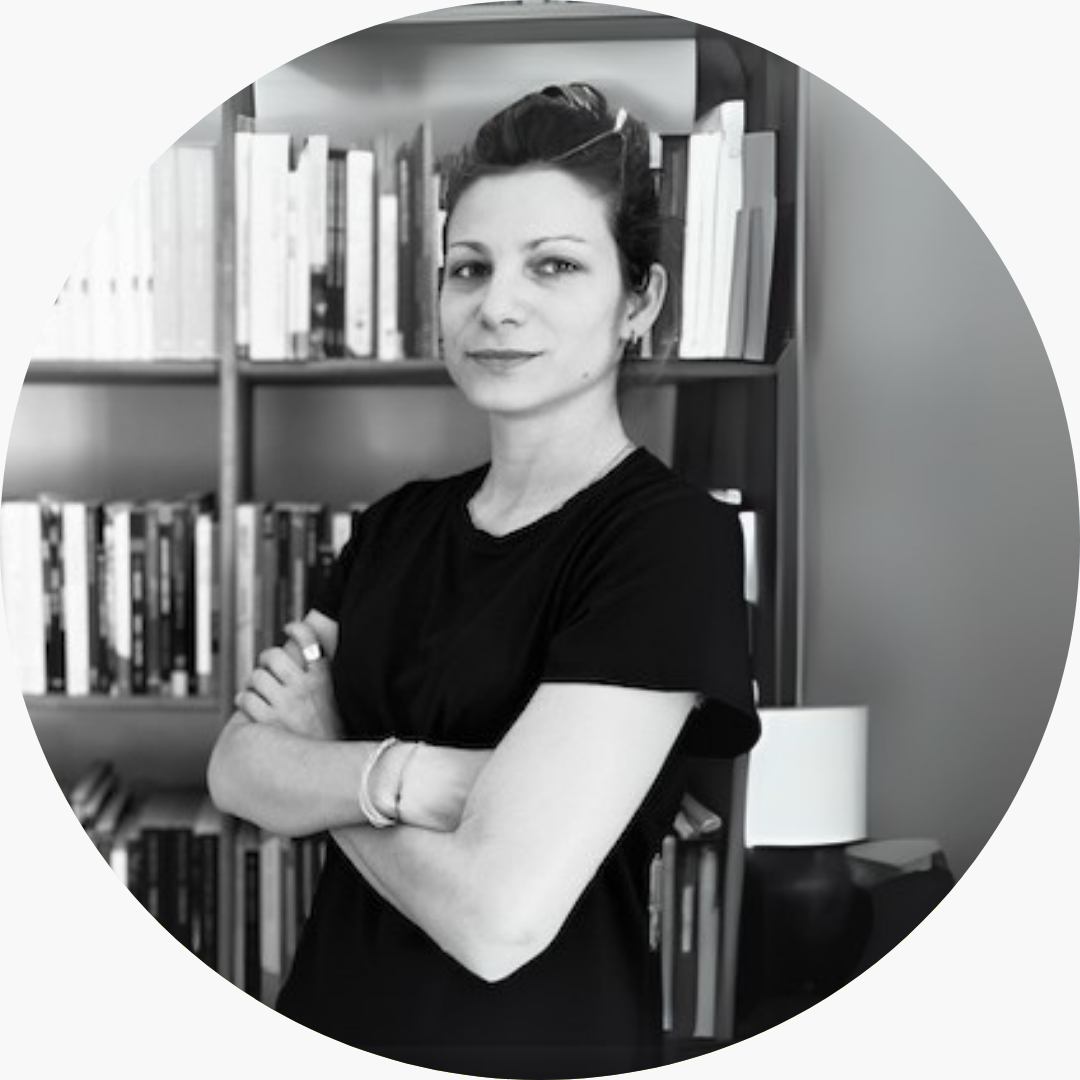
Article:
Breaking barriers: stories of youth activism and inclusive participation. Issue 37
Carolina Loureiro
Carolina, based in Portugal, has over a decade of experience in European youth work, specializing in EU youth policies, participation, and information. Passionate about fostering youth engagement, she builds partnerships, trains stakeholders, and leads impactful participatory activities. She has worked with institutions like National Youth Councils, National Agencies, the Council of Europe, and ERYICA, focusing on empowering others through innovative educational approaches.
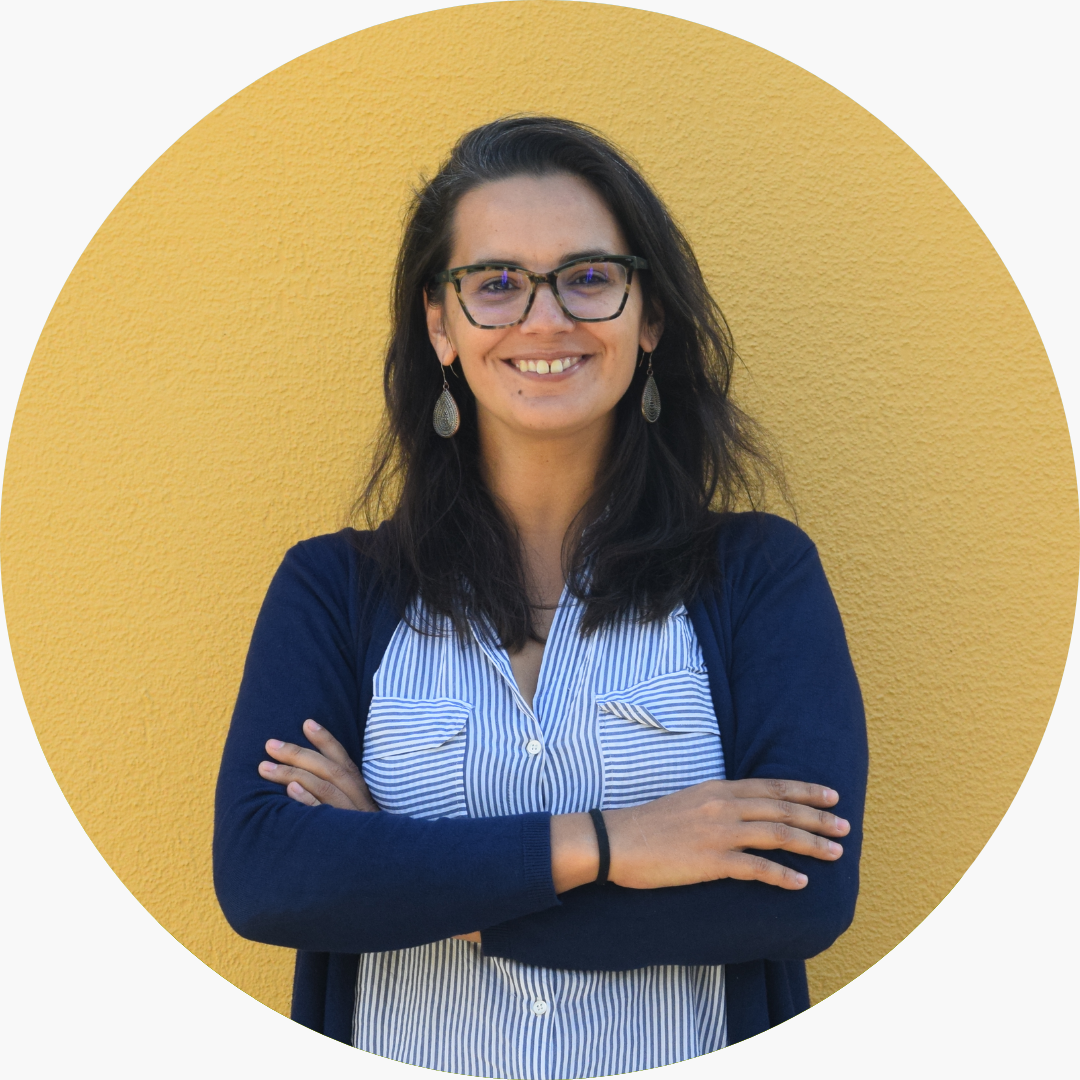
Article:
A call for systemic change: increasing the quality of democracies through youth participation. Issue 37
György Lissauer
György Lissauer has been living in the UK for 12 years. He was introduced to international youth work through his involvement in the European Union of Jewish Students and as a Member of Presidium was involved in the preparation of study sessions and participated in Youth Forum conferences. He graduated from the University of Kent with a law degree in 1999 and has spent the last 13 months working as Students’ Activities Co-ordinator for the Reform Synagogues of Great Britain. In March of this year he participated in the training course ´Training for Trainers´ at the European Youth Centre in Strasbourg. In October, György returned to university to follow a Masters course in law at the University of Oxford … however, he hopes to remain active in international training!
Articles:
Changes in the Weather - Training for hand-over in youth organisations (Issue 3)
Irina Lonean
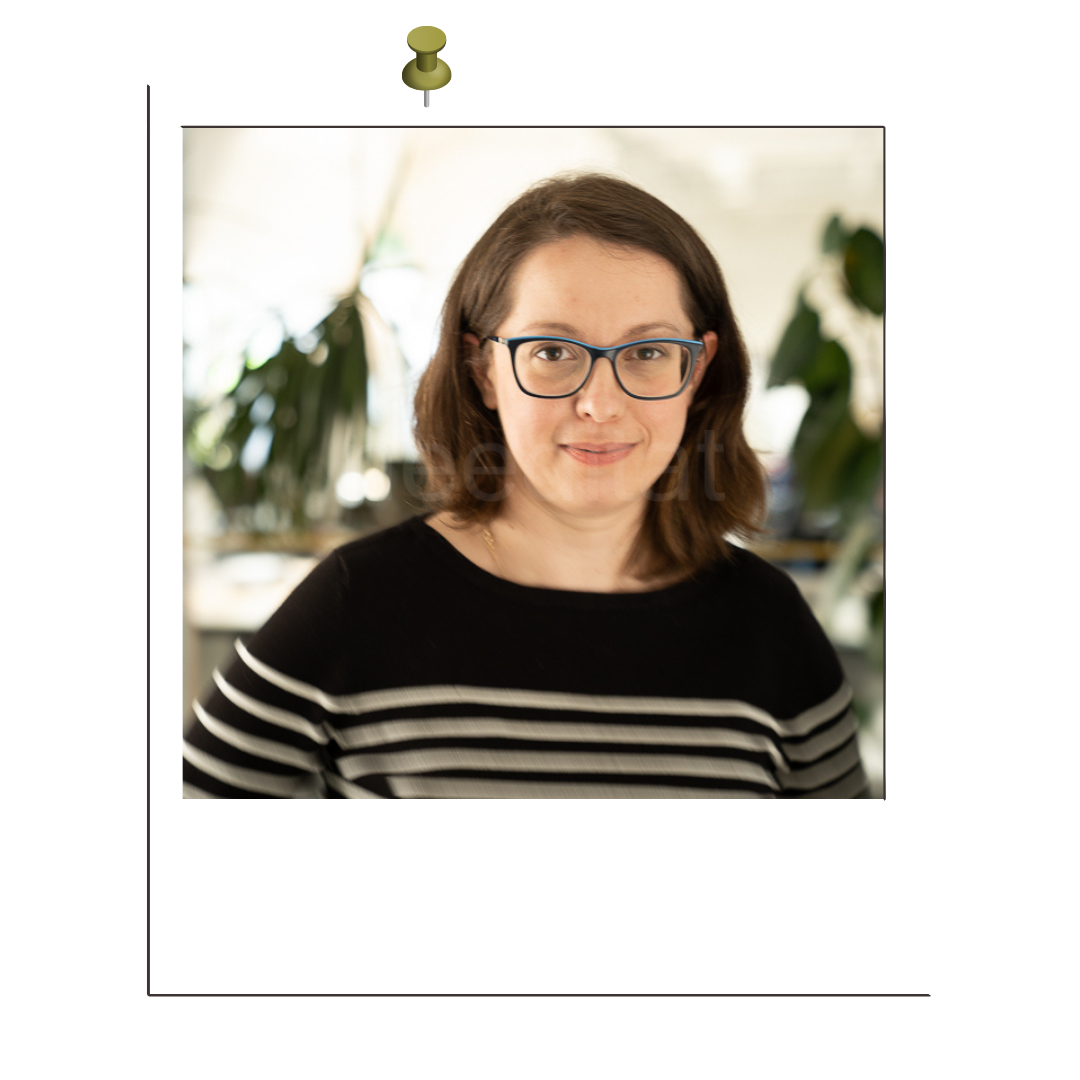 Irina Lonean is a freelance programme and policy evaluator. She has been part of teams conducting the evaluation of NGOs and public initiatives to develop Romanian youth policies. Among others, Irina participated to the evaluation of Youth Employment Initiative in Romania and UNICEF initiatives promoting wellbeing and support services for children and young people in Romania, Moldova, Turkey, Ukraine. She is also part of the team of the Youth Wiki Romanian national correspondents. She supports and advises for evidence based and participatory decision making.
Irina Lonean is a freelance programme and policy evaluator. She has been part of teams conducting the evaluation of NGOs and public initiatives to develop Romanian youth policies. Among others, Irina participated to the evaluation of Youth Employment Initiative in Romania and UNICEF initiatives promoting wellbeing and support services for children and young people in Romania, Moldova, Turkey, Ukraine. She is also part of the team of the Youth Wiki Romanian national correspondents. She supports and advises for evidence based and participatory decision making.
Articles:
Understanding the Covid-19 impact on youth Issue 32
Judit Lantai
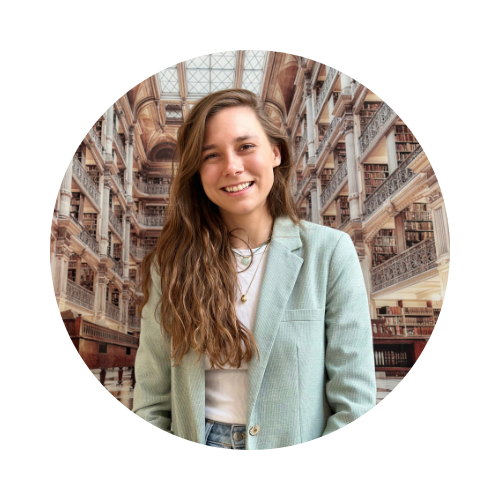 Judit has been active in youth organisations and NGOs on local, national and international levels for 14 years, focusing on active participation, democracy and European and global cooperation. She has extensive experience in youth work, and strives for systemic change on the daily both as an activist and as a trainer. She is currently finishing her mandate as Secretary General of the Young European Federalists (JEF Europe).
Judit has been active in youth organisations and NGOs on local, national and international levels for 14 years, focusing on active participation, democracy and European and global cooperation. She has extensive experience in youth work, and strives for systemic change on the daily both as an activist and as a trainer. She is currently finishing her mandate as Secretary General of the Young European Federalists (JEF Europe).
Article:
EurHope - we define the next chapter Issue 37
Maija Lehto
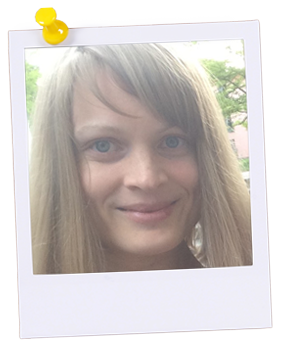 Maija works for the SALTO South East Europe Resource Centre, which promotes cooperation between Erasmus+ Programme countries and the programme's neighbouring partner countries in the Western Balkan region. In the past years she has been working predominantly on activities focusing on the topic of Europe from the perspective of integration, citizenship and identities.
Maija works for the SALTO South East Europe Resource Centre, which promotes cooperation between Erasmus+ Programme countries and the programme's neighbouring partner countries in the Western Balkan region. In the past years she has been working predominantly on activities focusing on the topic of Europe from the perspective of integration, citizenship and identities.
Is European citizenship still relevant in youth work and non-formal education in today’s Europe? (Issue 25)
Mila Lukic
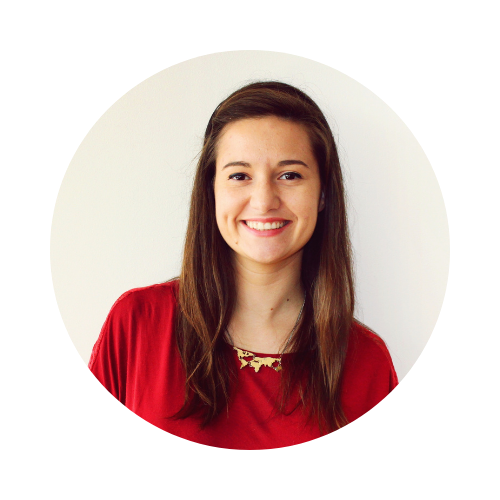 With 10+ years in the field of youth, Mila is a passionate youth activist, trainer and youth worker mainly dealing with youth participation, women empowerment, human rights education, social inclusion, peacebuilding and project management.
With 10+ years in the field of youth, Mila is a passionate youth activist, trainer and youth worker mainly dealing with youth participation, women empowerment, human rights education, social inclusion, peacebuilding and project management.
She was part of the NYC Serbia (KOMS), the EU Youth Delegate programme and the Advisory Council on Youth of the Council of Europe (CCJ), directly influencing policy-making processes and promoting co-management. She is an independent expert to the Serbian Advisory Council on Youth. She is also currently working as an Educational Advisor at the Council of Europe Youth Department in Strasbourg, implementing education and training activities that support dozens of youth NGOs and networks across Europe.
The biggest misconception about Mila is that she has an academic background in international relations, but actually, she holds a MSc in Tourism and Sustainable Development. In her spare time, she likes to hang out with her little niece, travel, read books and discover music.
Articles:
50 years of the Council of Europe youth sector (Issue 34)
Interview with Bjørn Berge, Deputy Secretary General of the Council of Europe (Issue 34)
Nadine Lyamouri-Bajja
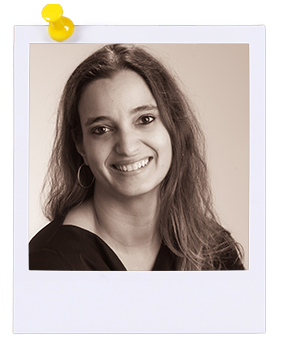 Nadine has worked with migrants and refugees for Doctors of the World, UNICEF and the Red Cross in various countries. From 2006-11, she was an educational advisor for the Youth Directorate of the Council of Europe. Currently,
Nadine has worked with migrants and refugees for Doctors of the World, UNICEF and the Red Cross in various countries. From 2006-11, she was an educational advisor for the Youth Directorate of the Council of Europe. Currently,
Nadine is a co-manager of the Intercultural Institute of Systemic Competences (iiCoS) in Marlenheim, France. She offers various training courses around systemic coaching and therapy, psychotraumatology, intercultural competences and social inclusion.
Articles:
Enter! – in and out. On roots, sources, origins and impact of Enter! (Issue 29)
Zara Lavchyan
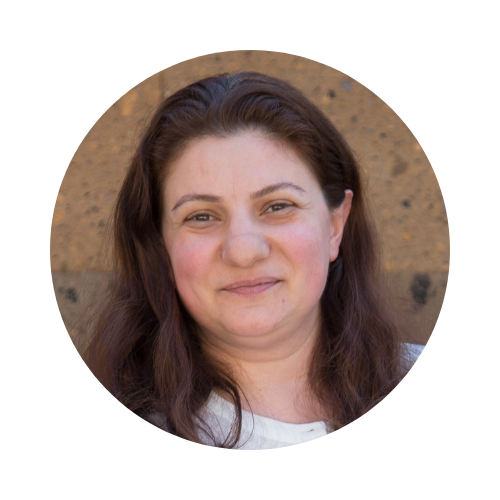 Zara is a trainer working with adolescents, youth, adults, teachers, trainers, policy makers with a youth worker background rooted in open youth work. In Armenia she has worked both for governmental bodies and civil society, widely promoting youth work, youth participation at all levels, community development, non-formal education, intercultural sensitivity and dialogue. She is member of the Trainers’ Pool of the Council of Europe Youth Department and the Innovative Educational Solutions' Laboratory NGO. Zara currently works in KASA Swiss Humanitarian Foundation, as a head of educational programmes, supporting teams and advising on their educational concepts and interventions.
Zara is a trainer working with adolescents, youth, adults, teachers, trainers, policy makers with a youth worker background rooted in open youth work. In Armenia she has worked both for governmental bodies and civil society, widely promoting youth work, youth participation at all levels, community development, non-formal education, intercultural sensitivity and dialogue. She is member of the Trainers’ Pool of the Council of Europe Youth Department and the Innovative Educational Solutions' Laboratory NGO. Zara currently works in KASA Swiss Humanitarian Foundation, as a head of educational programmes, supporting teams and advising on their educational concepts and interventions.
Articles:
European youth work: a hub for global critical citizens? Issue 27 (with Bryony Hoskins)
Steering the gears: supporting youth policy actions and actors for 25 years Issue 36
Ana Morgado
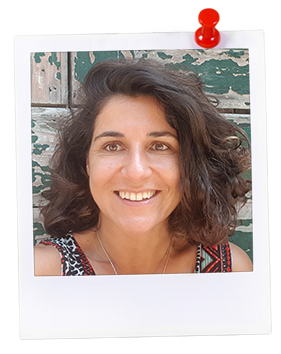 Ana has been working directly for and with schools since 2014. She believes in education as a form of self-discovery where self-esteem, trust and love are interwoven to generate possibilities for relationships and social transformation. Currently she works as a freelance consultant and trainer focusing on youth policies and civil and political participation of disadvantaged youth.
Ana has been working directly for and with schools since 2014. She believes in education as a form of self-discovery where self-esteem, trust and love are interwoven to generate possibilities for relationships and social transformation. Currently she works as a freelance consultant and trainer focusing on youth policies and civil and political participation of disadvantaged youth.
Articles:
Carol-Ann Morris
Carol Ann Morris is the Project officer for membership services at the European Youth Forum secretariat in Brussels.
Articles:
The story of Coyote (Issue 0)
The European Youth Forum pool of trainers : why? who? what? where? (Issue 0)
Dr Dan Moxon
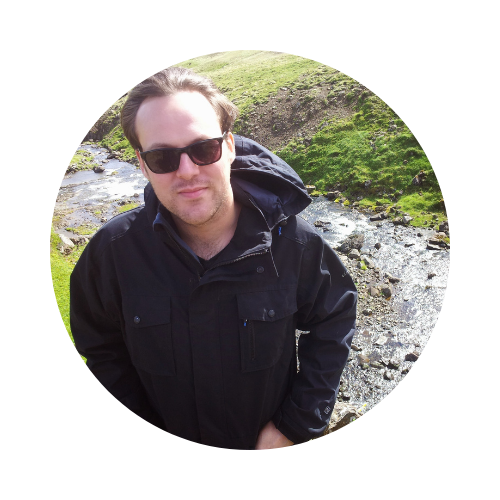
Dan is a researcher and practitioner specialising in inclusive youth participation with over 25 years’ experience. His research focuses on how children and young people's participation can influence policy and practice, as well as the development of participatory structures and processes. Originally a youth worker at local and regional levels in the north-western England, he now works throughout Europe and beyond supporting a variety of organisations to develop their approach to youth participation. In 2017, he was invited to re-develop the consultation process behind the EU Youth Dialogue. This engages nearly 50,000 young people from across the EU and was instrumental in developing the new European Youth Goals. He was recently the lead consultant drafting the strategy for enhancing youth participation in democratic life through the Erasmus+ and European Solidarity Corps programmes on behalf of SALTO Participation & Information.
Articles:
Thinking seriously about social inclusion Issue 29
Youth workers support young people to cast their vote! Issue 37
Eimear Manning
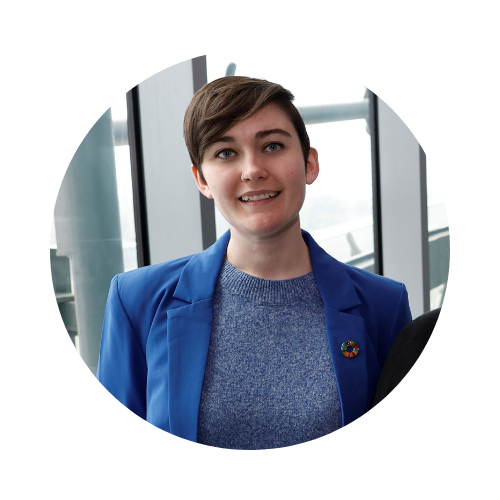 Eimear Manning is the youth and climate justice development officer in the National Youth Council of Ireland, where she manages youth-led projects centred on issues of climate justice, and meaningful youth inclusion. Eimear sits on a Drafting Group developing a Council of Europe recommendation on young people and climate action. She is also Ireland’s representative on the UNECE Education for Sustainable Development Steering Committee Youth Platform.
Eimear Manning is the youth and climate justice development officer in the National Youth Council of Ireland, where she manages youth-led projects centred on issues of climate justice, and meaningful youth inclusion. Eimear sits on a Drafting Group developing a Council of Europe recommendation on young people and climate action. She is also Ireland’s representative on the UNECE Education for Sustainable Development Steering Committee Youth Platform.
Articles:
Young people and climate action: A recommendation to the Council of Europe member states Issue 35
Eleni Michail
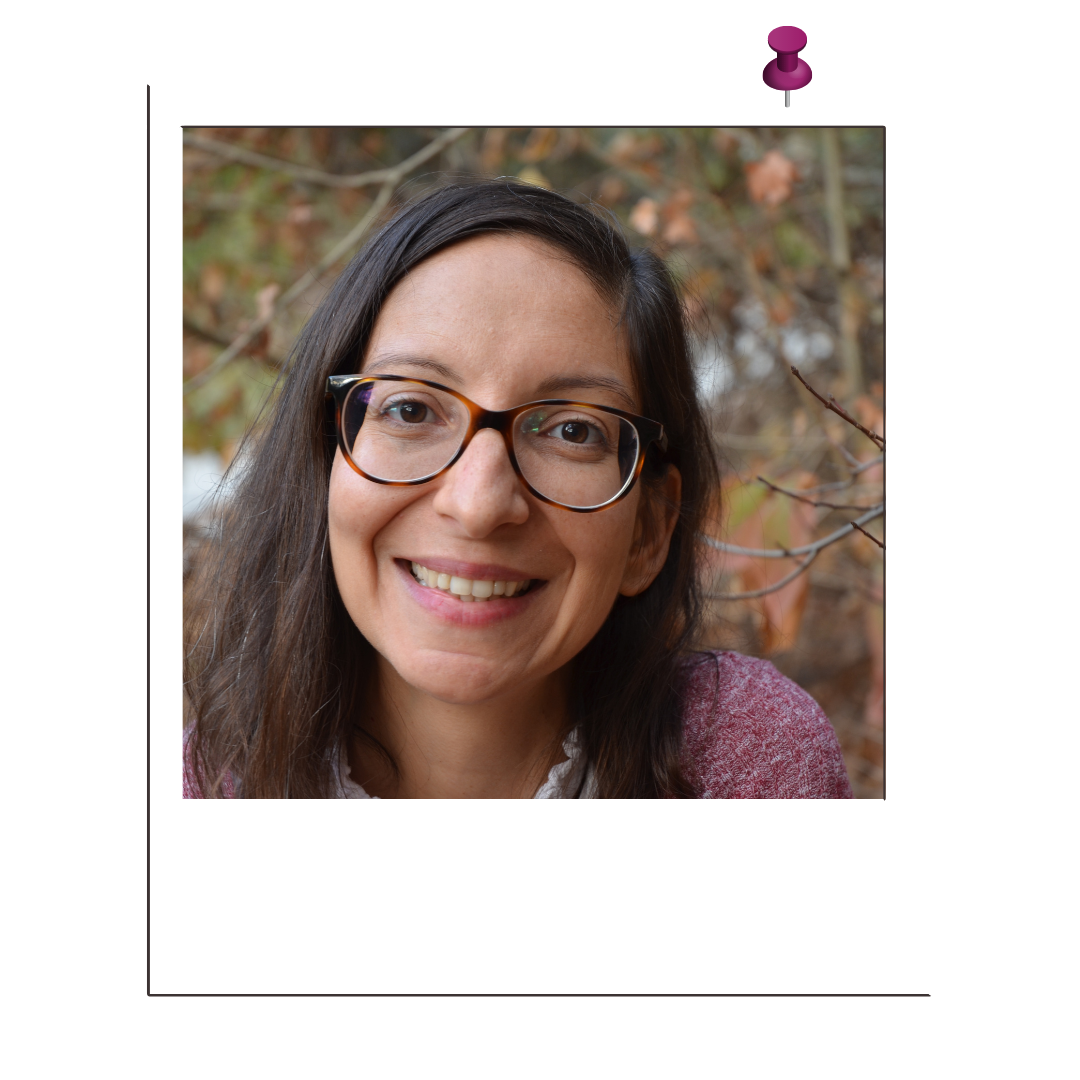 Eleni is a mindfulness teacher, a soul mentor and an educator passionate about inspiring change and supporting people to tune into their authenticity and lead meaningful lives. She believes that every person is uniquely gifted and wonder-ful. Through her work she dedicatedly creates a space in which people can see their own wonders and reconnect with their inner wisdom, as well as the wisdom of the Earth. In her work, she uses elements of positive psychology, soulcentric development and nature-based learning. Eleni lives in her homeland, Cyprus. Find more about Eleni.
Eleni is a mindfulness teacher, a soul mentor and an educator passionate about inspiring change and supporting people to tune into their authenticity and lead meaningful lives. She believes that every person is uniquely gifted and wonder-ful. Through her work she dedicatedly creates a space in which people can see their own wonders and reconnect with their inner wisdom, as well as the wisdom of the Earth. In her work, she uses elements of positive psychology, soulcentric development and nature-based learning. Eleni lives in her homeland, Cyprus. Find more about Eleni.
Articles:
Mindfulness for youth workers. What’s it all about? Issue 32
Fabiana Maraffa
Fabiana works at the European Youth Forum, where she champion evidence-based policymaking and innovative data solutions to shape a brighter future for young people across Europe. Responsible for the Youth Progress Index, Fabiana is committed to ensuring that youth policy is guided by robust, evidence-driven insights that pave the way for progress.
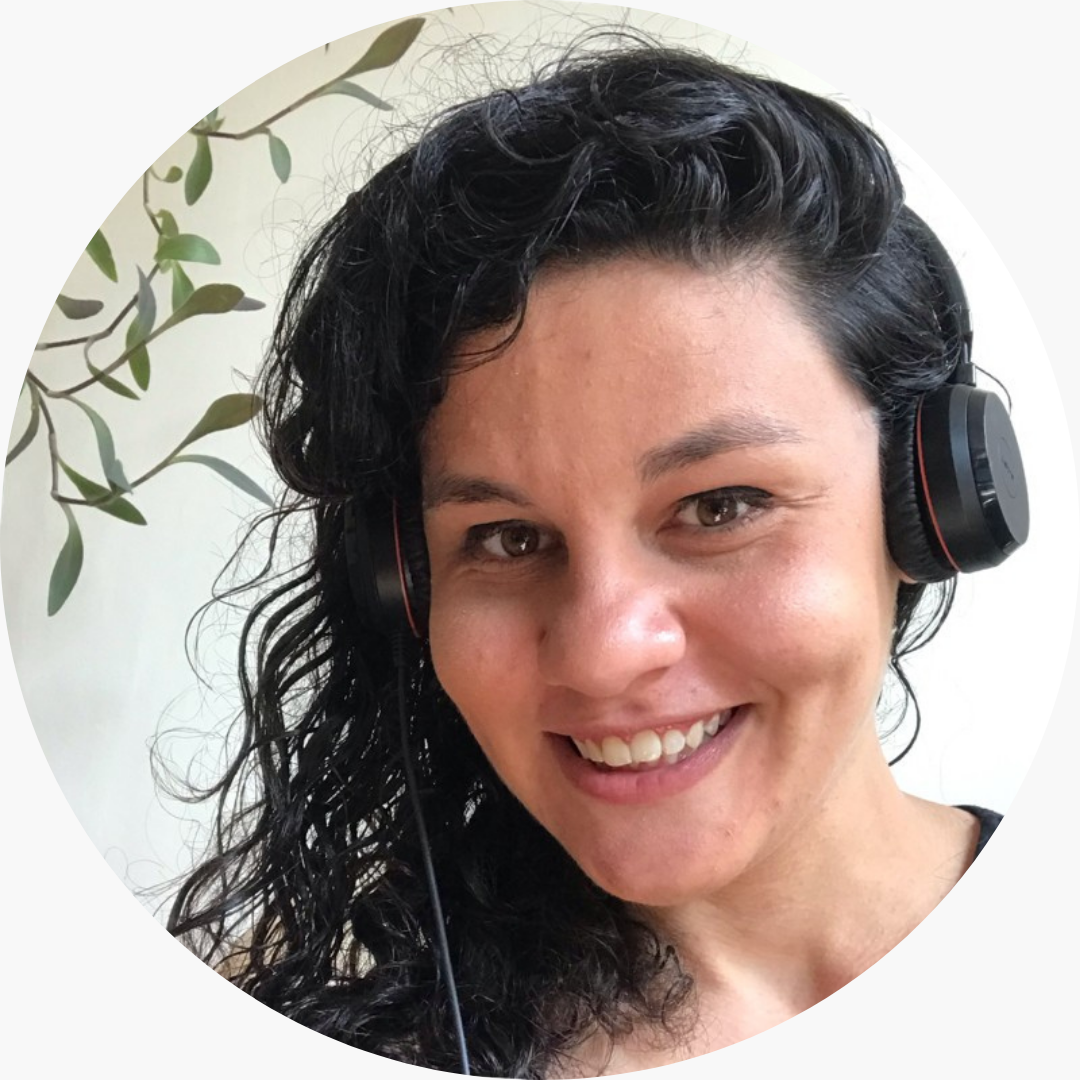
Article:
The Aftermath of the 2024 European Elections: A Missed Opportunity for Youth Representation, Issue 37
Jane Melvin
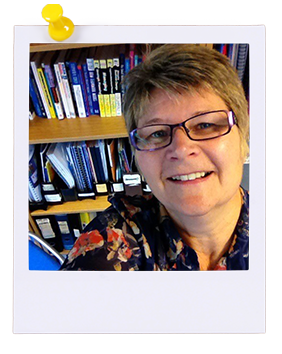 Jane is currently a Principal Lecturer and Programme Leader for the Undergraduate Work-based Learning Programme at the University of Brighton, UK, which includes a BA (Hons) Youth Work. She is Vice-Chair of the Professional Association of Lecturers in Youth and Community Work (TAG PALYCW) in the UK, and is a founder director of the Commonwealth Alliance of Youth Work Associations (CAYWA).
Jane is currently a Principal Lecturer and Programme Leader for the Undergraduate Work-based Learning Programme at the University of Brighton, UK, which includes a BA (Hons) Youth Work. She is Vice-Chair of the Professional Association of Lecturers in Youth and Community Work (TAG PALYCW) in the UK, and is a founder director of the Commonwealth Alliance of Youth Work Associations (CAYWA).
With over 25 years’ experience in both local authority and voluntary sector youth services (including three years working as an animatrice/educatrice in the French Alps), Jane came into youth work through outdoor and experiential education. Her research interests now centre on the use of digital technologies as a vehicle for engaging young people in informal and experiential learning contexts, and she has just completed a Professional Doctorate in Education researching the nature of digital tools, spaces and places as mediators of youth work practice.
Articles:
Digital Tools, Spaces and Places as Mediators of Youth Work Practice (Issue 26)
László Milutinovits
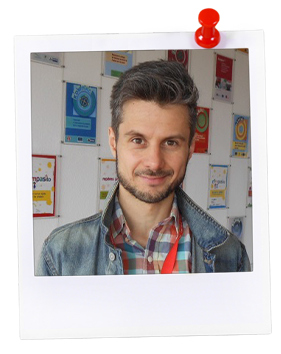 László is an educational advisor at the Youth Department of the Council of Europe. Based at the European Youth Centre Budapest, he works regularly on study sessions on a wide variety of topics with youth organisations, as well as on the training of trainers and educational staff of youth centres, peace building and Roma youth participation.
László is an educational advisor at the Youth Department of the Council of Europe. Based at the European Youth Centre Budapest, he works regularly on study sessions on a wide variety of topics with youth organisations, as well as on the training of trainers and educational staff of youth centres, peace building and Roma youth participation.
Articles:
- Training and education at the Youth Department of the Council of Europe (with Natalia Chardymova, Issue 28)
- Do they need our education? (Issue 28)
Lauren Mason
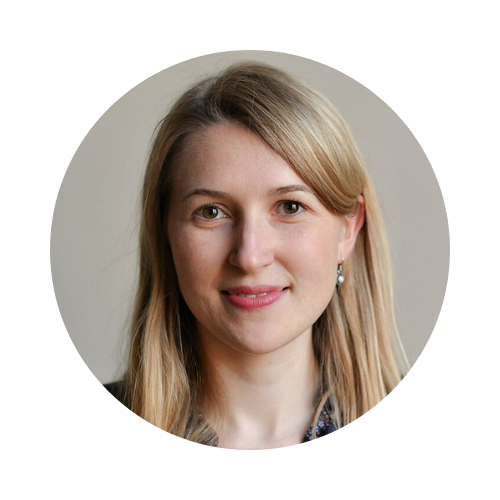 Lauren Mason works as policy and advocacy manager at the European Youth Forum, focusing on youth participation and digitalisation. She advocates for policies that work for young people, as well as fighting to get more youth voices brought to the table during policy discussions at EU, Council of Europe and UN levels. Prior to joining the European Youth Forum, Lauren worked at the European Liberal Forum and the Council of Europe, on projects to strengthen democracy across Europe. She has volunteered for many years as a youth activist.
Lauren Mason works as policy and advocacy manager at the European Youth Forum, focusing on youth participation and digitalisation. She advocates for policies that work for young people, as well as fighting to get more youth voices brought to the table during policy discussions at EU, Council of Europe and UN levels. Prior to joining the European Youth Forum, Lauren worked at the European Liberal Forum and the Council of Europe, on projects to strengthen democracy across Europe. She has volunteered for many years as a youth activist.
Article:
Marijeta Mojasevic
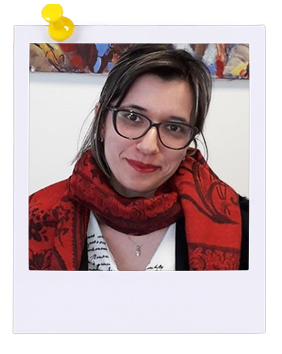 Marijeta is a social worker from Montenegro, with most of her work experience in the youth policy field and youth activism. She is a member of the European Network on Independent Living Youth Network Board and Advisory Council on Youth of the Council of Europe. Disability activism is her passion and moral obligation, as she identifies as a person with acquired disabilities for more than half of her life. “Grow plants – not prejudices.”
Marijeta is a social worker from Montenegro, with most of her work experience in the youth policy field and youth activism. She is a member of the European Network on Independent Living Youth Network Board and Advisory Council on Youth of the Council of Europe. Disability activism is her passion and moral obligation, as she identifies as a person with acquired disabilities for more than half of her life. “Grow plants – not prejudices.”
Articles:
Sexuality and relationships of young people with disabilities (Issue 29)
Peter Merry
Peter Merry is a freelance trainer, practitioner and consultant. He works in the field of intercultural learning, group facilitation, conflict management, the citizen and green issues, among others. He specialises in participative education for transformation, which includes the interactive methods of the Theatre of the Oppressed. His experience extends to many different types of organisation Europe-wide, as well as having spent a year teaching English in rural Ghana. He has a background in theatre, human ecology and modern languages. He has also been seen brandishig a guitar and harmonica, to accomany highly subversive lyrics...
Articles:
Theatre of the Oppressed and Youth –with Gavan Titley (Issue 1)
Rilke Mahieu
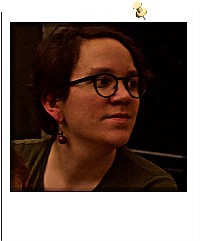 Rilke is a staff member at JINT, the National Agency for Erasmus+ Youth and the European Solidarity Corps in Flanders. She holds a Master in Political Sciences, and a PhD in Social Sciences. As a knowledge manager, she is passionate about bridging gaps between practice, research and policies. Youth work has offered her many things: a group of friends, competencies, self-confidence, warm memories and even a life partner - father of their two children.
Rilke is a staff member at JINT, the National Agency for Erasmus+ Youth and the European Solidarity Corps in Flanders. She holds a Master in Political Sciences, and a PhD in Social Sciences. As a knowledge manager, she is passionate about bridging gaps between practice, research and policies. Youth work has offered her many things: a group of friends, competencies, self-confidence, warm memories and even a life partner - father of their two children.
Article:
Mind the gap! (Issue 31)
Simona Molari
 Simona is a freelance trainer and facilitator, active in the European youth work field and living in Italy, Torino. But also a clown performing in the streets, and a mentor for ESC volunteers, and in the pool of trainers of the Council of Europe. She could have been an architect, but likely got involved in non formal education (in the last century) in a youth exchange and since then she is a defender of its values and importance. Together with two super friends colleagues she is the co-creator of the training course "The power of Non Formal Education", great supporter of learning through board educational "games": https://bb-games.eu/ http://www.uopo.com/
Simona is a freelance trainer and facilitator, active in the European youth work field and living in Italy, Torino. But also a clown performing in the streets, and a mentor for ESC volunteers, and in the pool of trainers of the Council of Europe. She could have been an architect, but likely got involved in non formal education (in the last century) in a youth exchange and since then she is a defender of its values and importance. Together with two super friends colleagues she is the co-creator of the training course "The power of Non Formal Education", great supporter of learning through board educational "games": https://bb-games.eu/ http://www.uopo.com/
Articles:
The seriousness of being funny Issue 32
Emma Louisa Neugebauer
Emma Louisa Neugebauer studied Communication in Berlin and Cape Town. She is currently a trainee in the Youth Outreach Unit of the European Parliament. Prior to this, she contributed to several German media outlets and produced content across various platforms. Her research focuses on transcontinental journalism between Europe and Africa.
Article:
What Matters to Europe's Youth?, Issue 37
Larissa Nenning
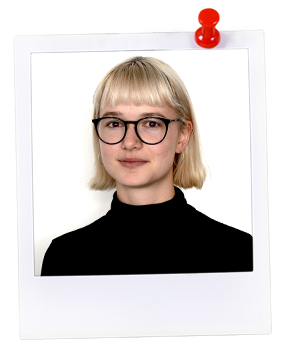 Larissa is a youth policy activist with a passion for democracy and social justice. She has been actively involved in democratic school student organising and representation at local, national and European level for several years. Currently she is a member of the Advisory Council on Youth of the Council of Europe. Her main areas of expertise lie in the fields of democratic participation, education and social inclusion, as well as labour market issues.
Larissa is a youth policy activist with a passion for democracy and social justice. She has been actively involved in democratic school student organising and representation at local, national and European level for several years. Currently she is a member of the Advisory Council on Youth of the Council of Europe. Her main areas of expertise lie in the fields of democratic participation, education and social inclusion, as well as labour market issues.
Articles:
Susie Nicodemi
 Susie Nicodemi is a freelance international youth work consultant living in the UK.
Susie Nicodemi is a freelance international youth work consultant living in the UK.
Articles:
We need more bowling and fewer boxes for the learning mobility of young people Issue 24
EYWC 2020: Policy perspectives from some pertinent players Issue 31
Youth work for climate justice Issue 34
Victoria Nash
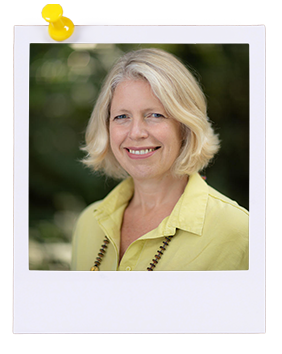 Victoria Nash is the Deputy Director and Senior Policy Fellow at the Oxford Internet Institute. In the latter role, she is responsible for leading the department’s engagement in digital policy matters. Her particular research interests draw on her background as a political theorist, focusing on the interests and rights of both child and adult Internet users. Recent projects have included an analysis of age verification policies as a tool for balancing the interests of children and adults online, and a review of the risks and harms faced by children online. She is currently leading a research project examining the concept of the ‘algorithmic child’ and the data risks posed to children by connected toys and the Internet of Things. She holds several digital policy advisory roles, including membership of the UK Government’s multi-stakeholder UKCCIS Evidence Group, and is frequently called on to give expert evidence in UK and EU policy consultations on broader issues such as platform governance.
Victoria Nash is the Deputy Director and Senior Policy Fellow at the Oxford Internet Institute. In the latter role, she is responsible for leading the department’s engagement in digital policy matters. Her particular research interests draw on her background as a political theorist, focusing on the interests and rights of both child and adult Internet users. Recent projects have included an analysis of age verification policies as a tool for balancing the interests of children and adults online, and a review of the risks and harms faced by children online. She is currently leading a research project examining the concept of the ‘algorithmic child’ and the data risks posed to children by connected toys and the Internet of Things. She holds several digital policy advisory roles, including membership of the UK Government’s multi-stakeholder UKCCIS Evidence Group, and is frequently called on to give expert evidence in UK and EU policy consultations on broader issues such as platform governance.
Articles:
The opportunities for youth services in the digital age. Issue 27
Andrey Ozharovskii
Andrey Ozharovskii is a nuclear physicist by.training.he is a leader of the Russian NGO - International Discussion Club - Moscow (IDC).
Articles:
The HSC Coefficient – Is Training Related to Real Life? (Issue 1)
Daniel Oliveira
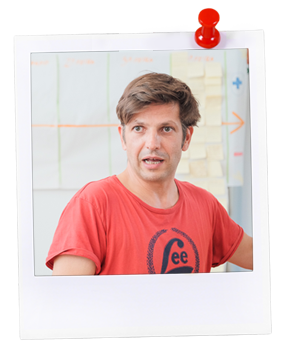 Daniel has been working at the Lisbon City Council since 2000, first as Public Relations in the area of Planning and Urbanism and since 2010 in the field of adult education, especially in the field of autobiographical narrative processes.
Daniel has been working at the Lisbon City Council since 2000, first as Public Relations in the area of Planning and Urbanism and since 2010 in the field of adult education, especially in the field of autobiographical narrative processes.
From 2005 until 2011 he also worked as a founding member of the Agency MAL - Movimento Acorda Lisboa, focused on the use of urban public space for cultural purpose.
In 2015 Daniel attended a training for Facilitators of Human Rights and Democratic Citizenship and has been involved in EDC/HRE actions for City Council workers as well as for youth and citizens since then, including the three SOMOS Schools that took place so far.
Articles:
John O'Regan
John O’Regan lectures in the School of English language education at Thames Valley University, London. He has been a teacher on the EYC English language course since 1989 and the Course Director since 1993. At Thames Valley University he is also involved in teacher training, direct language teaching, and undergraduate and postgraduate studies. His interests include intercultural learning through language, teaching language through content, EAP, ESP and discourse analysis. In the 13 years since he became a teacher John has worked in Europe, south-east Asia and South America.
Articles:
Methodological developments in intercultural learning through language –with John WATERMAN (Issue 0)
Reelika Ojakivi
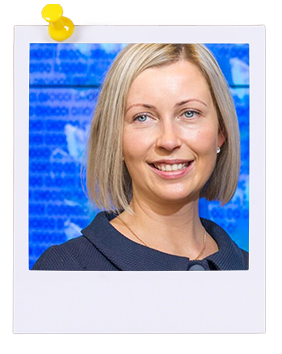 Reelika works as Head of the Youth Affairs Department at the Estonian Ministry of Education and Research.She led the youth field team of the Estonian Presidency of the Council of the European Union in 2017.
Reelika works as Head of the Youth Affairs Department at the Estonian Ministry of Education and Research.She led the youth field team of the Estonian Presidency of the Council of the European Union in 2017.
Articles:
Youth in Europe: what’s next? EU Youth Conference (Issue 26)
Aurelija Plūkė
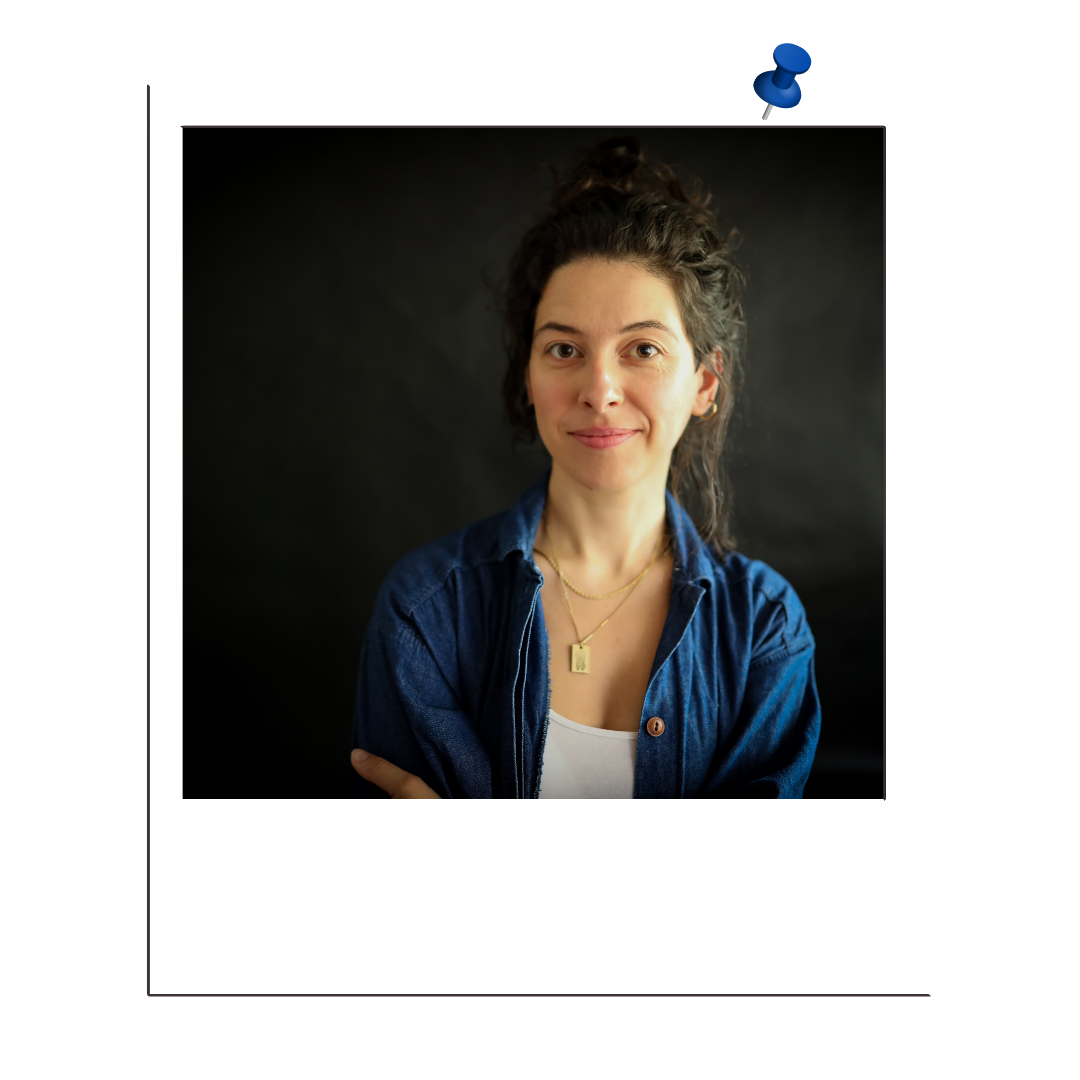 Aurelija has a bachelor of social work from Vilnius University and since being a student for more than 15 years she has been working in social field mainly managing different NGO organisations and developing social services for homeless people and youth. Applying principles and methods of non-formal education has been an important part of her work as well. Currently Aurelija curates educational-art projects at association “Kūrybinės jungtys” (Creative Connections) in Lithuania.
Aurelija has a bachelor of social work from Vilnius University and since being a student for more than 15 years she has been working in social field mainly managing different NGO organisations and developing social services for homeless people and youth. Applying principles and methods of non-formal education has been an important part of her work as well. Currently Aurelija curates educational-art projects at association “Kūrybinės jungtys” (Creative Connections) in Lithuania.
Articles:
Lindy Hopping through the lockdown Issue 32
Charly Pauwels
Major Charly Pauwels was born in Germany, while his father, also an officer, was a member of the military force that occupied that country after World War II. He joined army and moved 15 times with his family to several places in Belgium and Germany. He completed two missions in former Yugoslavia and is now preparing to go to Kosovo. Besides his Dutch mother tongue, he learned to speak, read and write French, English, German and Serbian during his career. He lives with second wife in a small town in Belgium called Leopoldsburg. Together they take care of four daughters and one son.
Articles:
Hrönn Pétursdottir
Hrönn Pétursdóttir is still active in the youth sector as a national board member of the Icelandic Boy and Girl Scout Association. She is furthermore involved in initiatives to increase the awareness of the non-formal educational aspect of youth associations. At the time of the publication of this article, she is changing professional positions and taking up a post in management education at Gallup.
Articles:
After European Youth Work (Issue 3)
Josyane Pierre
Josyane Pierre is French and lives in Brussels, where she has been Director of Mobility International since January 1998. She has always been working with disabled people, first at the Rehabilitationand Re-education Centre in Mulhouse where she was involved in setting up an individualised training system for young disabled people doing vocational training, then as an expert for the European Commission within the HELIOS programme for the integration, social and political participation of young people with disabilities. Josyane has a background in social studies and economics, education and information sciences.
Articles:
Lana Pasic
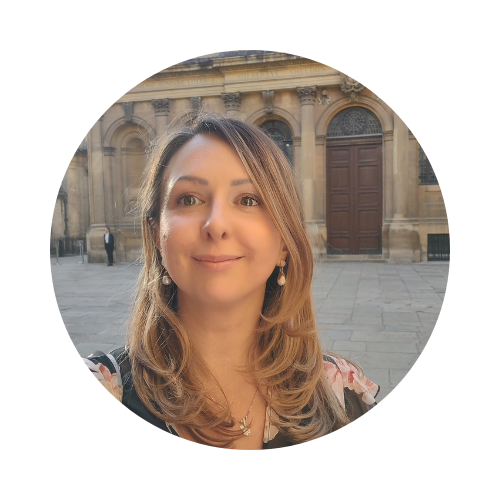 Lana is a youth research and policy manager at the Youth Partnership. She coordinates the research pillar of the Youth Partnership and works on youth participation, gender, social inclusion and sustainability. Lana has worked with numerous local and international NGOs, research institutes and international organisations in Europe and internationally.
Lana is a youth research and policy manager at the Youth Partnership. She coordinates the research pillar of the Youth Partnership and works on youth participation, gender, social inclusion and sustainability. Lana has worked with numerous local and international NGOs, research institutes and international organisations in Europe and internationally.
Articles:
Can digitalisation facilitate social inclusion of young people? Issue 29
Edito Issue 35
Lucija Popovska
Lucija Popovska worked as the head of the Civic Society Department of the Macedonian Centre for International Co-operation in Skopje, "the Former Yugoslav Republic of Macedonia".
Articles:
Aliens on the Balkans : Trainer ?!! What on earth is that! (Issue 0)
Maari Poim
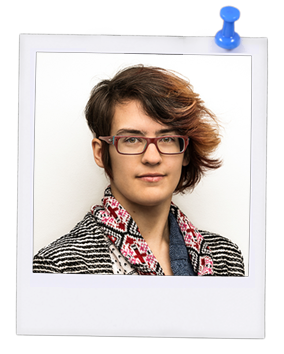 Maari works as a Project Coordinator of the ‘Youth for Human Rights’ in the Estonian National Agency of the Erasmus+ programme.
Maari works as a Project Coordinator of the ‘Youth for Human Rights’ in the Estonian National Agency of the Erasmus+ programme.
She also coordinates the Estonian No Hate Speech Movement campaign in the field of youth.
She is currently Tallinn-based. Prior to working for the Estonian NA, she has been living in Brussels, Stockholm and Budapest. Her main fields are gender and migration.
Articles:
Maria-Carmen Pantea
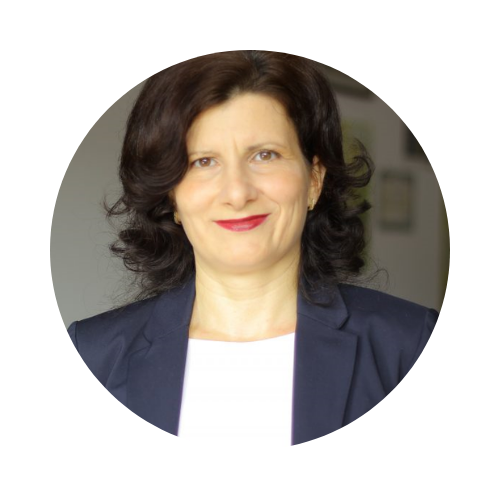 Member of the Advisory Group of the Pool of European Youth Researchers Advisory Group. Professor in Sociology in Romania. Interested in young people's relationship with civic life and what youth work can do about it.
Member of the Advisory Group of the Pool of European Youth Researchers Advisory Group. Professor in Sociology in Romania. Interested in young people's relationship with civic life and what youth work can do about it.
Articles:
Youth transitions Issue 36
Marko Pejovic
 Marko is a psychologist, psychotherapist, trainer in the field of non-formal education. He is the co-author of several NFE programs that address the empowerment of young people to oppose prejudice, discrimination and violence, and to practice cooperation and solidarity. He is the co-author of several programmes that include members of socially vulnerable groups in the field of art (Roma, people with disabilities, people with mental health difficulties, people with traumatic experience…), who have a social, mental health and the artistic dimension. He worked as a playwright for several socially engaged theater and dance performances, which won awards in Serbia and beyond. He also makes short feature films that promote the rights of people with disabilities. He is one of the founders of the Group "Let's..." (Grupa "Hajde da...").
Marko is a psychologist, psychotherapist, trainer in the field of non-formal education. He is the co-author of several NFE programs that address the empowerment of young people to oppose prejudice, discrimination and violence, and to practice cooperation and solidarity. He is the co-author of several programmes that include members of socially vulnerable groups in the field of art (Roma, people with disabilities, people with mental health difficulties, people with traumatic experience…), who have a social, mental health and the artistic dimension. He worked as a playwright for several socially engaged theater and dance performances, which won awards in Serbia and beyond. He also makes short feature films that promote the rights of people with disabilities. He is one of the founders of the Group "Let's..." (Grupa "Hajde da...").
Articles:
Marzena Ples
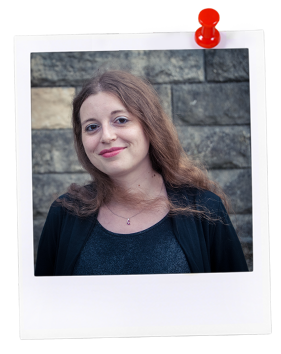 Marzena Ples is a research assistant at the Institute of Sociology (Jagiellonian University), project co-ordinator, trainer and educator. She specialises in intercultural communication, non-formal education, youth participation, educational tools in youth work, conflict resolution and mediation in youth work. She is working on her PhD thesis devoted to youth work. Most of the time she spends between Kraków (Poland) and York (United Kingdom) or travelling. In her free time she plays board and role-playing games.
Marzena Ples is a research assistant at the Institute of Sociology (Jagiellonian University), project co-ordinator, trainer and educator. She specialises in intercultural communication, non-formal education, youth participation, educational tools in youth work, conflict resolution and mediation in youth work. She is working on her PhD thesis devoted to youth work. Most of the time she spends between Kraków (Poland) and York (United Kingdom) or travelling. In her free time she plays board and role-playing games.
Articles:
Throw the smartphones away?! Opinions of youth workers and young people on internet usage in youth work (Issue 26) - with Ewa Krzaklewska
Michele Di Paola
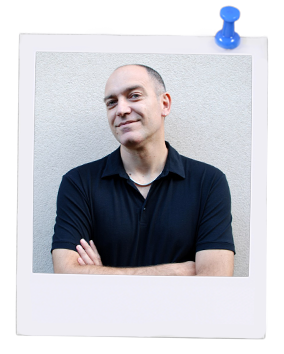 Michele is a freelance trainer, especially in digital youth work. He started working on what is now called digital youth work in 2008, with the action 4.4 project Non Virtual Youth Citizenship in a Virtual World. After that, he developed the digital media education activities called Praterie del Web for his organisation Spazio Giovani in Italy. He then co-ordinated ImageME, one of the first research projects on sexting among youngsters in Italy. He is part of the team behind Dig-It Up!, the Erasmus+ training course running since 2015 and aimed towards experiencing and designing digital youth work activities. He has designed trainings and curricula for schools and educational agencies using coding, videogames and robotics. His blog HandShaKing can be read in Italian and English at www.dipaola.me.
Michele is a freelance trainer, especially in digital youth work. He started working on what is now called digital youth work in 2008, with the action 4.4 project Non Virtual Youth Citizenship in a Virtual World. After that, he developed the digital media education activities called Praterie del Web for his organisation Spazio Giovani in Italy. He then co-ordinated ImageME, one of the first research projects on sexting among youngsters in Italy. He is part of the team behind Dig-It Up!, the Erasmus+ training course running since 2015 and aimed towards experiencing and designing digital youth work activities. He has designed trainings and curricula for schools and educational agencies using coding, videogames and robotics. His blog HandShaKing can be read in Italian and English at www.dipaola.me.
Articles:
Nik Paddison
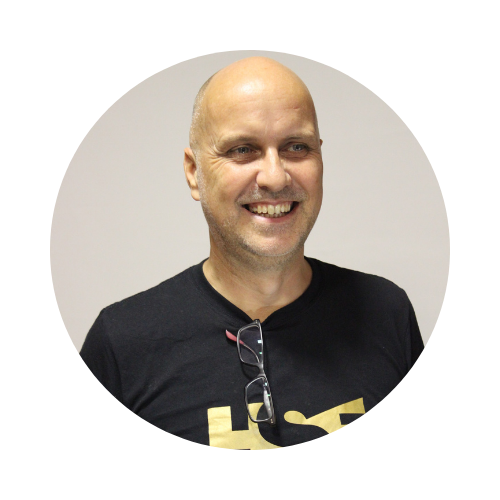 Nik Paddison is a full time freelance youth work trainer and writer working at the European level. He has a background as a youth worker from the UK. Nik specialises in the training of youth workers and trainers. He also develops training and educational materials for several youth organisation/institution web sites. He lives in Montenegro where he gets both sea and mountains to explore and a garden to read in.
Nik Paddison is a full time freelance youth work trainer and writer working at the European level. He has a background as a youth worker from the UK. Nik specialises in the training of youth workers and trainers. He also develops training and educational materials for several youth organisation/institution web sites. He lives in Montenegro where he gets both sea and mountains to explore and a garden to read in.
Article:
Patrick Penninckx
Patrick Penninckx has been a tutor and trainer at the Youth Directorate of the Council of Europe since 1989, where he coordinates the educational team and programme. Hi is also in charge of the co-operation with the European Commission in the field of European Youth Worker Training.
Articles:
Ruxandra Pandea
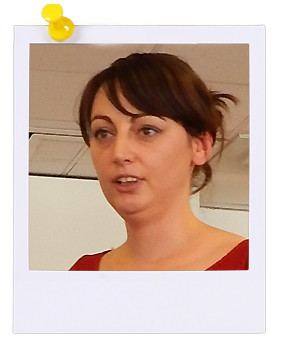 Ruxandra works as an educational advisor for the Youth Department of the Council of Europe. She has been involved in the Human Rights Education Youth Programme for the past seven years, including in the civil society review of the Charter on Education for Democratic Citizenship and Human Rights Education.
Ruxandra works as an educational advisor for the Youth Department of the Council of Europe. She has been involved in the Human Rights Education Youth Programme for the past seven years, including in the civil society review of the Charter on Education for Democratic Citizenship and Human Rights Education.
What’s love got to do with … human rights education? (Issue 25)
Tali Padan
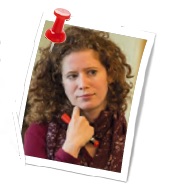 Tali Padan runs her own organisation, Mellem Education, in Denmark and delivers training courses on how the personal connects with the political.
Tali Padan runs her own organisation, Mellem Education, in Denmark and delivers training courses on how the personal connects with the political.
Articles:
Alexander Rose
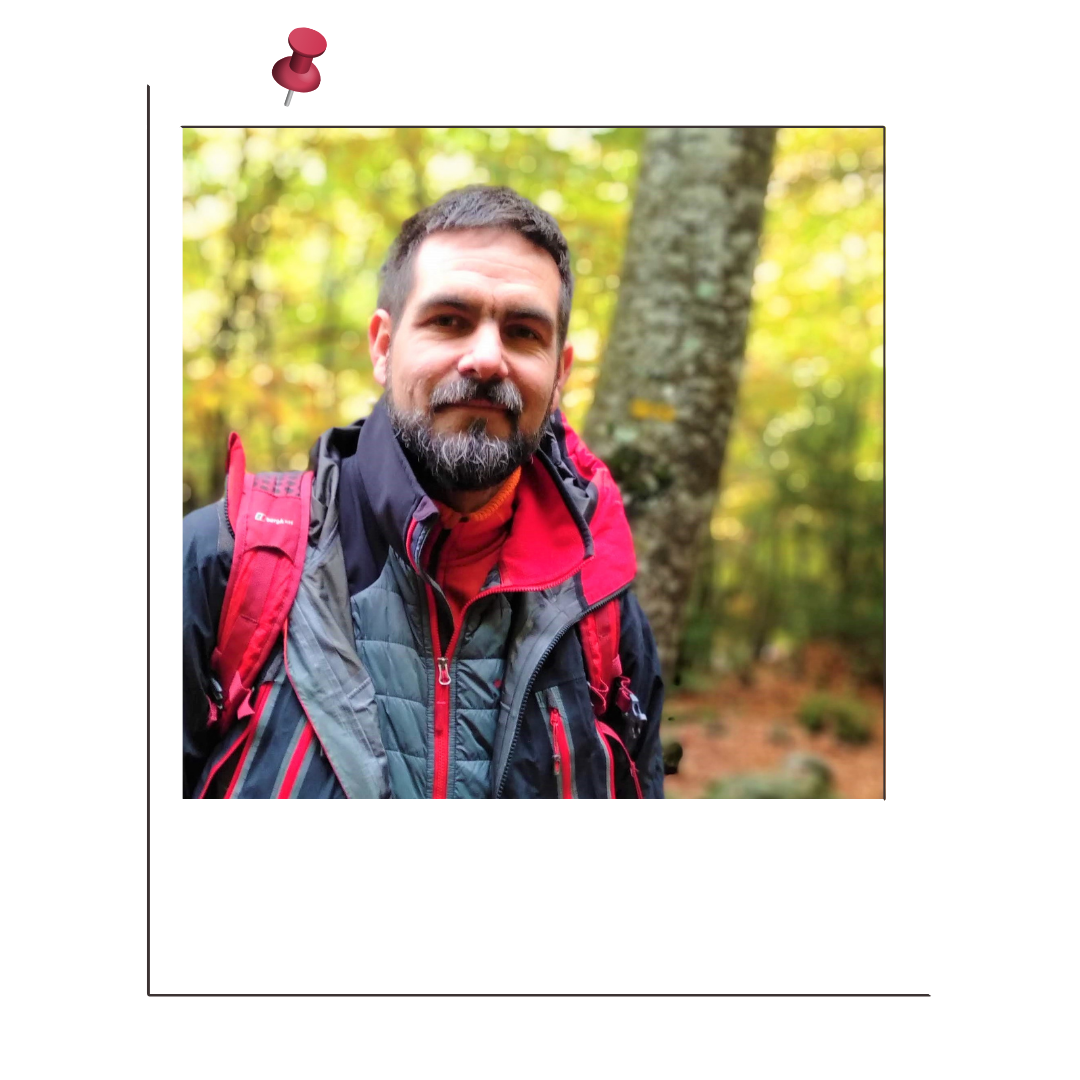 Alexander Rose is a clinical psychologist and sports scientist, with masters in health psychology and drug counselling. He juggles as lecturer at different universities, as psychologist, and developing the field of adventure therapy since 2008 in Terapia Aventura® (Spain) and the Adventure Therapy Institute (Germany). Organiser of the first and second Gathering for Adventure Therapy in Europe, he is honorary member of the Adventure Therapy International Committee (ATIC), and has written the first book of Adventure therapy in Spanish.
Alexander Rose is a clinical psychologist and sports scientist, with masters in health psychology and drug counselling. He juggles as lecturer at different universities, as psychologist, and developing the field of adventure therapy since 2008 in Terapia Aventura® (Spain) and the Adventure Therapy Institute (Germany). Organiser of the first and second Gathering for Adventure Therapy in Europe, he is honorary member of the Adventure Therapy International Committee (ATIC), and has written the first book of Adventure therapy in Spanish.
Articles:
Get outdoors, please! Issue 32
Alexandra Raykova
Alexandra Raykova is a Roma from Bulgaria, married and has a seven years old son. She studies governmental administration and international law at university. For 2 ½ years, she was working in Roma Bureau Sofia Foundation. Currently, she is the Controller of the Board of the Roma Youth Independent Organisation "Ternipe". This year, she has created the Foundation for Promotion of the Roma Youth, of which she is the Executive Director. From its very beginning she has been working for the development of FERYP, of which she is now a board member.
Articles:
Young Roma and their Communities : Training can make a difference (Issue 0)
Calin Rus
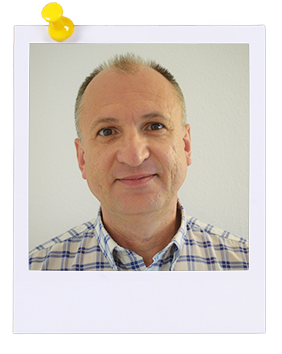 Calin Rus is director of the Intercultural Institute of Timisoara, Romania, and has been involved in Council of Europe projects since 1998. He was Pedagogical Coordinator of the ROMED programmes and co-author of the Reference Framework of Competences for Democratic Culture. He works on education for democratic citizenship and human rights, intercultural education and training, intercultural relations, Roma inclusion, migration and participatory community development.
Calin Rus is director of the Intercultural Institute of Timisoara, Romania, and has been involved in Council of Europe projects since 1998. He was Pedagogical Coordinator of the ROMED programmes and co-author of the Reference Framework of Competences for Democratic Culture. He works on education for democratic citizenship and human rights, intercultural education and training, intercultural relations, Roma inclusion, migration and participatory community development.
Articles:
Eva Reina
 Eva Reina is the director of the European Youth Information and Counselling Agency (EYICA). She is a convinced European passionate about non-formal learning and travelling.
Eva Reina is the director of the European Youth Information and Counselling Agency (EYICA). She is a convinced European passionate about non-formal learning and travelling.
Articles:
Greening youth information services Issue 35
Gianluca Rossino
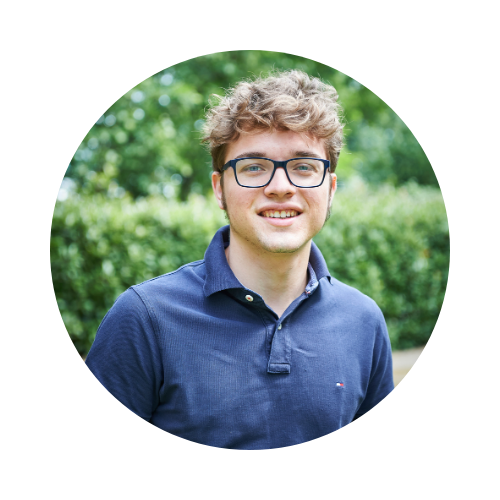 Gianluca is a youth trainer in the making, and he works as freelance project manager and expert in EU-funded initiatives, mainly. Gianluca has been a Member of the Advisory Council on Youth and Youth Delegate to the Congress of Local and Regional Authorities of the Council of Europe. He has also co-chaired the drafting group of the CMJ guidelines on youth participation. In his free time, he plays different sports and enjoys movies and good food.
Gianluca is a youth trainer in the making, and he works as freelance project manager and expert in EU-funded initiatives, mainly. Gianluca has been a Member of the Advisory Council on Youth and Youth Delegate to the Congress of Local and Regional Authorities of the Council of Europe. He has also co-chaired the drafting group of the CMJ guidelines on youth participation. In his free time, he plays different sports and enjoys movies and good food.
Article:
Youth participation 2.0: new guidelines to move forward Issue 37
Juliana Roth
Juliana Roth teaches Intercultural Communication at Munich University/Germany. Her academic background is in Slavic studies, East European history and ethnology. A native of Bulgaria, she lives and works in Germany and has often had teaching assignments in Russia and the US.
Articles:
Intercultural learning in European youth work: Some east-west perspectives (Issue 0)
Nevena Radosavljevic
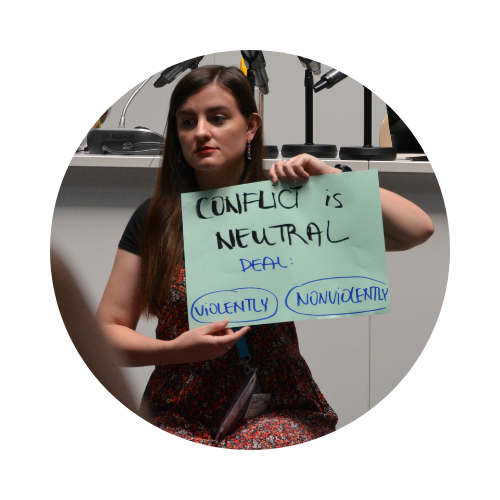 Nevena Radosavljevic is an experienced trainer with expertise in the fields of peacebuilding, conflict transformation, human rights, and dialogue. Since 2017, she has conducted training courses for numerous international and local organisations and worked in and with various conflict-affected communities. She holds an MA in peace studies and is currently pursuing a PhD at LMU Munich, where she is researching the links between civil society and peace building. Besides that, she is a proud member and trainer of the Youth Peace Ambassadors Network, where she shares her expertise and passion for finding peaceful and nonviolent ways to transform conflicts. She firmly believes in the power of empathy and human relationships as a driving force for building peace.
Nevena Radosavljevic is an experienced trainer with expertise in the fields of peacebuilding, conflict transformation, human rights, and dialogue. Since 2017, she has conducted training courses for numerous international and local organisations and worked in and with various conflict-affected communities. She holds an MA in peace studies and is currently pursuing a PhD at LMU Munich, where she is researching the links between civil society and peace building. Besides that, she is a proud member and trainer of the Youth Peace Ambassadors Network, where she shares her expertise and passion for finding peaceful and nonviolent ways to transform conflicts. She firmly believes in the power of empathy and human relationships as a driving force for building peace.
Articles:
Renewal of education for peace and why it is important?! Issue 33
Nol Reverda
Nol Reverda is a sociologist and lives in Maastricht, the Netherlands. He is the course director of the MA omparative European Social Studies and has co-operated intensively with the Council of Europe Directorate of Youth and Sport since 1993.
Articles:
Adina Marina Şerban
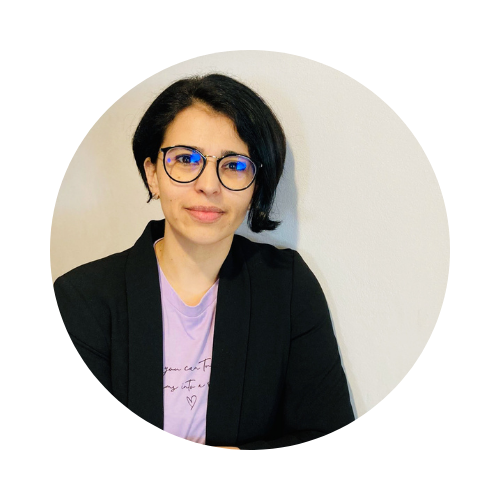 Adina (ECKYP and Youth Wiki Correspondent) holds a PhD in political sciences – comparative youth policies and combines her research interests and activities with grassroots youth work activities, mainly in rural communities. With a strong commitment to the advancement of Romanian youth policies, Adina served as the Chief of Staff of the State Secretary in the Field of Youth at the Romanian Ministry of Youth and Sport (2021).
Adina (ECKYP and Youth Wiki Correspondent) holds a PhD in political sciences – comparative youth policies and combines her research interests and activities with grassroots youth work activities, mainly in rural communities. With a strong commitment to the advancement of Romanian youth policies, Adina served as the Chief of Staff of the State Secretary in the Field of Youth at the Romanian Ministry of Youth and Sport (2021).
Articles:
Youth political participation: understanding what we (already) know! Issue 36
Carlos Sanz Del Castillo
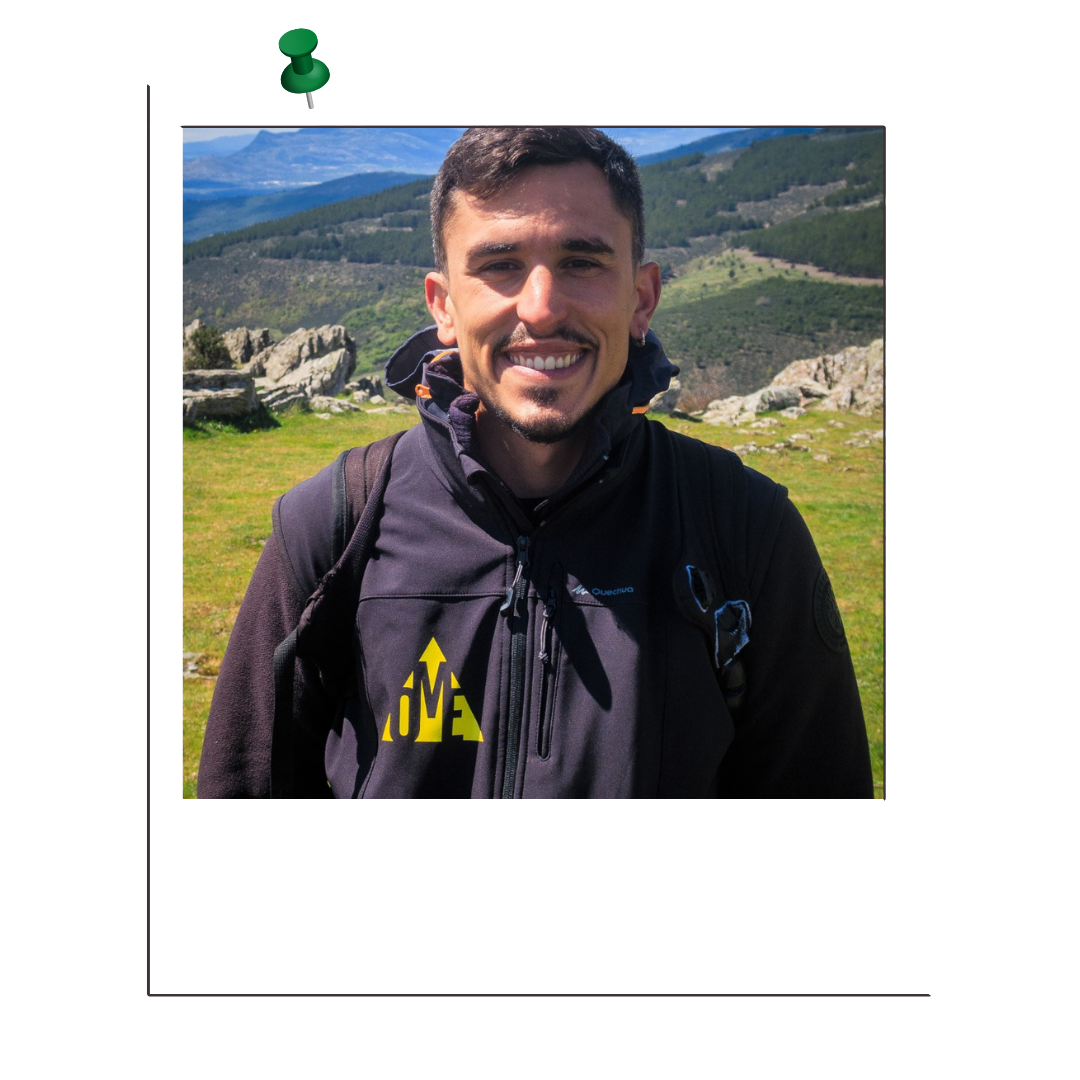 Carlos is an educator from Rivas (Madrid). Most of his life I've been related to the non-formal Education and youth work. During the last years I've been able to connect my passion for adventure and my willingness to help others through the Outdoor Education and Adventure Therapy approach.
Carlos is an educator from Rivas (Madrid). Most of his life I've been related to the non-formal Education and youth work. During the last years I've been able to connect my passion for adventure and my willingness to help others through the Outdoor Education and Adventure Therapy approach.
Articles:
Claudia Schachinger
Claudia Schachinger is working as European Secretary of JECI-MIEC (International Young Catholic Students). She studied communication in Vienna (final thesis on AIDS education in Uganda), is Austrian and at present living in Belgium.
Articles:
To walk in your shoes...: Training course on intercultural learning (Issue 0)
Edgar Schlümmer
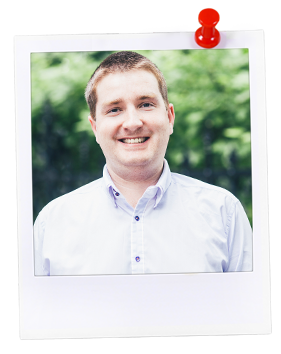 Edgar is Director of the National Centre for Youth Policy and Work. He has participated in the development of youth policy and youth work in Estonia for more than 16 years and is involved actively in international cooperation. He has worked for the Ministry of Education and Research's Youth Affairs Department and in a municipal youth centre as a youth worker, He was member of the board of the national umbrella organisation for youth centres. He holds an MA in Public Governance.
Edgar is Director of the National Centre for Youth Policy and Work. He has participated in the development of youth policy and youth work in Estonia for more than 16 years and is involved actively in international cooperation. He has worked for the Ministry of Education and Research's Youth Affairs Department and in a municipal youth centre as a youth worker, He was member of the board of the national umbrella organisation for youth centres. He holds an MA in Public Governance.
Articles:
The road to smart youth work (Issue 26)
Imre Simon
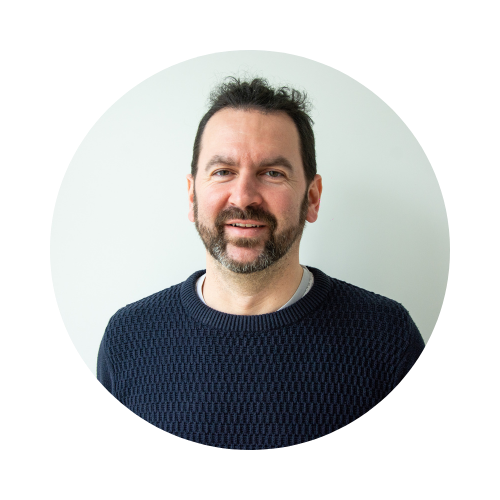 Imre Simon works as a consultant and development manager of the European Youth Information and Counselling Agency (ERYICA) and works to intensify European co-operation in the field of youth information work and services. He manages professional development projects in the youth information and counselling domain. He facilitates the transfer of knowledge among the youth information and counselling, youth work and youth policy fields.
Imre Simon works as a consultant and development manager of the European Youth Information and Counselling Agency (ERYICA) and works to intensify European co-operation in the field of youth information work and services. He manages professional development projects in the youth information and counselling domain. He facilitates the transfer of knowledge among the youth information and counselling, youth work and youth policy fields.
Articles:
Youth information worker: a profile Issue 21
Greening youth information services Issue 35
Jacques Spelekens
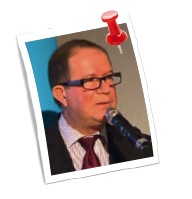 Jacques Spelekens is Corporate Social Responsibility Co-ordinator Benelux for ENGIE.
Jacques Spelekens is Corporate Social Responsibility Co-ordinator Benelux for ENGIE.
Articles:
The lonesome rider... Issue 24
Lucie Schubert
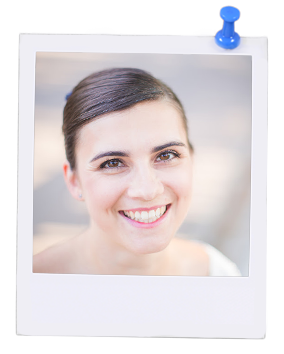 Lucie is a freelance trainer, facilitator, coach, (green) events manager and education manager for Wikimedia CZ. Over the past 15 years she has been involved in youth work and youth training, and as an external expert of the E+ Czech National Agency.
Lucie is a freelance trainer, facilitator, coach, (green) events manager and education manager for Wikimedia CZ. Over the past 15 years she has been involved in youth work and youth training, and as an external expert of the E+ Czech National Agency.
Her roots come from IYNF (International Young Naturefriends). She calls herself a product of the Youth in Action programme.
Her professional path has been influenced by social work practice, international youth work, and focusing on youth and social entrepreneurship and social innovations.
Articles:
Maïssa Saint-Joy
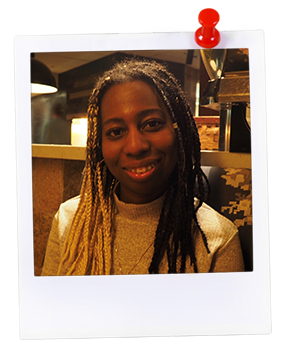 Maïssa is from Quebec in Canada. She is a master’s student in psychoeducation at Université de Montréal. She is passionate about youth, science and international problem-solving initiatives. She is a student member of a research laboratory on scientific knowledge transfer. (Her master’s thesis consists of evaluating an artificial-intelligent technology in mental health called Myelin. During her studies, she is also an assistant co-ordinator of a dropout prevention programme for teens from a multi-ethnic and socio-economically precarious neighbourhood, within the community organisation Les Fourchettes de l’Espoir.
Maïssa is from Quebec in Canada. She is a master’s student in psychoeducation at Université de Montréal. She is passionate about youth, science and international problem-solving initiatives. She is a student member of a research laboratory on scientific knowledge transfer. (Her master’s thesis consists of evaluating an artificial-intelligent technology in mental health called Myelin. During her studies, she is also an assistant co-ordinator of a dropout prevention programme for teens from a multi-ethnic and socio-economically precarious neighbourhood, within the community organisation Les Fourchettes de l’Espoir.
Articles:
What we brought and what we take away Canadian perspective on the Enter! Youth Week (Issue 29)
Maria Schreiber
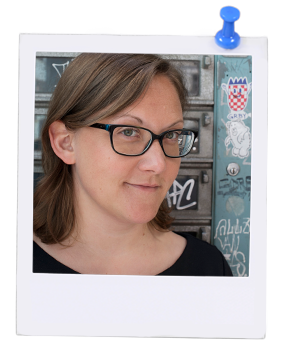 Dr Maria Schreiber is a media researcher, currently working on a project about biographies and social media at the Department of Sociology, University of Vienna. She has spent some time at research centres in Germany and Australia. Maria loves travelling, cat content and reaction GIFs and calls the internet her second home.
Dr Maria Schreiber is a media researcher, currently working on a project about biographies and social media at the Department of Sociology, University of Vienna. She has spent some time at research centres in Germany and Australia. Maria loves travelling, cat content and reaction GIFs and calls the internet her second home.
Articles:
Show me your self(ie)! (Issue 26)
Marinela Šumanjski
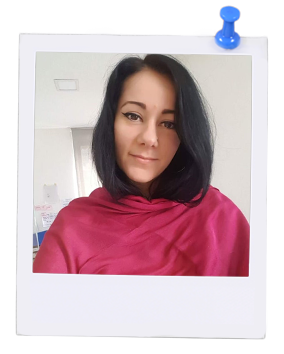
Marinela is a trainer and facilitator in the youth work field and currently working as the training and project manager for South East European Youth Network. She is also a permanent human rights fighter, frequent cake-maker, shameless shower-singer, occasional writer and biggest fan of non-formal education.
Articles:
Beyond the full circle. Self‑assessment of trainers in the youth field with Snežana Bačlija Knoch (Issue 28)
Maro Samara
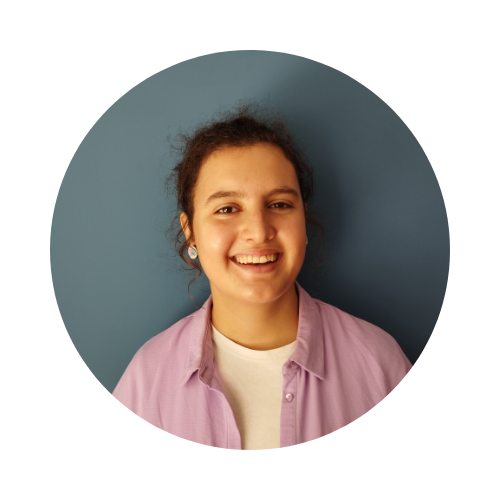 Maro Samara is part of the pool of the European Young Journalists 2023 writing content for the European Youth Portal. She has experience working as a project manager in NGOs specifically on projects about youths, digital literacy, and migrant and refugee integration initiatives around the EU.
Maro Samara is part of the pool of the European Young Journalists 2023 writing content for the European Youth Portal. She has experience working as a project manager in NGOs specifically on projects about youths, digital literacy, and migrant and refugee integration initiatives around the EU.
Article:
Mónica Salas Corrigan
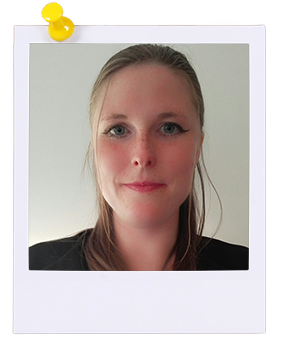 Mónica Salas Corrigan has experience in international co-operation through her participation in development projects in the north of Africa and has volunteered in Senegal, Nicaragua and Cape Verde (New Friends). Currently living in Lisbon, Portugal.
Mónica Salas Corrigan has experience in international co-operation through her participation in development projects in the north of Africa and has volunteered in Senegal, Nicaragua and Cape Verde (New Friends). Currently living in Lisbon, Portugal.
She is the president of Bué Fixe and co-ordinates local and international projects mainly on migration, youth, gender and media literacy. She is a trainer and responsible for the fundraising department.
Articles:
Bué Fixe. The life and adventures of a young youth organisation, Issue 29
Oana Nestian Sandu
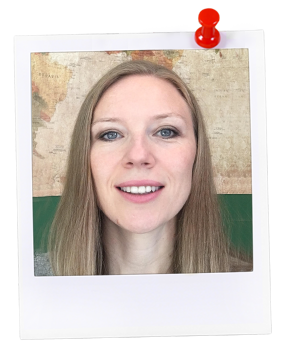 Oana Nestian Sandu conducts training and research on intercultural education, human rights education, Holocaust education, migration and Roma inclusion in Europe and the United States. She is the International Program Director of The Olga Lengyel Institute, New York and Program Director of the Intercultural Institute, Timisoara. She consults for the Council of Europe and the United Nations.
Oana Nestian Sandu conducts training and research on intercultural education, human rights education, Holocaust education, migration and Roma inclusion in Europe and the United States. She is the International Program Director of The Olga Lengyel Institute, New York and Program Director of the Intercultural Institute, Timisoara. She consults for the Council of Europe and the United Nations.
Articles:
Intercultural learning – A solution in the post-truth era. Issue 27
Ozgehan Şenyuva
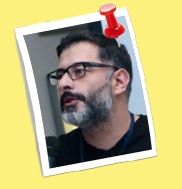 Ozgehan Şenyuva is an associate professor at Middle East Technical University, Ankara.
Ozgehan Şenyuva is an associate professor at Middle East Technical University, Ankara.
Articles:
Veronica Ştefan
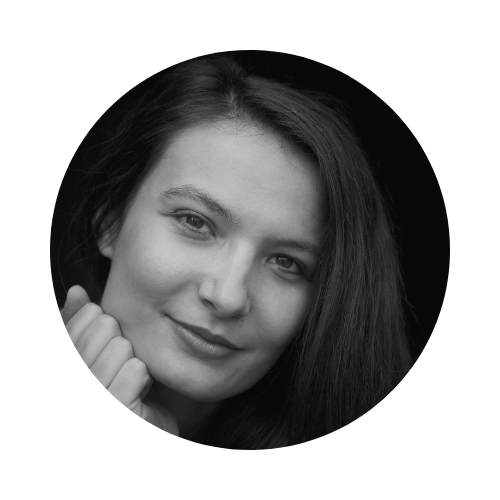 Veronica is a professional with more than 17 years of experience, working intensively at the intersection of education, policy and new technologies. Her recent activity includes contributions to digital policies, research on the social impact of artificial intelligence (AI) and new technologies, development of digital competences for educational and youth actors. She has been engaged in a variety of international initiatives, from research to public policy, capacity building or project management, while providing expertise for different stakeholders such as the Council of Europe, UN agencies, European Union bodies, as well as many other national and international private and public entities.
Veronica is a professional with more than 17 years of experience, working intensively at the intersection of education, policy and new technologies. Her recent activity includes contributions to digital policies, research on the social impact of artificial intelligence (AI) and new technologies, development of digital competences for educational and youth actors. She has been engaged in a variety of international initiatives, from research to public policy, capacity building or project management, while providing expertise for different stakeholders such as the Council of Europe, UN agencies, European Union bodies, as well as many other national and international private and public entities.
Articles:
Digitalisation and AI in the youth sector: reality or hype? Issue 36
Felissa Tibbits
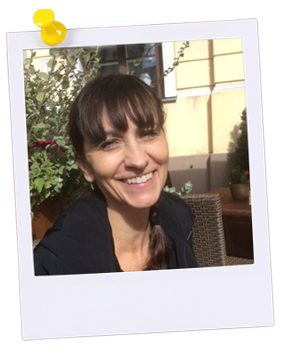 Felisa has carried out internal and external evaluations for two decades, including formal and non-formal education initiatives, with a focus on human rights and citizenship education with youth. She teachers monitoring and evaluation in the International Comparative Education Program at Columbia University (NYC) as well as online for Human Rights Education Associates (HREA).
Felisa has carried out internal and external evaluations for two decades, including formal and non-formal education initiatives, with a focus on human rights and citizenship education with youth. She teachers monitoring and evaluation in the International Comparative Education Program at Columbia University (NYC) as well as online for Human Rights Education Associates (HREA).
Articles:
- Have we made a positive difference? Evaluation of HRE (Issue 25)
Mark E. Taylor
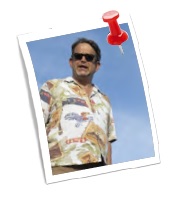
Mark is a trainer and writer and plays ukulele from his current base in Strasbourg, France. Empowering learners is his passion. Commitment to the recognition of non-formal learning led him to contribute to the development of the European Portfolio for Youth Workers and Leaders and to work on the development of Youthpass and be a member of its Advisory Group. He is a partner in the via Experientia consortium which sets out to expand the contours of experiential learning and research. A founding member of the editorial team and now for several years editor of Coyote magazine.
Articles:
Edito Issue 24
Marker : A historic farewell, gadgets and banners, and a thought for the future Issue 24
Edito Issue 25
Marker: Pourquoi le lapin est bleu? Issue 25
Edito Issue 26
Marker: Don’t push a snake with bare feet Issue 26
Edito Issue 27
The egg is pounding on the door Issue 28
Edito Issue 28
Marker: a camel’s humps don’t appear on the skeleton Issue 28
Edito Issue 29
“Impostor syndrome”; your trainer drawer and nice podcasts? Issue 29
Marker: The egg is pounding on the door Issue 27
Edito Issue 30
Marker: “Live streams”, online questioning and bye Sir Ken Issue 30
Edito Issue 31
Work does not escape that easily! Issue 31
Edito Issue 32
Youth workers encourage the drugs debate in Ireland Issue 32
Miriam Teuma
Miriam Teuma has been at the forefront of youth work policy and practice in Malta for over two decades. She played a key role in developing Malta’s National Youth Agency and has been actively involved in shaping youth work at the European level. Presently, she is the chairperson of the European Steering Committee for Youth at the Council of Europe.
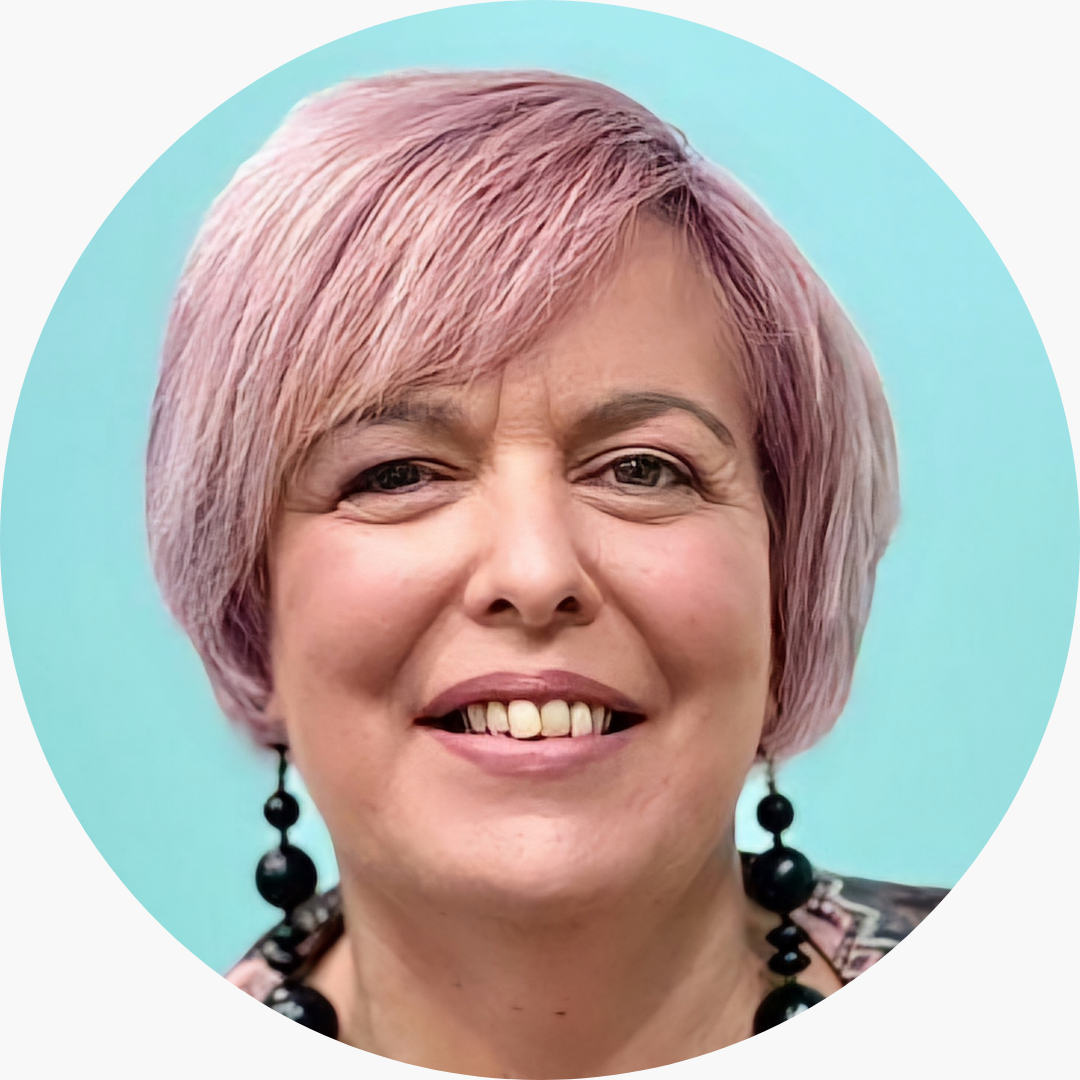
Article:
4th European Youth Work Convention – What are we talking about?, Issue 38
Zara Todd
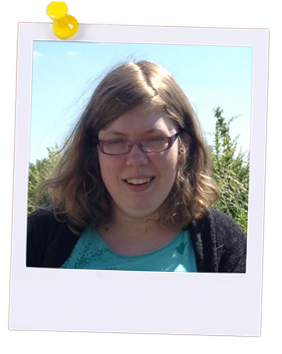 Zara is a human rights educator and disability rights activist from the UK. She works with people aged 4 and up to explore human rights and disability. She has recently become the Director of ENIL (the European Network on Independent Living) a disabled people's organisation working across the Council of Europe member states on disabled people's human rights, particularly the right to live in our communities.
Zara is a human rights educator and disability rights activist from the UK. She works with people aged 4 and up to explore human rights and disability. She has recently become the Director of ENIL (the European Network on Independent Living) a disabled people's organisation working across the Council of Europe member states on disabled people's human rights, particularly the right to live in our communities.
Articles:
Caroline Vink
Caroline Vink is the head of the National Agency of Youth for Europe and European Voluntary Service in the Netherlands. Since 1989 sha has been involved in European youth work through the Dutch youth council and CENYC and later in the European youth programmes. Her interest and experience are especially focused on non-formal education and training, intercultural learning and youth policy.
Articles:
Giving Credit: Certification and Assessment of Non-formal Education (Issue 1)
Daria Elizarrarás Veenstra
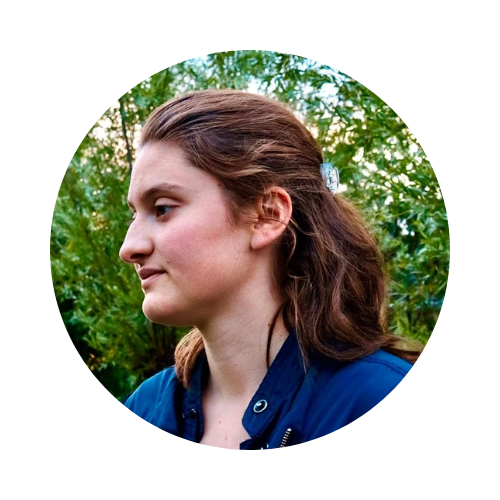 Daria Elizarrarás Veenstra is a Dutch-Mexican writer, member of the pool of European Young Journalists 2023 and currently living in the North of the Netherlands. She has dedicated the last three years to completing a Bachelor focused on finding local solutions to global problems, developing key interests in subjects like human rights, intersectionality and decolonization, all heavily intertwined with ‘youth in conflict’. Other passions lie in climate activism, slam poetry or music (more specifically drums).
Daria Elizarrarás Veenstra is a Dutch-Mexican writer, member of the pool of European Young Journalists 2023 and currently living in the North of the Netherlands. She has dedicated the last three years to completing a Bachelor focused on finding local solutions to global problems, developing key interests in subjects like human rights, intersectionality and decolonization, all heavily intertwined with ‘youth in conflict’. Other passions lie in climate activism, slam poetry or music (more specifically drums).
Article:
The EU, young people and conflict Issue 33
Esther Vallado
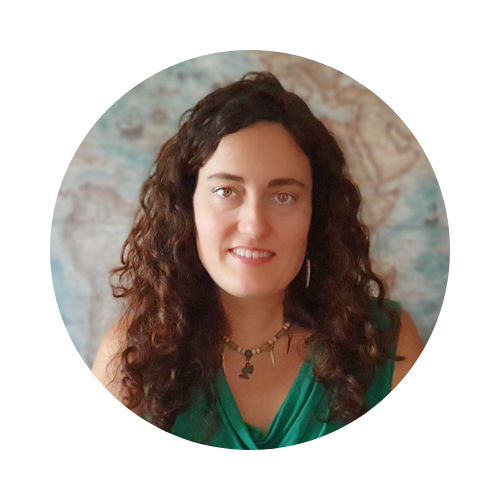 Esther is a freelance trainer and facilitator specialised in environmental issues, sustainability/regeneration, and connection with nature. She is the founding manager of the NGO "Asociación Biodiversa", which focuses on creating environmental education and awareness-raising experiences for young people and adults since 2011. Her background is in environmental sciences. Esther manages international projects for Biodiversa, based in Spain, and occasionally travels abroad to deliver training.
Esther is a freelance trainer and facilitator specialised in environmental issues, sustainability/regeneration, and connection with nature. She is the founding manager of the NGO "Asociación Biodiversa", which focuses on creating environmental education and awareness-raising experiences for young people and adults since 2011. Her background is in environmental sciences. Esther manages international projects for Biodiversa, based in Spain, and occasionally travels abroad to deliver training.
Articles:
Youth work for sustainability Issue 35
Giorgia Verna
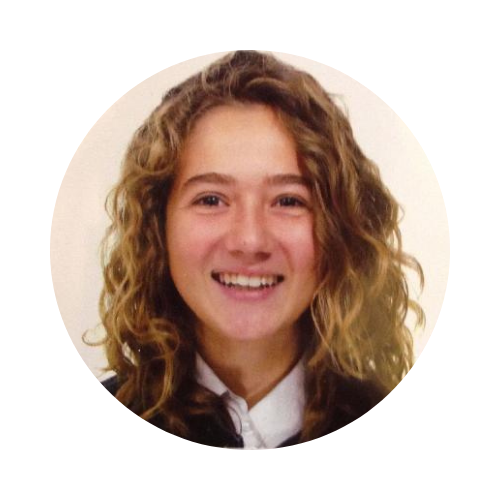 Giorgia Verna is from Italy and she has been working as a freelance journalist since 2019. She has a degree in political science and a Double Degree (in Italy and Belgium) in international relations and global studies. She has a Master Degree in journalism. She is collaborating with the editorial offices of the newspapers “La Repubblica”, “Il Mattino”, “Il Roma” and “L'altra voce dell'Italia”. She has recently been part of the Pool of European Young Journalist with Eurodesk. Passionate about the new media and social networks, she is social media manager for several pages and creates TikTok and Reels for "Francesco Oggiano", famous italian journalist, and other realities such as "Storie di Napoli" and "Weddigram".
Giorgia Verna is from Italy and she has been working as a freelance journalist since 2019. She has a degree in political science and a Double Degree (in Italy and Belgium) in international relations and global studies. She has a Master Degree in journalism. She is collaborating with the editorial offices of the newspapers “La Repubblica”, “Il Mattino”, “Il Roma” and “L'altra voce dell'Italia”. She has recently been part of the Pool of European Young Journalist with Eurodesk. Passionate about the new media and social networks, she is social media manager for several pages and creates TikTok and Reels for "Francesco Oggiano", famous italian journalist, and other realities such as "Storie di Napoli" and "Weddigram".
Articles:
Let’s talk about sustainability and learning mobilities Issue 35
Ivana Volf
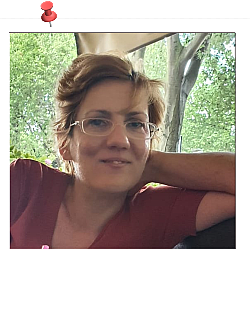 Ivana is a youth worker and youth trainer, with a background in psychology. She is dedicated to positive change of people and believes that this is the way to change communities and the world. That’s the main reason why she is also working for years on the professional development of youth workers and recognition of youth work.
Ivana is a youth worker and youth trainer, with a background in psychology. She is dedicated to positive change of people and believes that this is the way to change communities and the world. That’s the main reason why she is also working for years on the professional development of youth workers and recognition of youth work.
Article:
Why sustainable funding of youth work programmes? (Issue 31)
Jan Vanhee
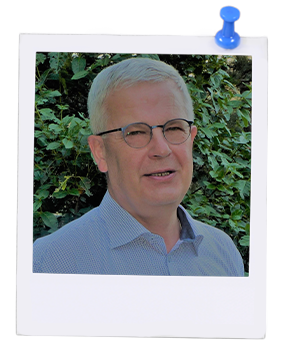 Jan Vanhee works on European and international youth policy in the Division for Youth at the Department for Culture, Youth, and Media in the Flemish Community of Belgium. He is youth affairs attaché with the Permanent Representation of Belgium to the EU (Flemish Representation), represents Belgium (Flanders) in the EU Youth Working Party and on the Council of Europe’s Intergovernmental Steering Committee for Youth (CDEJ) and follows all major political developments and debates on youth(work) issues in Europe and beyond. His special interests include EU-relations, the Council of Europe, the United Nations, civil society policy, youth (work) policy, human rights, democracy, youth mobility, co-operation on youth issues with South Africa, social work, migration and extreme poverty reduction. Follow at: https://twitter.com/jan.vanhee1
Jan Vanhee works on European and international youth policy in the Division for Youth at the Department for Culture, Youth, and Media in the Flemish Community of Belgium. He is youth affairs attaché with the Permanent Representation of Belgium to the EU (Flemish Representation), represents Belgium (Flanders) in the EU Youth Working Party and on the Council of Europe’s Intergovernmental Steering Committee for Youth (CDEJ) and follows all major political developments and debates on youth(work) issues in Europe and beyond. His special interests include EU-relations, the Council of Europe, the United Nations, civil society policy, youth (work) policy, human rights, democracy, youth mobility, co-operation on youth issues with South Africa, social work, migration and extreme poverty reduction. Follow at: https://twitter.com/jan.vanhee1
Articles:
Putting youth work throughout Europe on the map. Issue 27 (with Howard Williamson)
Javier Velasco Caballero
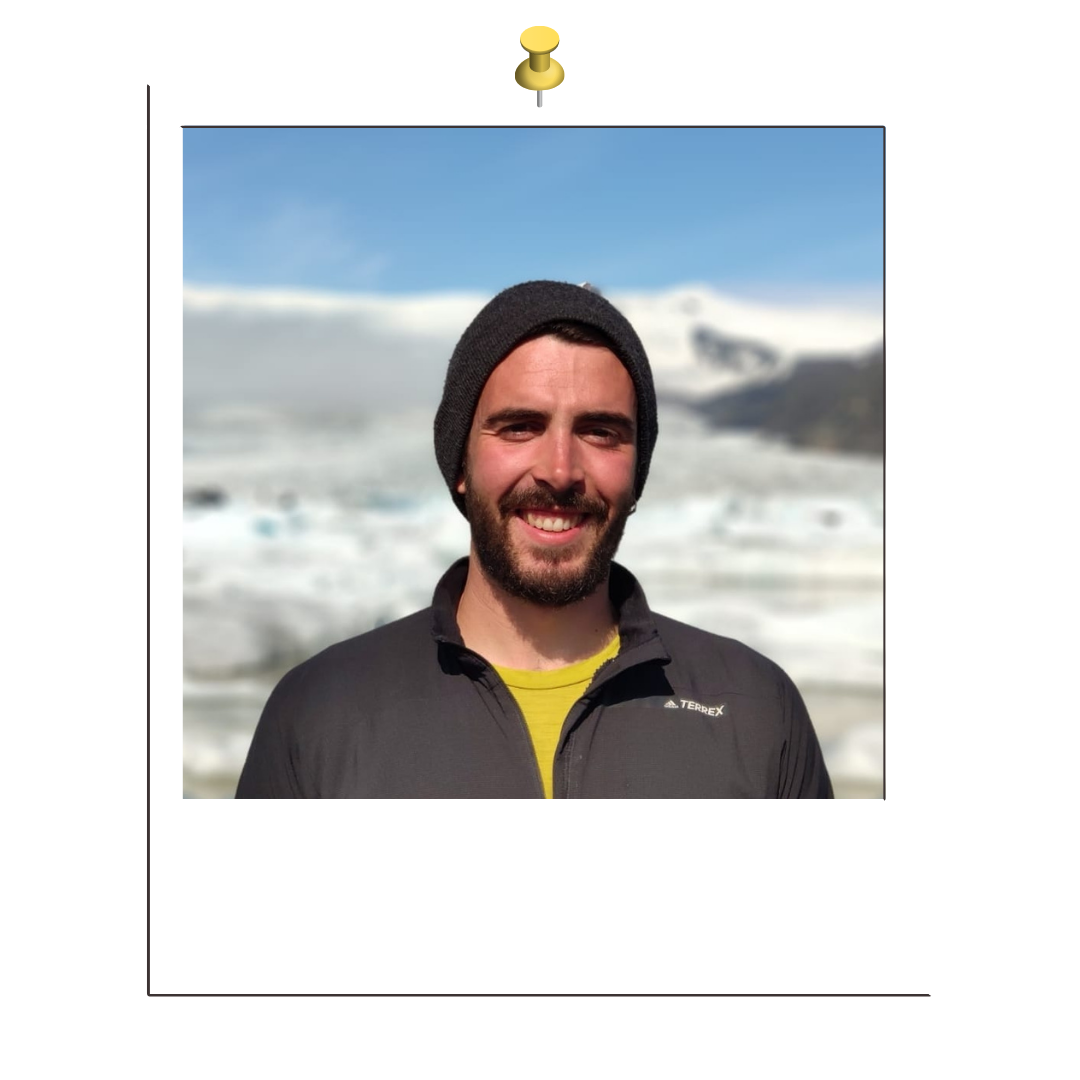 Javier is an outdoor experiential educator based in Madrid. Disseminator of the experience as a process that facilitates real learning, he works to make this educational philosophy a more and more used practice in Spain. For this reason, he works in the association of which he is a member, Madrid Outdoor Education and as a teacher in training future professionals of sport and outdoor activities.
Javier is an outdoor experiential educator based in Madrid. Disseminator of the experience as a process that facilitates real learning, he works to make this educational philosophy a more and more used practice in Spain. For this reason, he works in the association of which he is a member, Madrid Outdoor Education and as a teacher in training future professionals of sport and outdoor activities.
Articles:
Silvia Volpi
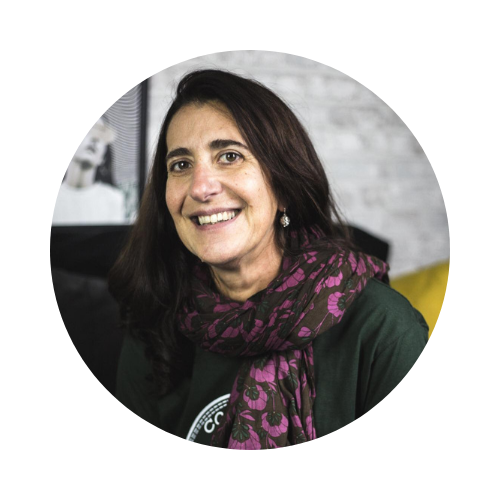 Silvia is living in Italy, after having worked as youth worker, she was trained as trainer in non formal learning especially to promote human rights and youth participation. Recently got the master as professional coach.
Silvia is living in Italy, after having worked as youth worker, she was trained as trainer in non formal learning especially to promote human rights and youth participation. Recently got the master as professional coach.
Articles:
Local youth work acupunctures to revitalise democracy! Issue 34
Barbara Weber
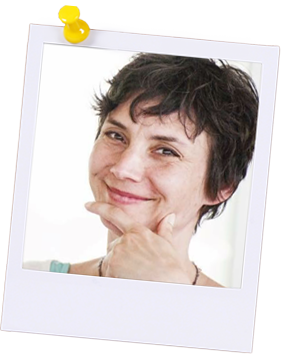 Barbara has been Global Director for Human Rights Education at Amnesty International since October 2014. She has worked in the human rights field for the past twenty years, managing national, cross-regional and global teams. Prior to her current post, Barbara was Director of Amnesty International Austria, worked in the Anti-Discrimination field and established a Service Centre for HRE at the Boltzmann Institute of Human Rights. She has served on boards of academic institutions and civil society organisations.
Barbara has been Global Director for Human Rights Education at Amnesty International since October 2014. She has worked in the human rights field for the past twenty years, managing national, cross-regional and global teams. Prior to her current post, Barbara was Director of Amnesty International Austria, worked in the Anti-Discrimination field and established a Service Centre for HRE at the Boltzmann Institute of Human Rights. She has served on boards of academic institutions and civil society organisations.
Articles:
Ferre Windey
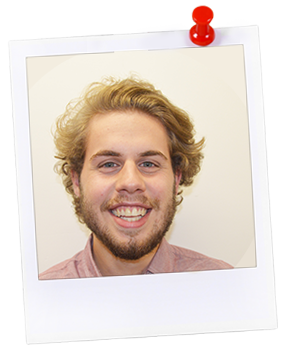 Ferre is a board member of OBESSU, living in Ghent, Belgium. At the moment he is studying at university but couldn’t say farewell to school student activism just yet. He started as a local activist in his school student council and extended his engagement to the regional level as a board member of VSK, the Flemish School Student Union. Being active as a school student activist for over 8 years now, he has gathered quite some experience in matters such as democratic citizenship education from a school student perspective.
Ferre is a board member of OBESSU, living in Ghent, Belgium. At the moment he is studying at university but couldn’t say farewell to school student activism just yet. He started as a local activist in his school student council and extended his engagement to the regional level as a board member of VSK, the Flemish School Student Union. Being active as a school student activist for over 8 years now, he has gathered quite some experience in matters such as democratic citizenship education from a school student perspective.
Articles:
- Organising for democratic education (OBESSU) with Larissa NENNING (Issue 25)
Howard Williamson
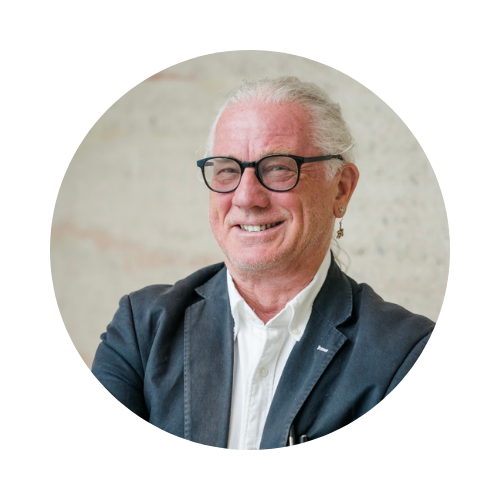 Dr Howard Williamson is a professor of European youth policy at the University of South Wales in the United Kingdom. Previously he worked at the Universities of Oxford, Cardiff and Copenhagen and has held visiting positions at universities and research institutes in Hong Kong, Malta, Croatia, China, France, Australia, and Iran. He has lectured and published widely on young people, youth policy and youth work. His latest books are The Milltown Boys at Sixty (Routledge 2021), About Time! (Youth Partnership 2021), Advanced Introduction to Youth Studies (Edward Elgar 2022), and Transitions on Hold (Youth Partnership 2023). He is a qualified youth worker and ran a youth centre for 25 years in parallel with his academic research. He has advised many levels of governance on youth policy issues, from the Welsh and UK governments, the European Commission, the Council of Europe and the United Nations. He co-ordinated the Council of Europe’s international reviews of national youth policy. He is a vice-president of the Council for Wales of Voluntary Youth Services, and the Restorative Justice for All International Institute. He is a board member of Grassroots – the Cardiff City Centre Youth Project, the European Forum Alpbach Foundation, the Duke of Edinburgh’s International Award for Young People, and Learn About Britain. He is also co-chair of the Africa Network of Youth Policy Experts. From 2002-2023, he was Organisational Secretary of the International Sociological Association Research Committee 34 (youth research). He now sits on its Executive Board as Senior Scholars Liaison. In 2002, he was appointed a Commander of the Order of the British Empire (CBE) and, in 2016, a Commander of the Royal Victorian Order (CVO). In 2019, he received an Outstanding Contribution to Youth Work award from the First Minister of Wales.
Dr Howard Williamson is a professor of European youth policy at the University of South Wales in the United Kingdom. Previously he worked at the Universities of Oxford, Cardiff and Copenhagen and has held visiting positions at universities and research institutes in Hong Kong, Malta, Croatia, China, France, Australia, and Iran. He has lectured and published widely on young people, youth policy and youth work. His latest books are The Milltown Boys at Sixty (Routledge 2021), About Time! (Youth Partnership 2021), Advanced Introduction to Youth Studies (Edward Elgar 2022), and Transitions on Hold (Youth Partnership 2023). He is a qualified youth worker and ran a youth centre for 25 years in parallel with his academic research. He has advised many levels of governance on youth policy issues, from the Welsh and UK governments, the European Commission, the Council of Europe and the United Nations. He co-ordinated the Council of Europe’s international reviews of national youth policy. He is a vice-president of the Council for Wales of Voluntary Youth Services, and the Restorative Justice for All International Institute. He is a board member of Grassroots – the Cardiff City Centre Youth Project, the European Forum Alpbach Foundation, the Duke of Edinburgh’s International Award for Young People, and Learn About Britain. He is also co-chair of the Africa Network of Youth Policy Experts. From 2002-2023, he was Organisational Secretary of the International Sociological Association Research Committee 34 (youth research). He now sits on its Executive Board as Senior Scholars Liaison. In 2002, he was appointed a Commander of the Order of the British Empire (CBE) and, in 2016, a Commander of the Royal Victorian Order (CVO). In 2019, he received an Outstanding Contribution to Youth Work award from the First Minister of Wales.
Articles:
Floor Van Houdt and Antje Rothemund reflect on the partnership. Issue 27
Two coordinators – past and present – view the partnership. Issue 27
Putting youth work throughout Europe on the map. Issue 27 (with Jan Vanhee)
25 years of the Youth Partnership Issue 36
Ivana Wolf
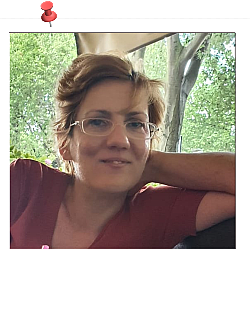 Ivana is a youth worker and youth trainer, with a background in psychology. She is dedicated to positive change of people and believes that this is the way to change communities and the world. That’s the main reason why she is also working for years on professional development of youth workers and recognition of youth work as a force that gives young people the chance to change the world.
Ivana is a youth worker and youth trainer, with a background in psychology. She is dedicated to positive change of people and believes that this is the way to change communities and the world. That’s the main reason why she is also working for years on professional development of youth workers and recognition of youth work as a force that gives young people the chance to change the world.
Articles:
John Waterman
John Waterman has been a practising language teacher for 19 years, and a teacher trainer for the last 15 years. During this time he has worked throughout Europe, and also in Latin America. He now lectures in the School of English Language Education at Thames Valley University, London. He has been a Course Tutor on the EYC language course since 1996. At Thames Valley University he is involved in Teacher education, English for General Purposes, and teaching English through Information and Communication Technology (ICT). His interests include intercultural learning through language, Reading, Learning English through ICT, and Taskbased learning.
Articles:
Methodological developments in intercultural learning through language –with John O'REGAN (Issue 0)
Marta Wojtas
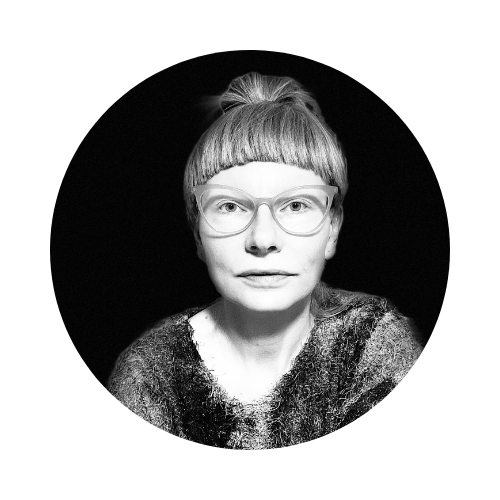 Marta Wojtas is a psychologist and a trainer. Since 2007, she has been working in the Empowering Children Foundation, an NGO based in Warsaw, Poland. Currently she works as a coordinator of the "Child on the Web" Counseling Centre, providing psychological counseling for children, adolescents and adults, supporting good digital parenting and conducting various groups and workshops. Fields of expertise: child online safety, crisis intervention, psychotherapy, art based trainings, intercultural communication.
Marta Wojtas is a psychologist and a trainer. Since 2007, she has been working in the Empowering Children Foundation, an NGO based in Warsaw, Poland. Currently she works as a coordinator of the "Child on the Web" Counseling Centre, providing psychological counseling for children, adolescents and adults, supporting good digital parenting and conducting various groups and workshops. Fields of expertise: child online safety, crisis intervention, psychotherapy, art based trainings, intercultural communication.
Article:
Talking about war with young people Issue 33
Nafula Wafula
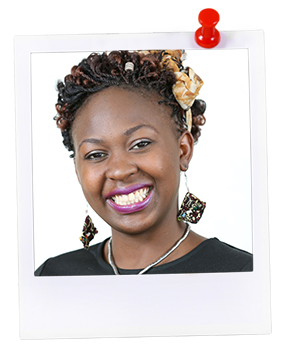 Nafula is a fierce advocate for gender equality and human rights and is passionate about pan-Africanism, youth empowerment and social justice.
Nafula is a fierce advocate for gender equality and human rights and is passionate about pan-Africanism, youth empowerment and social justice.
Living in Nairobi, Kenya, she is currently the Vice Chairperson for Policy and Advocacy at the Commonwealth Youth Council. She is also the programmes director at Brydges Centre, an organisation that provides child rescue and protection services, education and economic empowerment to at-risk youth and out-of-school girls. She currently serves as an executive committee member of the Commonwealth Businesswomen Network.
Articles:
Decolonising youth work, Issue 29
Sergio Xavier
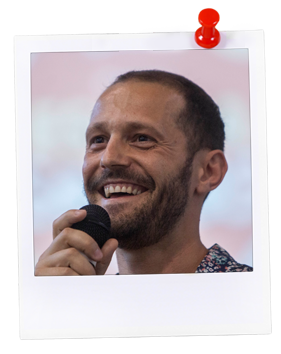 Sérgio co-founded and worked for 7 years in the local youth NGO Dínamo. He is working as a professional educator since 2010, on themes such as Youth Participation, Human Rights, non-formal Education and Euro-Arab cooperation. He was a member of the Portuguese National Youth Council (2010-15) Trainers Pool and is a member of the Pool of Trainers of the Youth Department of the Council of Europe since 2013. He was a junior trainer in the CoE ToTHRE (2013-14), co-facilitator on the European Youth Work Convention (2015) and trainer of the first Youth Delegation on the World Forum for Democracy (2013). Sérgio was co-translator of the CoE Charter on EDC/HRE and Compass 2012 edition, to which he contributed with a new chapter for the Portuguese translation of Have your Say!
Sérgio co-founded and worked for 7 years in the local youth NGO Dínamo. He is working as a professional educator since 2010, on themes such as Youth Participation, Human Rights, non-formal Education and Euro-Arab cooperation. He was a member of the Portuguese National Youth Council (2010-15) Trainers Pool and is a member of the Pool of Trainers of the Youth Department of the Council of Europe since 2013. He was a junior trainer in the CoE ToTHRE (2013-14), co-facilitator on the European Youth Work Convention (2015) and trainer of the first Youth Delegation on the World Forum for Democracy (2013). Sérgio was co-translator of the CoE Charter on EDC/HRE and Compass 2012 edition, to which he contributed with a new chapter for the Portuguese translation of Have your Say!
He is presently a policy advisor for the Deputy Mayor of Social Rights in the Lisbon City Council, contributing to the Youth, Participation and Human Rights policies, while pursuing a PhD in “Democracy in the XXIst Century” in the University of Coimbra (CES). He also coordinates the SOMOS Programme since 2015.
Articles:
Leo Zbanke
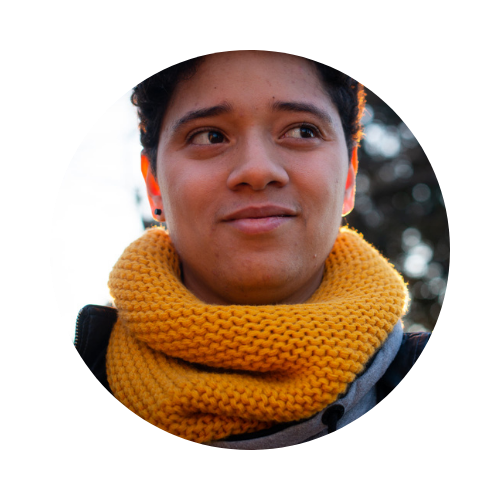 Leo Zbanke has degrees in social psychology and film directing, and a broad career in media, training and NGO field. Since 2008, he has worked in film, journalism, TV, and radio. Since 2016 he has conducted trainings on storytelling, media literacy, campaigning and audiovisual tools, having trained over 900 people in Europe through Erasmus+ projects. In 2018, he advised Guinea-Bissau's PAIGC party on communication strategies. Currently, he is based in Moldova and is a programme coordinator in an LGBT organization. Leo speaks six languages and uses innovative methods in his mentoring. He actively promotes human rights and equality as a transgender person. In addition to his training roles, furthering his commitment to social advocacy.
Leo Zbanke has degrees in social psychology and film directing, and a broad career in media, training and NGO field. Since 2008, he has worked in film, journalism, TV, and radio. Since 2016 he has conducted trainings on storytelling, media literacy, campaigning and audiovisual tools, having trained over 900 people in Europe through Erasmus+ projects. In 2018, he advised Guinea-Bissau's PAIGC party on communication strategies. Currently, he is based in Moldova and is a programme coordinator in an LGBT organization. Leo speaks six languages and uses innovative methods in his mentoring. He actively promotes human rights and equality as a transgender person. In addition to his training roles, furthering his commitment to social advocacy.
Articles:
Gender, Gen Z, and youth work in conflict and post-conflict areas Issue 33
